List 2: Top 10 Articles Published in the Same Domain Since Your Publication
Zubieta-Calleja GR, Paulev PE, Zubieta-Calleja L, Zubieta-Calleja N, Zubieta-Castillo G: Hypoventilation in chronic mountain sickness: a mechanism to preserve energy. J Physiol Pharmacol; 2006 Sep;57 Suppl 4:425-30
Go to the article
León-Velarde F, Villafuerte FC, Richalet JP: Chronic mountain sickness and the heart. Prog Cardiovasc Dis; 2010 May-Jun;52(6):540-9
Go to the article
Moore LG, Niermeyer S, Vargas E: Does chronic mountain sickness (CMS) have perinatal origins? Respir Physiol Neurobiol; 2007 Sep 30;158(2-3):180-9
Go to the article
Rivera-Ch M, Huicho L, Bouchet P, Richalet JP, León-Velarde F: Effect of acetazolamide on ventilatory response in subjects with chronic mountain sickness. Respir Physiol Neurobiol; 2008 Aug 31;162(3):184-9
Go to the article
Jafarian S, Gorouhi F, Ghergherechi M, Lotfi J: Respiratory rate within the first hour of ascent predicts subsequent acute mountain sickness severity. Arch Iran Med; 2008 Mar;11(2):152-6
Go to the article
Zubieta-Castillo G Sr, Zubieta-Calleja GR Jr, Zubieta-Calleja L: Chronic mountain sickness: the reaction of physical disorders to chronic hypoxia. J Physiol Pharmacol; 2006 Sep;57 Suppl 4:431-42
Go to the article
Maignan M, Rivera-Ch M, Privat C, León-Velarde F, Richalet JP, Pham I: Pulmonary pressure and cardiac function in chronic mountain sickness patients. Chest; 2009 Feb;135(2):499-504
Go to the article
Penaloza D, Arias-Stella J: The heart and pulmonary circulation at high altitudes: healthy highlanders and chronic mountain sickness. Circulation; 2007 Mar 6;115(9):1132-46
Go to the article
Yan JH, Li ZQ, Ji LH, Chai KX, Ge RL: [Changes of serum angiogenesis in patients with chronic mountain sickness]. Zhongguo Ying Yong Sheng Li Xue Za Zhi; 2009 Nov;25(4):457-60
Go to the article
Huicho L, Xing G, Qualls C, Rivera-Ch M, Gamboa JL, Verma A, Appenzeller O: Abnormal energy regulation in early life: childhood gene expression may predict subsequent chronic mountain sickness. BMC Pediatr; 2008;8:47
Go to the article
Read more »
Back to top^
List 3: Top 10 Articles Published in the Same Domain, All Time
Zubieta-Calleja GR, Paulev PE, Zubieta-Calleja L, Zubieta-Calleja N, Zubieta-Castillo G: Hypoventilation in chronic mountain sickness: a mechanism to preserve energy. J Physiol Pharmacol; 2006 Sep;57 Suppl 4:425-30
Go to the article
Sun S, Oliver-Pickett C, Ping Y, Micco AJ, Droma T, Zamudio S, Zhuang J, Huang SY, McCullough RG, Cymerman A, Moore LG: Breathing and brain blood flow during sleep in patients with chronic mountain sickness. J Appl Physiol; 1996 Aug;81(2):611-8
Go to the article
Sun SF, Huang SY, Zhang JG, Droma TS, Banden G, McCullough RE, McCullough RG, Cymerman A, Reeves JT, Moore LG: Decreased ventilation and hypoxic ventilatory responsiveness are not reversed by naloxone in Lhasa residents with chronic mountain sickness. Am Rev Respir Dis; 1990 Dec;142(6 Pt 1):1294-300
Go to the article
Erba P, Anastasi S, Senn O, Maggiorirni M, Bloch KE: Acute mountain sickness is related to nocturnal hypoxemia but not to hypoventilation. Eur Respir J; 2004 Aug;24(2):303-8
Go to the article
Richalet JP, Rivera M, Bouchet P, Chirinos E, Onnen I, Petitjean O, Bienvenu A, Lasne F, Moutereau S, León-Velarde F: Acetazolamide: a treatment for chronic mountain sickness. Am J Respir Crit Care Med; 2005 Dec 1;172(11):1427-33
Go to the article
León-Velarde F, Arregui A, Vargas M, Huicho L, Acosta R: Chronic mountain sickness and chronic lower respiratory tract disorders. Chest; 1994 Jul;106(1):151-5
Go to the article
León-Velarde F, Villafuerte FC, Richalet JP: Chronic mountain sickness and the heart. Prog Cardiovasc Dis; 2010 May-Jun;52(6):540-9
Go to the article
Moore LG, Niermeyer S, Vargas E: Does chronic mountain sickness (CMS) have perinatal origins? Respir Physiol Neurobiol; 2007 Sep 30;158(2-3):180-9
Go to the article
Ge RL, Shai HR, Takeoka M, Hanaoka M, Koizumi T, Matsuzawa Y, Kubo K, Kobayashi T: Atrial natriuretic peptide and red cell 2,3-diphosphoglycerate in patients with chronic mountain sickness. Wilderness Environ Med; 2001;12(1):2-7
Go to the article
Rivera-Ch M, Huicho L, Bouchet P, Richalet JP, León-Velarde F: Effect of acetazolamide on ventilatory response in subjects with chronic mountain sickness. Respir Physiol Neurobiol; 2008 Aug 31;162(3):184-9
Go to the article
Read more »
Back to top^
List 4: Top 10 Articles, with Free Full-Texts, Published in the Same Domain Since Your Publication
Zubieta-Calleja GR, Paulev PE, Zubieta-Calleja L, Zubieta-Calleja N, Zubieta-Castillo G: Hypoventilation in chronic mountain sickness: a mechanism to preserve energy. J Physiol Pharmacol; 2006 Sep;57 Suppl 4:425-30
Go to the article
Jafarian S, Gorouhi F, Ghergherechi M, Lotfi J: Respiratory rate within the first hour of ascent predicts subsequent acute mountain sickness severity. Arch Iran Med; 2008 Mar;11(2):152-6
Go to the article
Zubieta-Castillo G Sr, Zubieta-Calleja GR Jr, Zubieta-Calleja L: Chronic mountain sickness: the reaction of physical disorders to chronic hypoxia. J Physiol Pharmacol; 2006 Sep;57 Suppl 4:431-42
Go to the article
Maignan M, Rivera-Ch M, Privat C, León-Velarde F, Richalet JP, Pham I: Pulmonary pressure and cardiac function in chronic mountain sickness patients. Chest; 2009 Feb;135(2):499-504
Go to the article
Penaloza D, Arias-Stella J: The heart and pulmonary circulation at high altitudes: healthy highlanders and chronic mountain sickness. Circulation; 2007 Mar 6;115(9):1132-46
Go to the article
Huicho L, Xing G, Qualls C, Rivera-Ch M, Gamboa JL, Verma A, Appenzeller O: Abnormal energy regulation in early life: childhood gene expression may predict subsequent chronic mountain sickness. BMC Pediatr; 2008;8:47
Go to the article
Gonzales GF, Gasco M, Tapia V, Gonzales-Castañeda C: High serum testosterone levels are associated with excessive erythrocytosis of chronic mountain sickness in men. Am J Physiol Endocrinol Metab; 2009 Jun;296(6):E1319-25
Go to the article
Stuber T, Sartori C, Schwab M, Jayet PY, Rimoldi SF, Garcin S, Thalmann S, Spielvogel H, Salmòn CS, Villena M, Scherrer U, Allemann Y: Exaggerated pulmonary hypertension during mild exercise in chronic mountain sickness. Chest; 2010 Feb;137(2):388-92
Go to the article
Moore JP, Claydon VE, Norcliffe LJ, Rivera-Ch MC, Lèon-Velarde F, Appenzeller O, Hainsworth R: Carotid baroreflex regulation of vascular resistance in high-altitude Andean natives with and without chronic mountain sickness. Exp Physiol; 2006 Sep;91(5):907-13
Go to the article
Bailey DM, Evans KA, James PE, McEneny J, Young IS, Fall L, Gutowski M, Kewley E, McCord JM, Møller K, Ainslie PN: Altered free radical metabolism in acute mountain sickness: implications for dynamic cerebral autoregulation and blood-brain barrier function. J Physiol; 2009 Jan 15;587(Pt 1):73-85
Go to the article
BioMedLib
Webster Ellard
Article Delivery Services
www.BioMedLib.com
Email correspondence: custserv@bmlsearch.com |
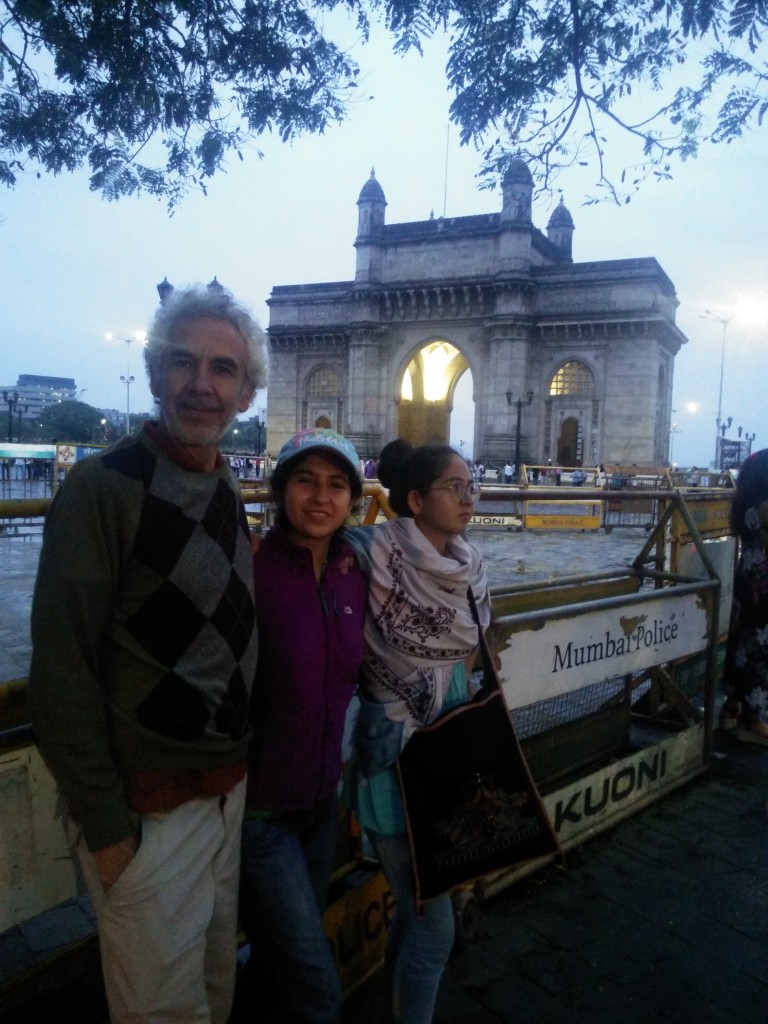
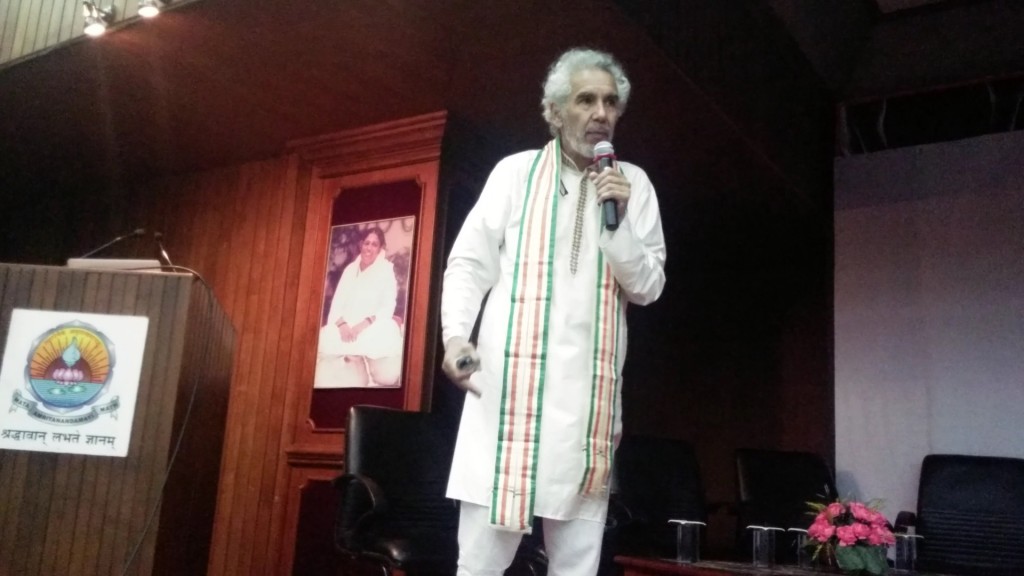
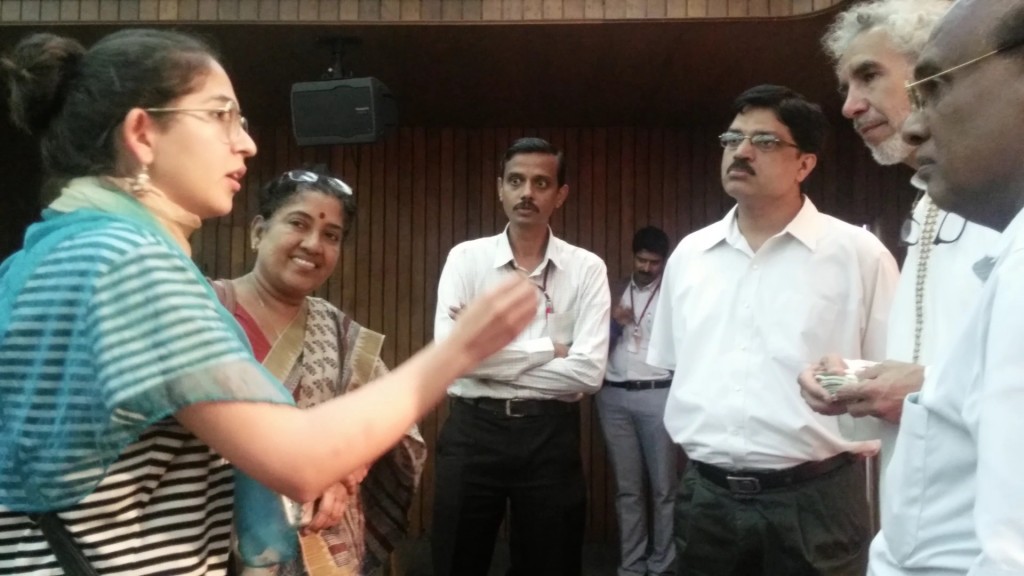
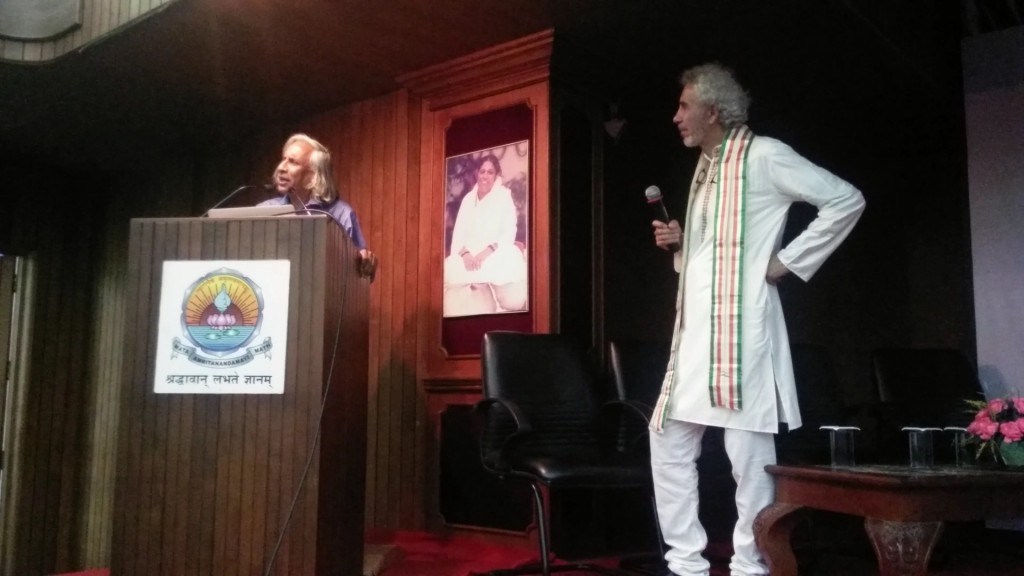
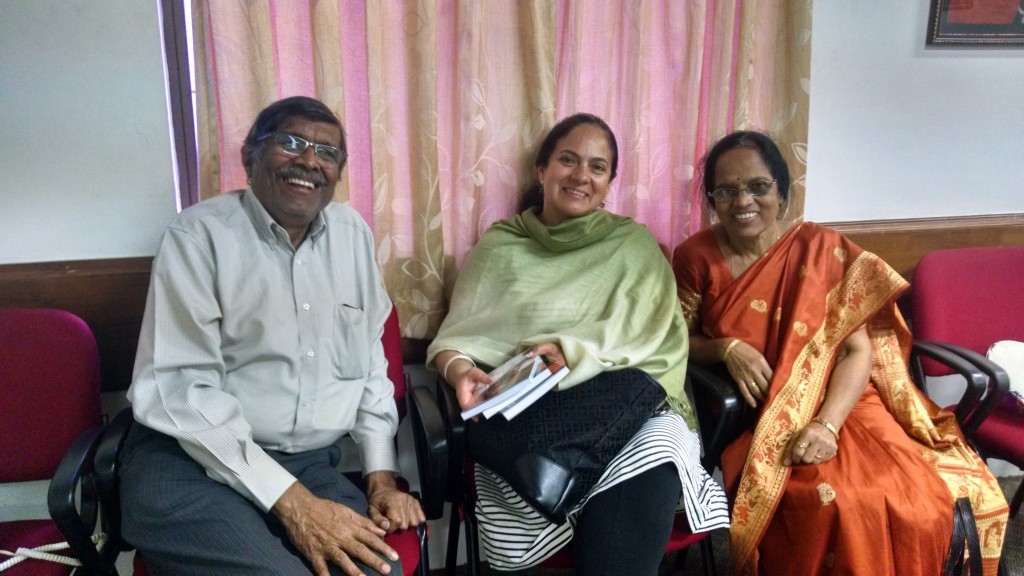
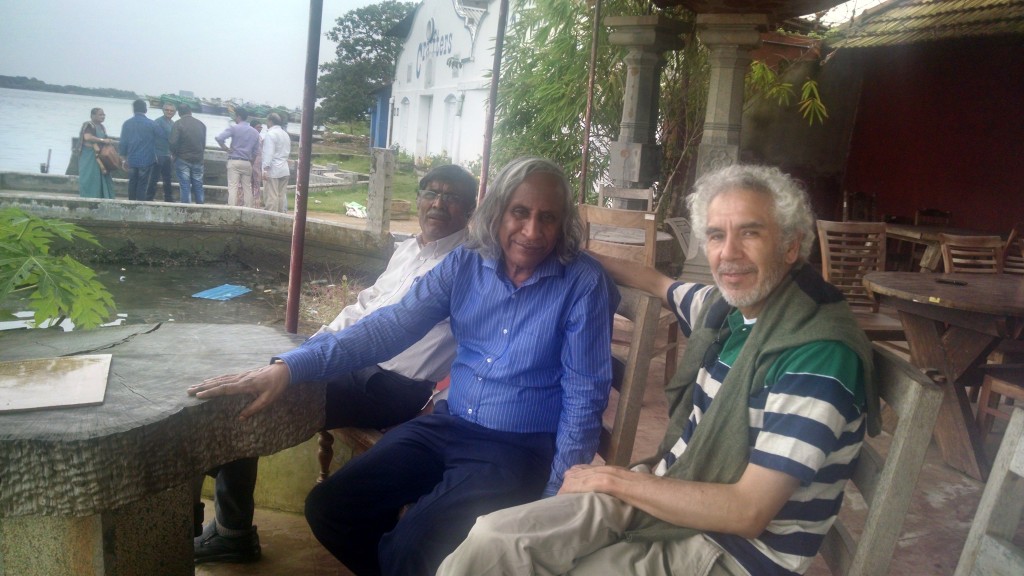
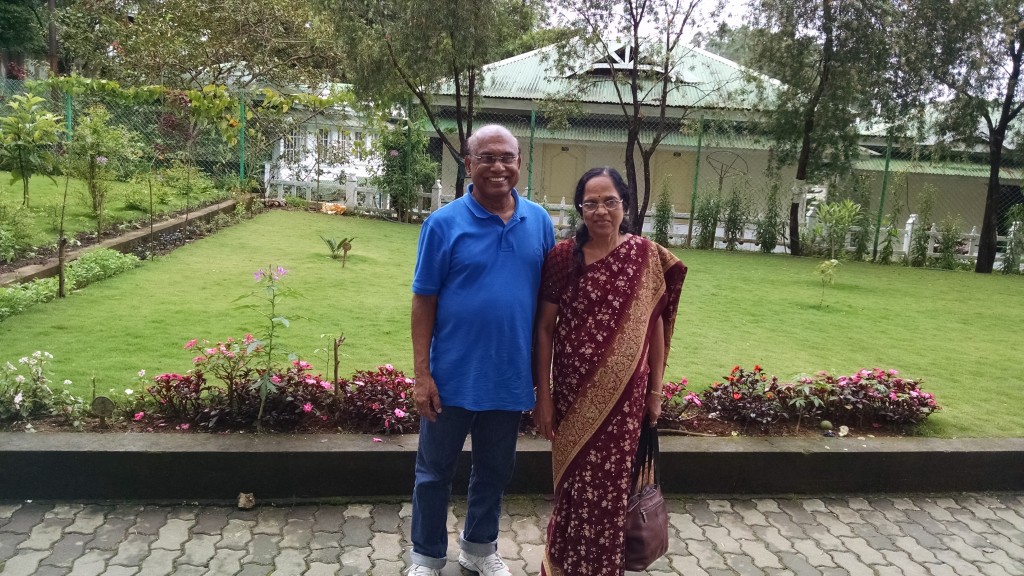
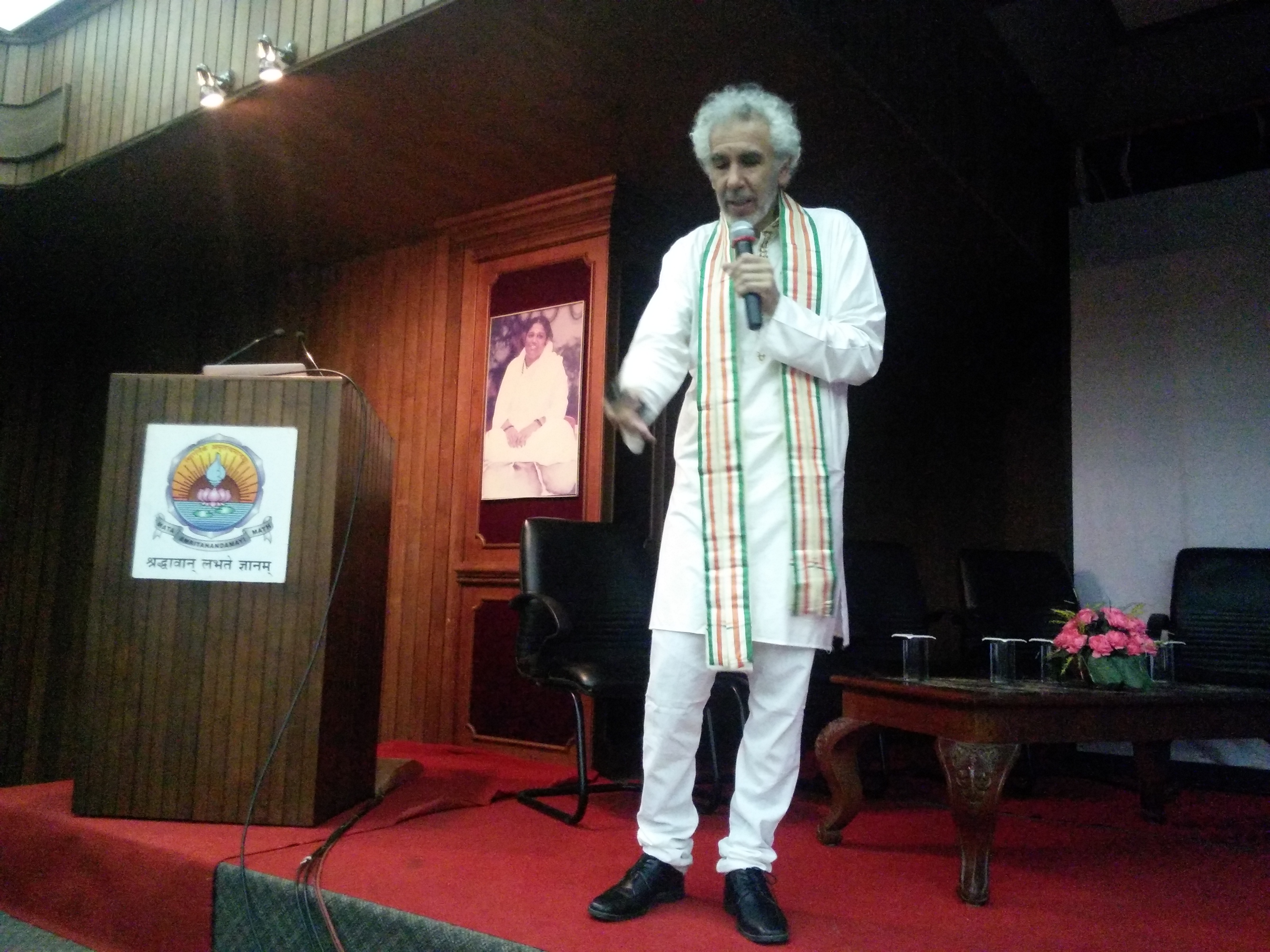
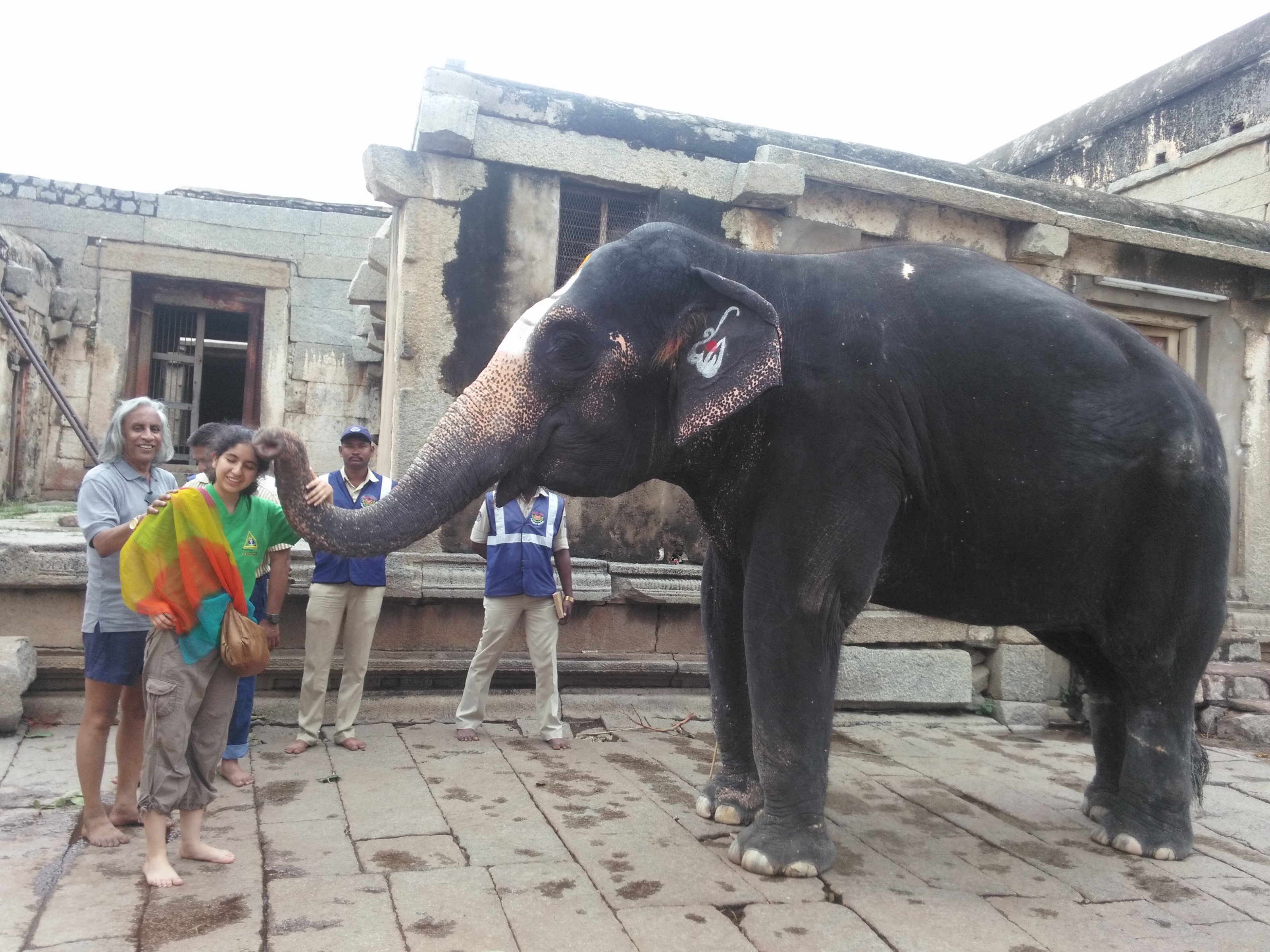
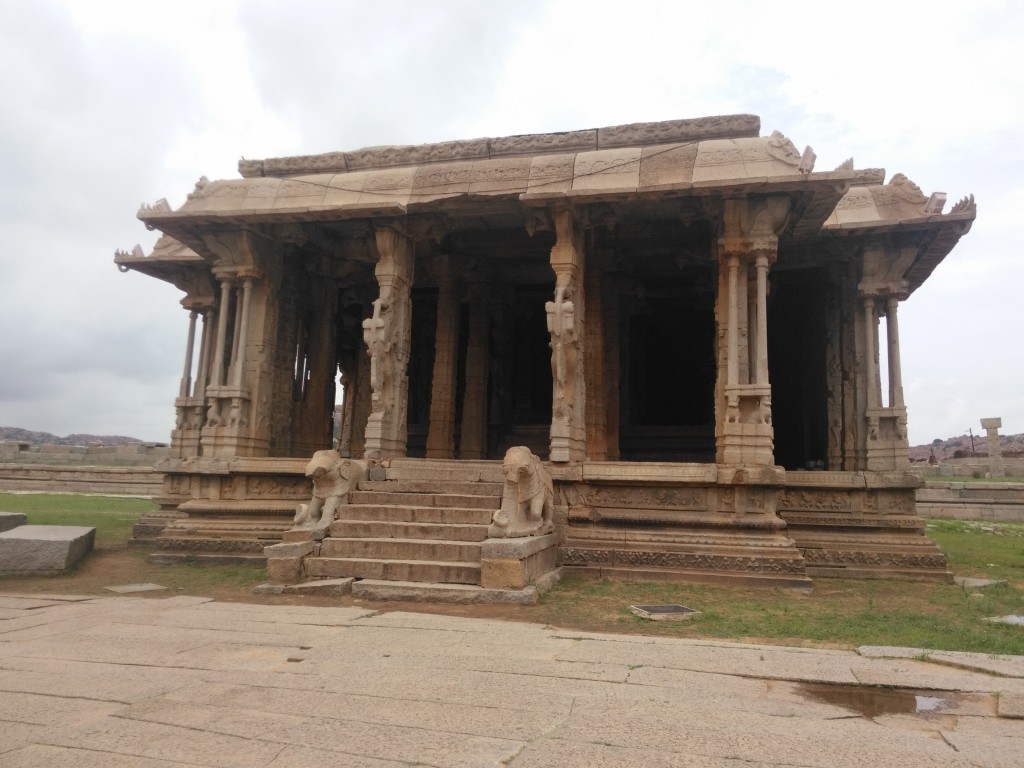
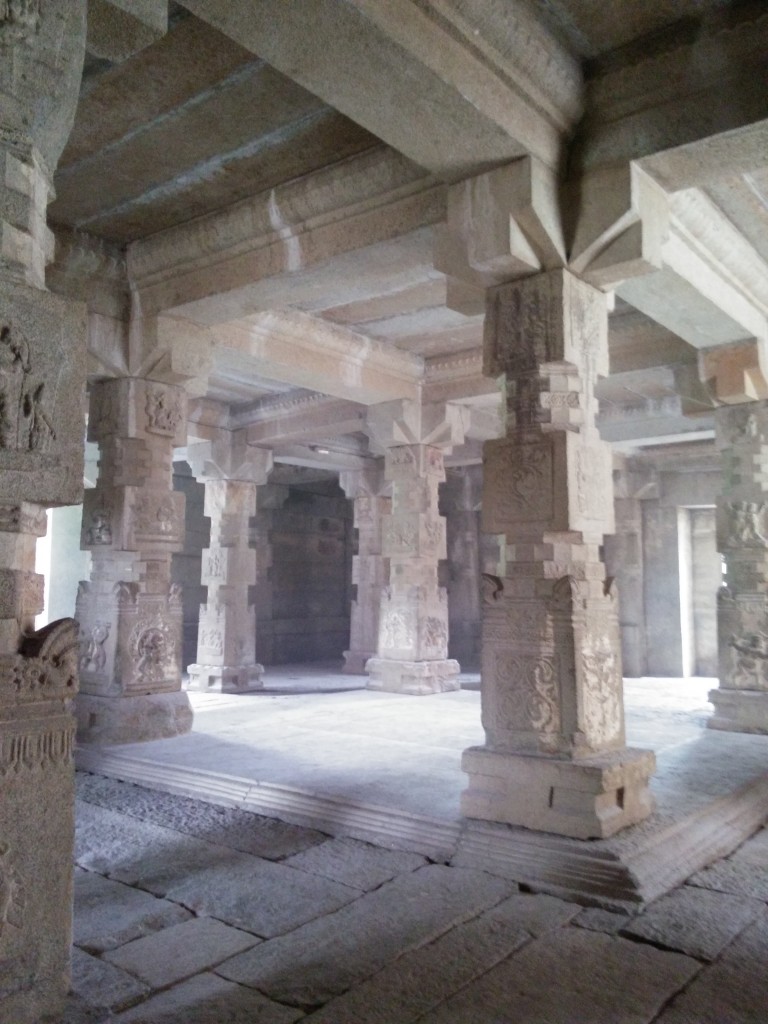
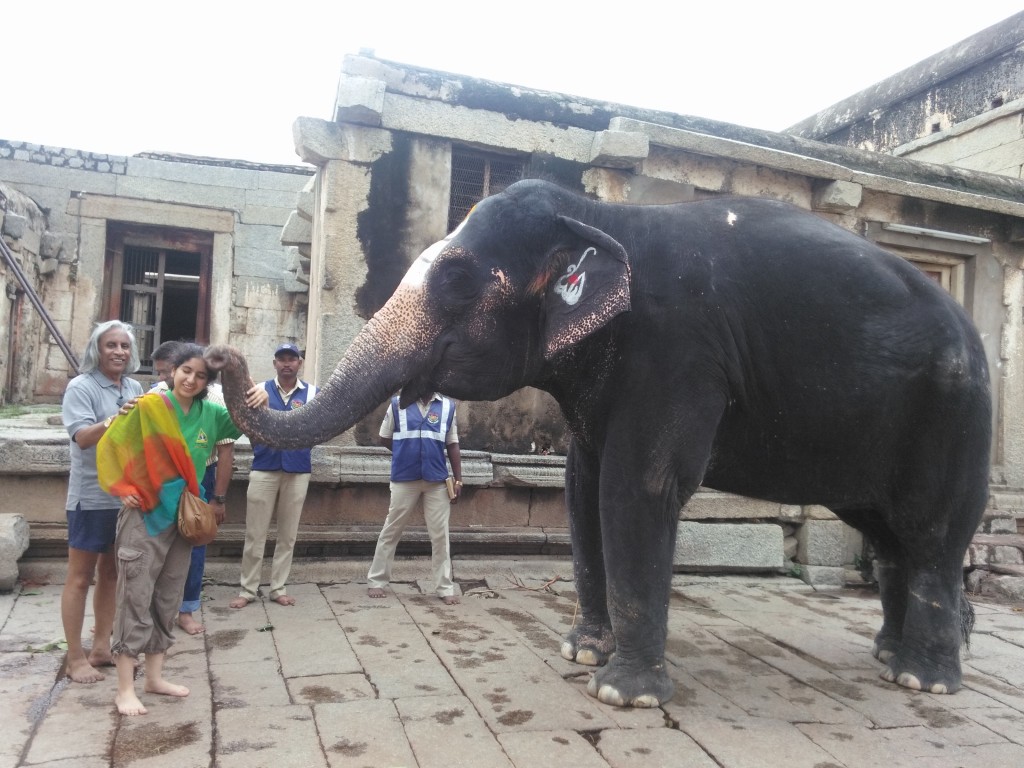
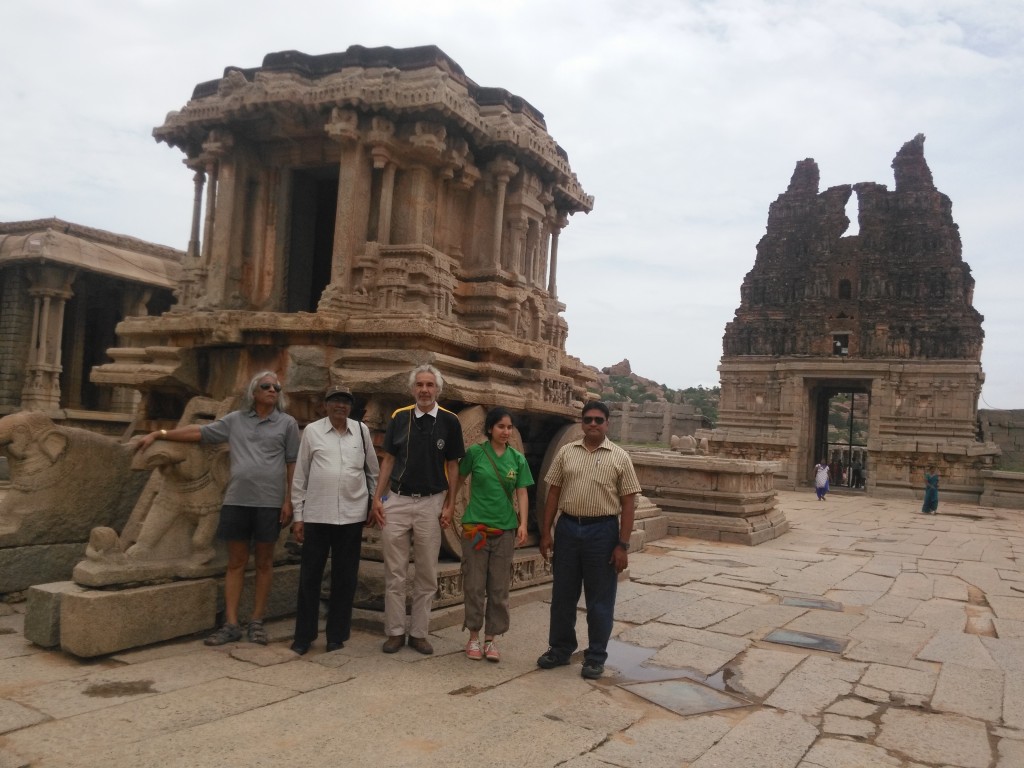
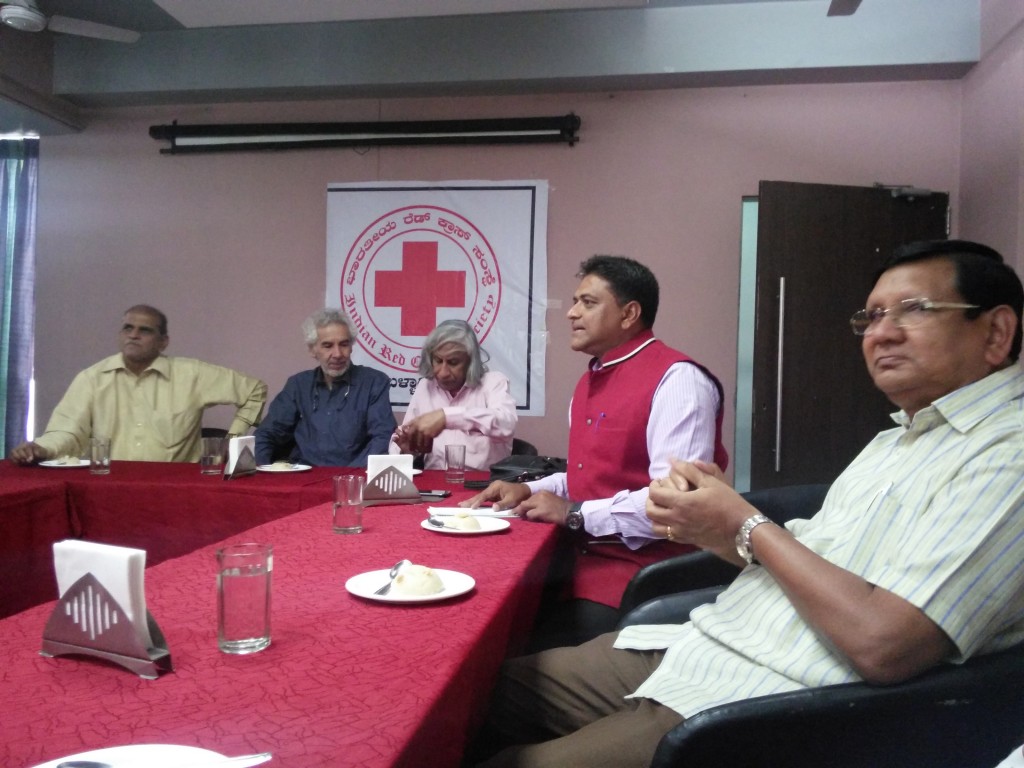
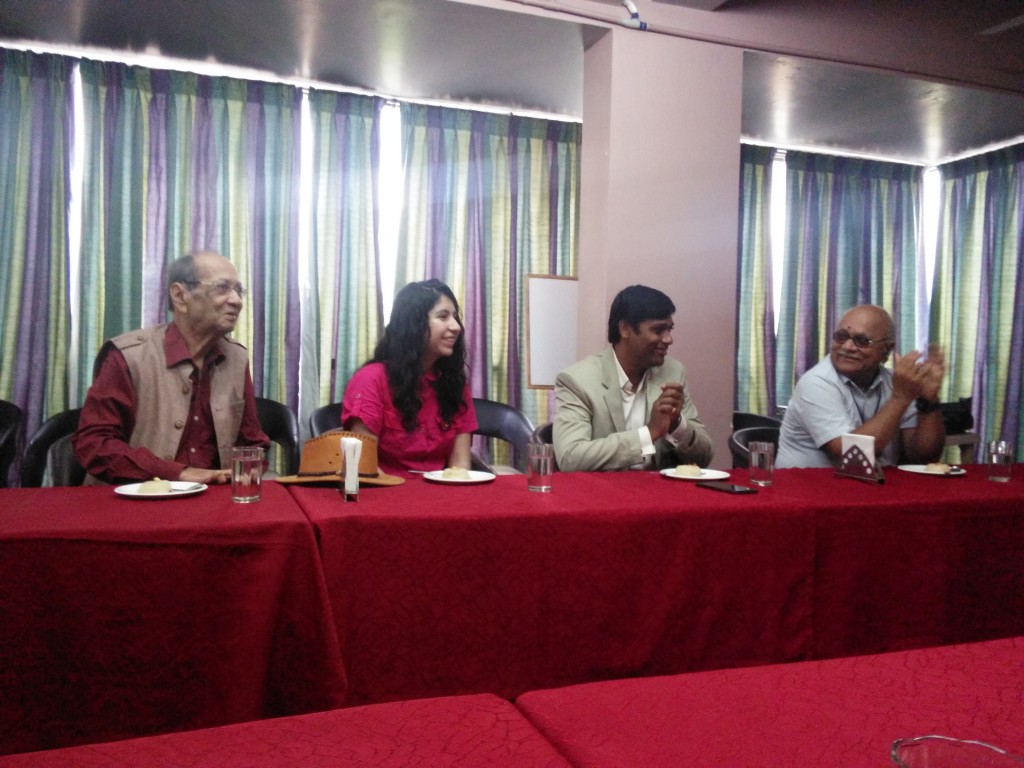
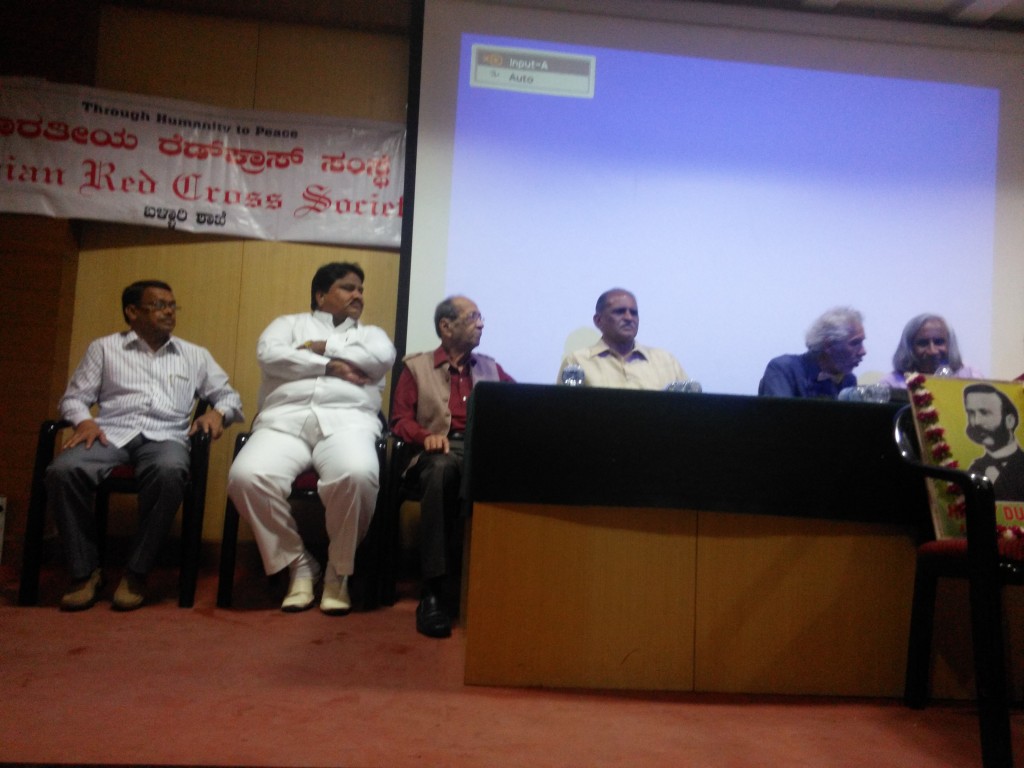
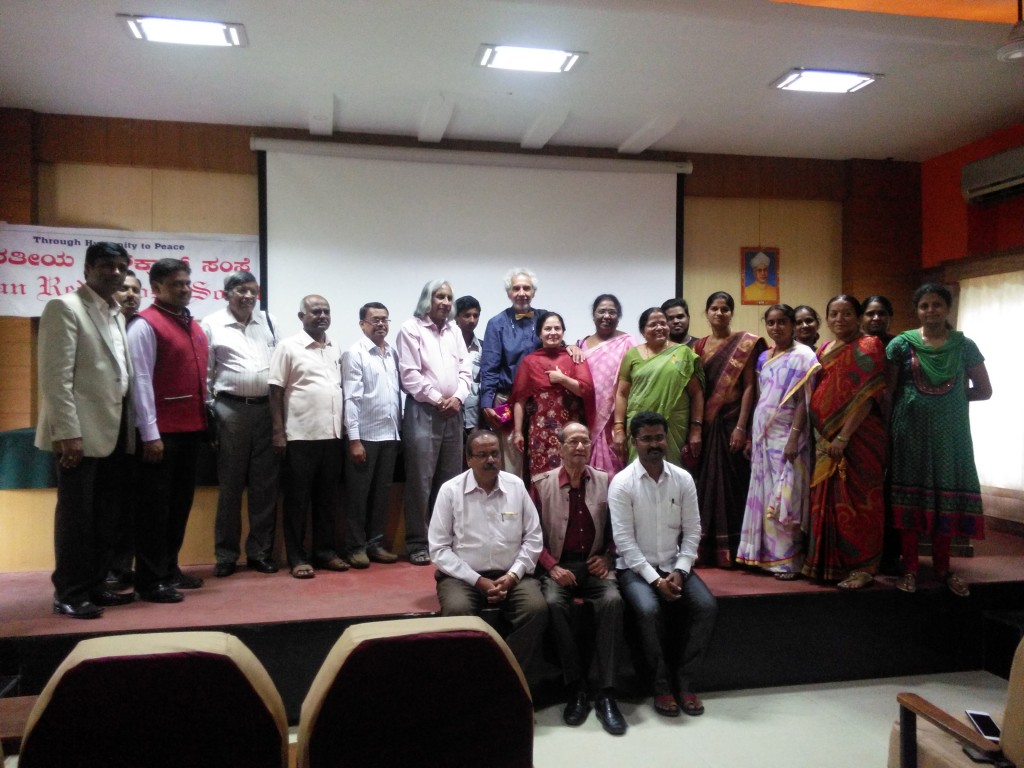
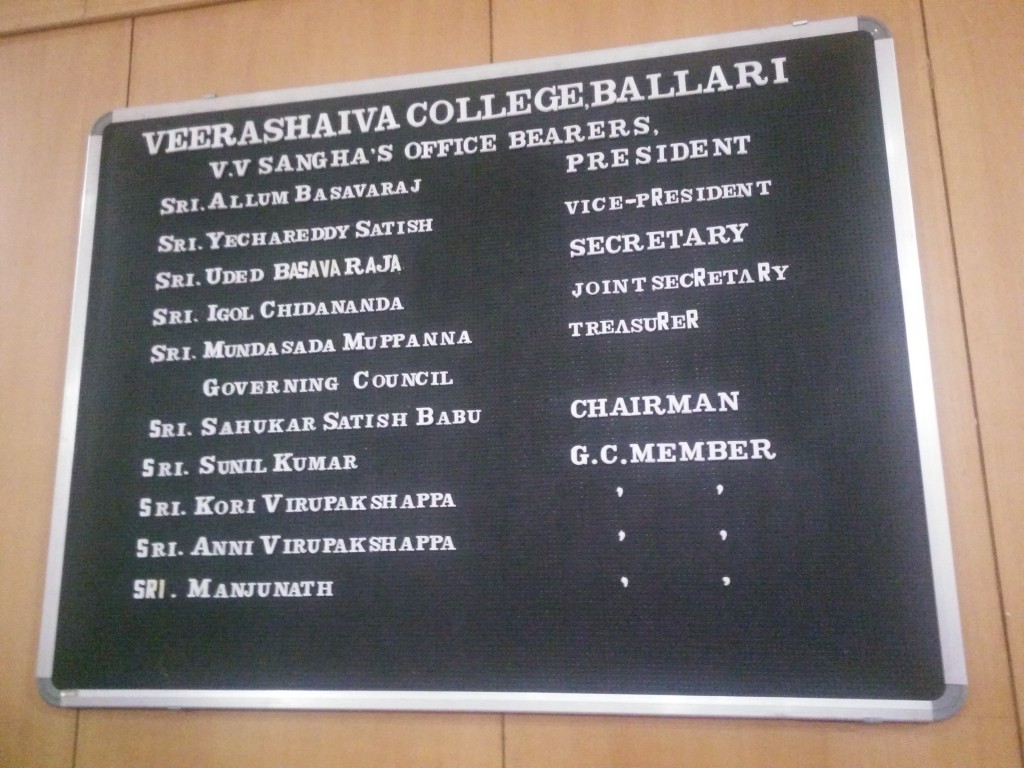
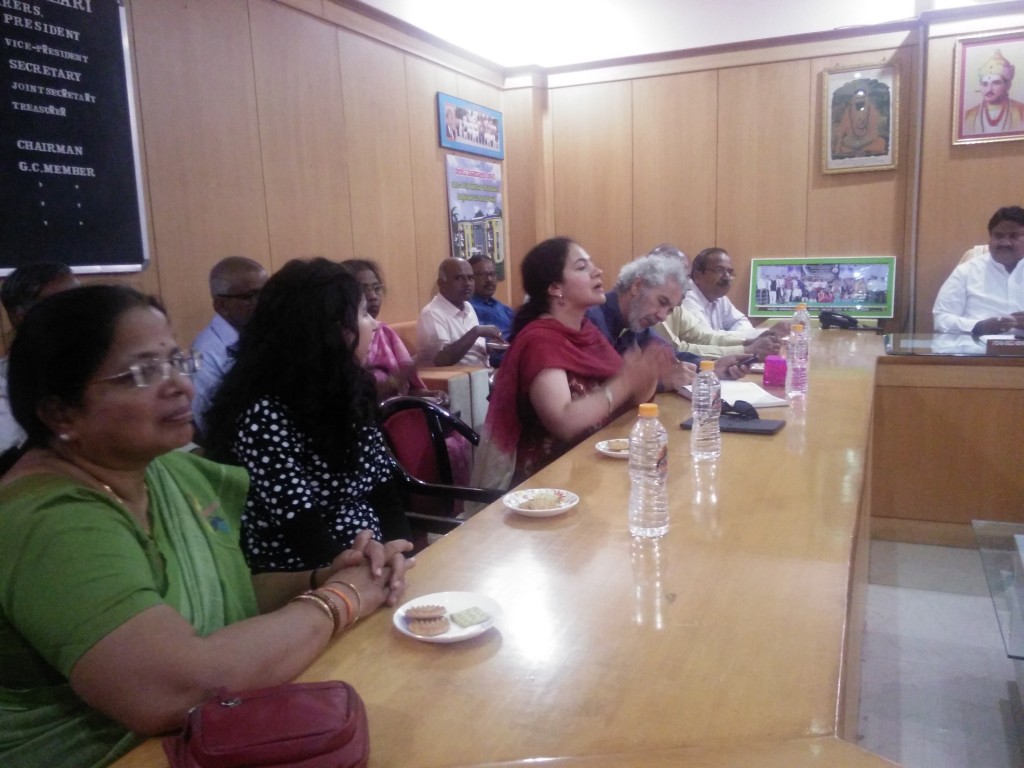
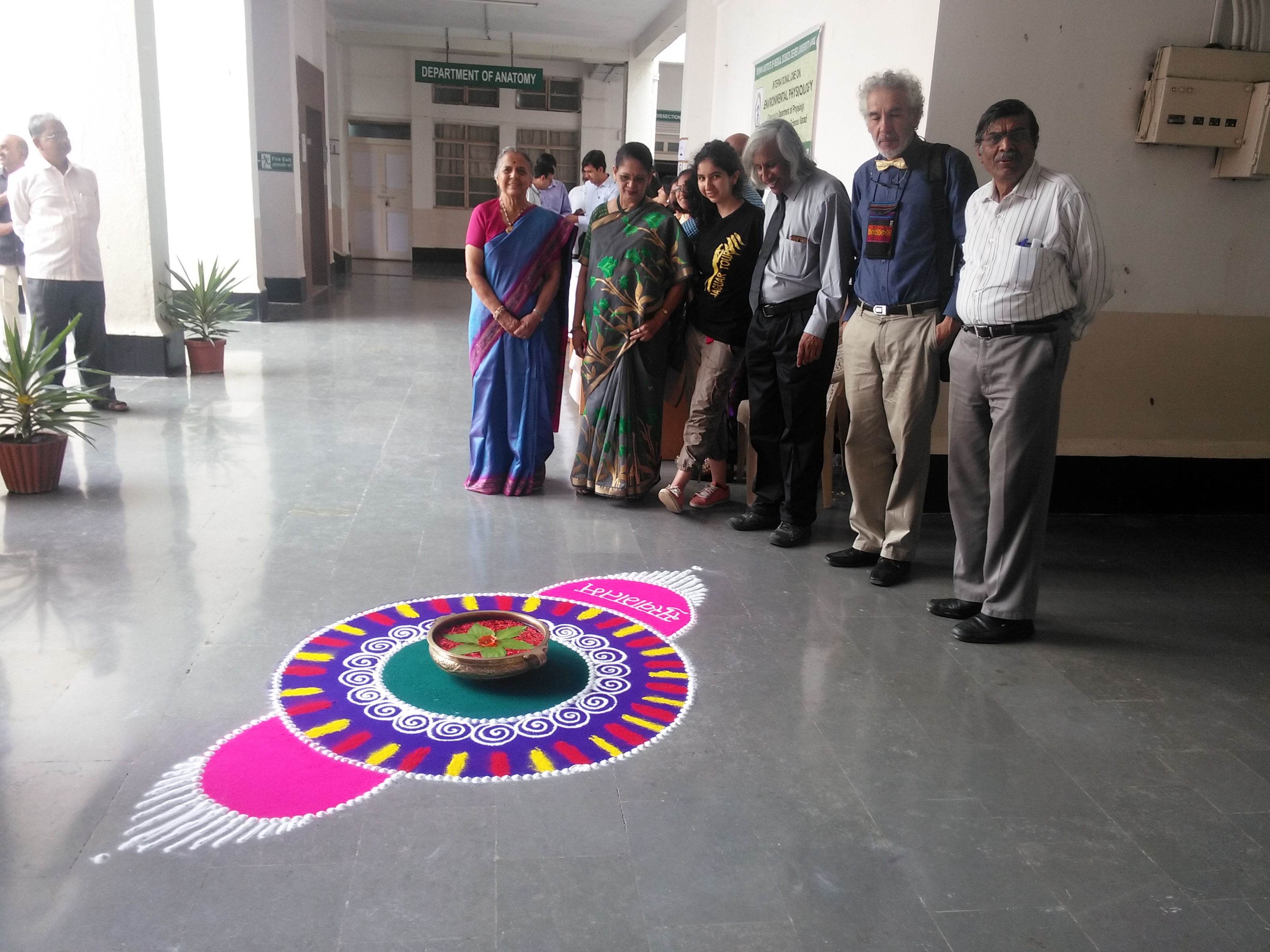
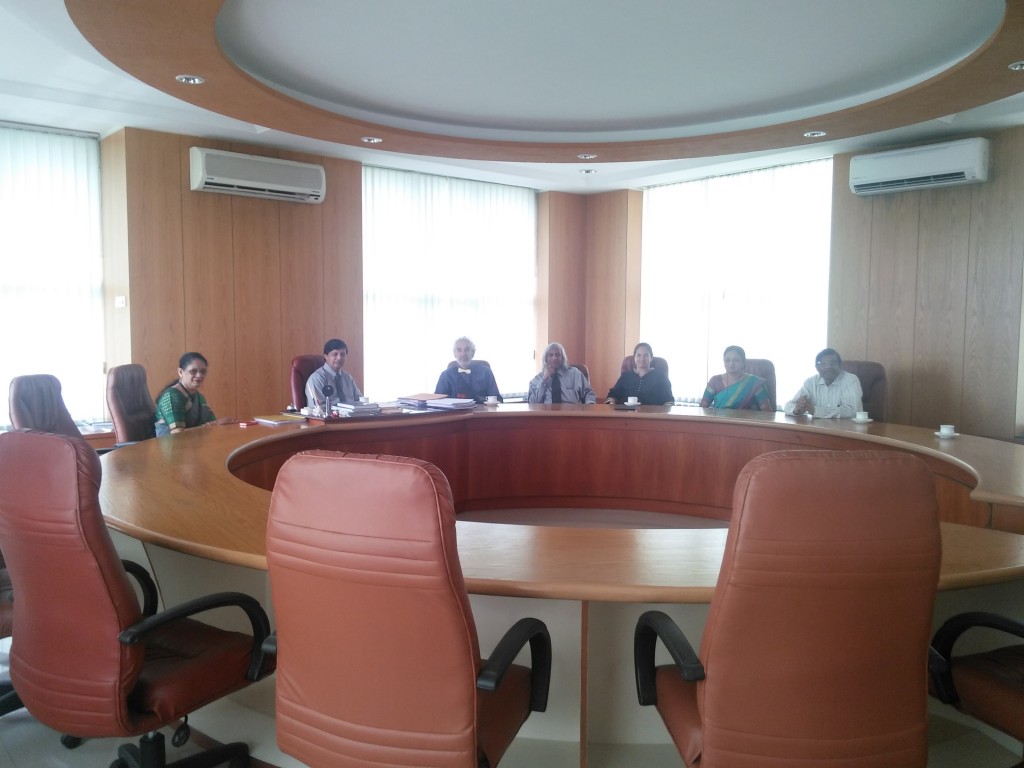

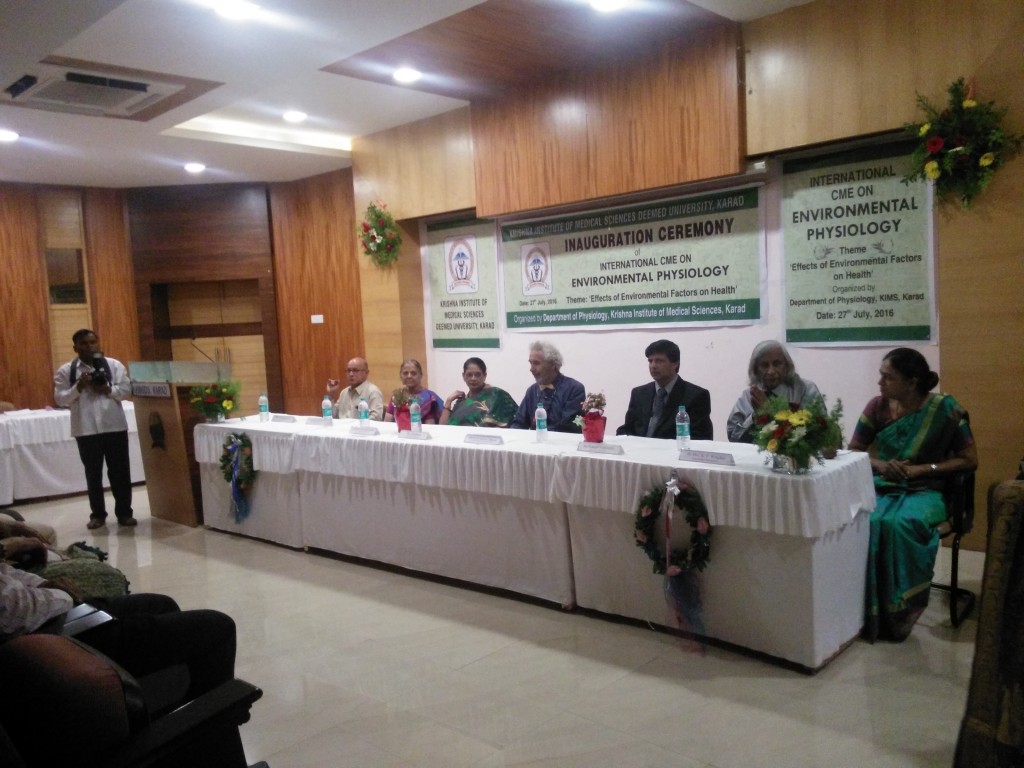
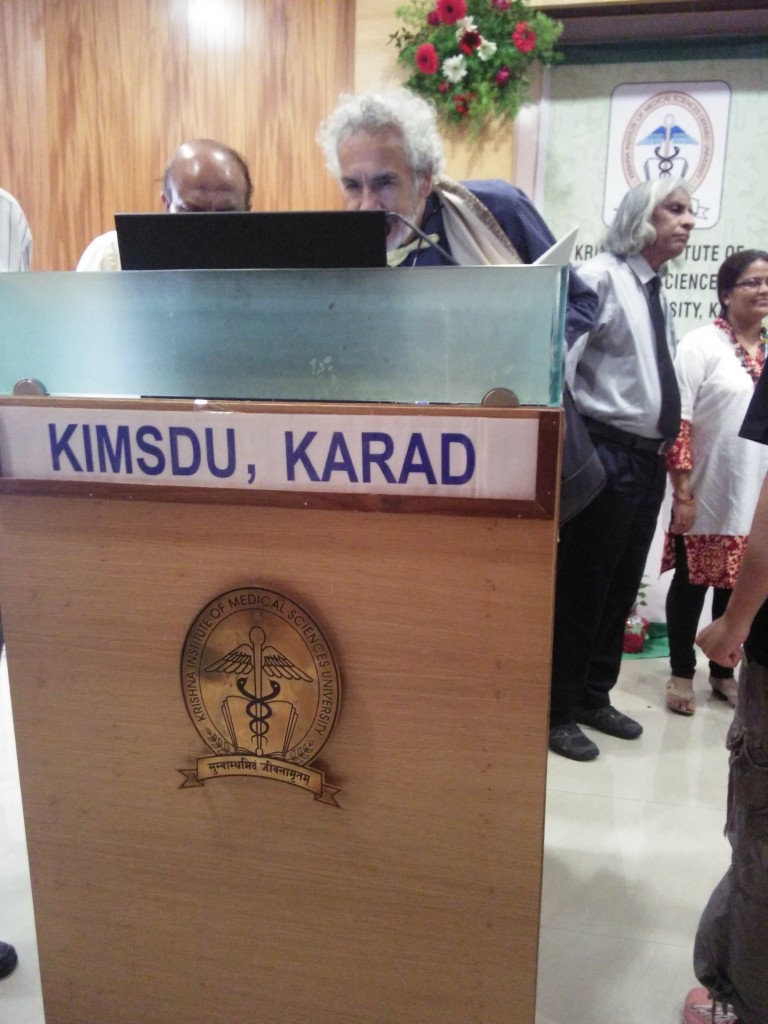
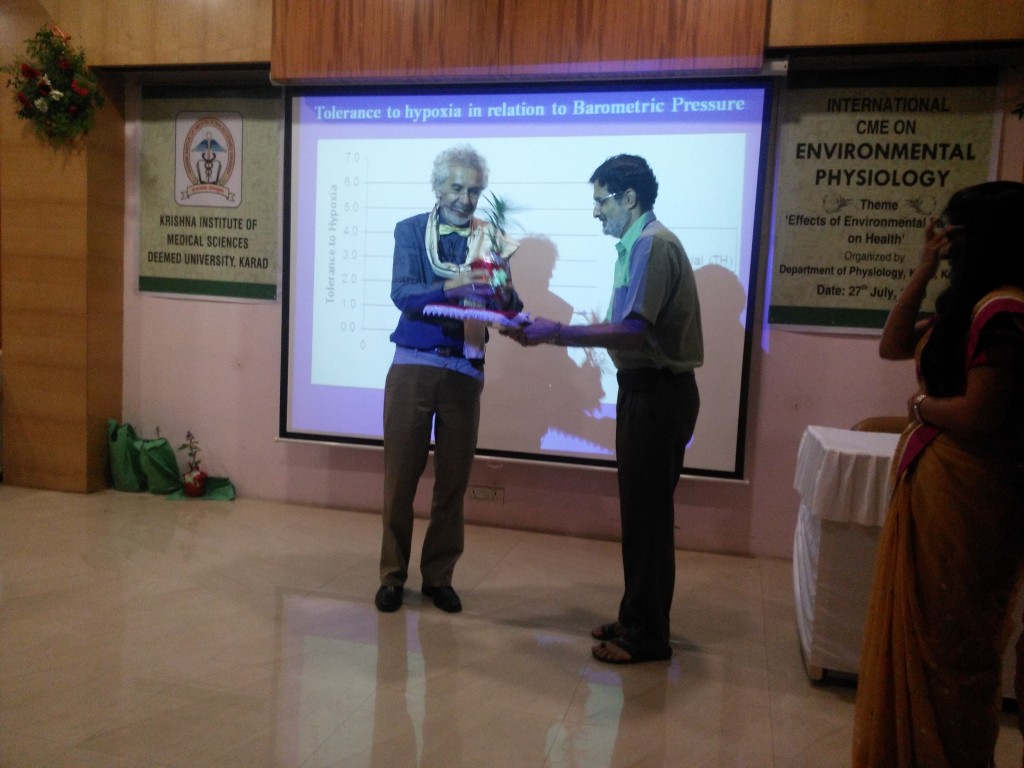
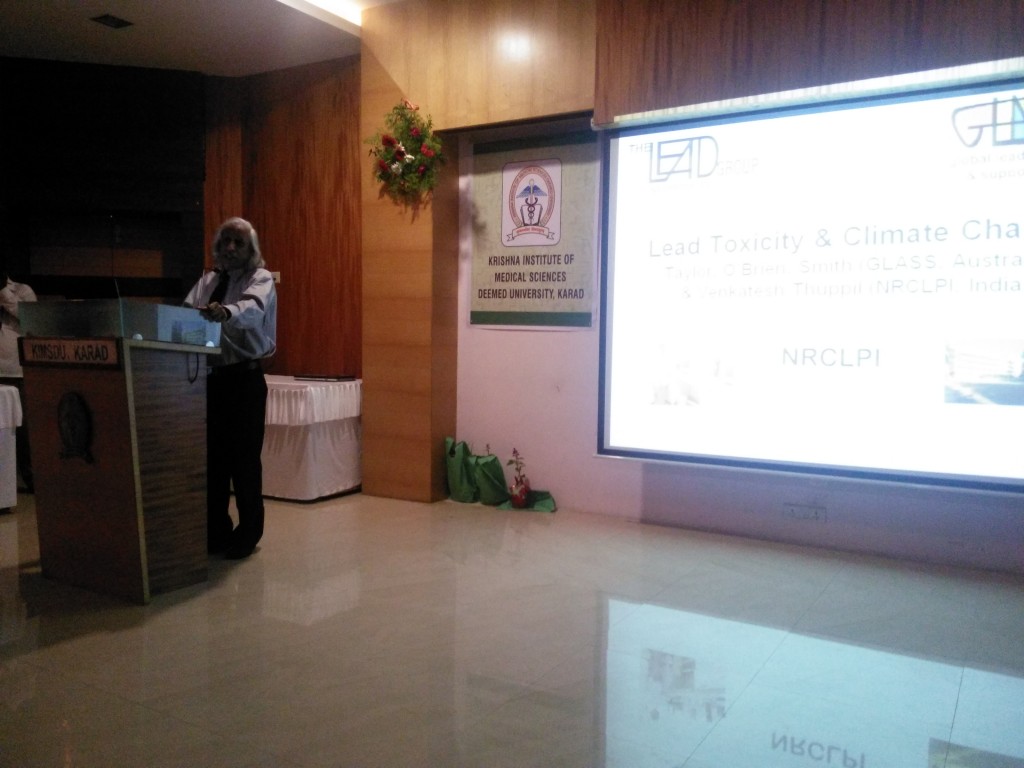
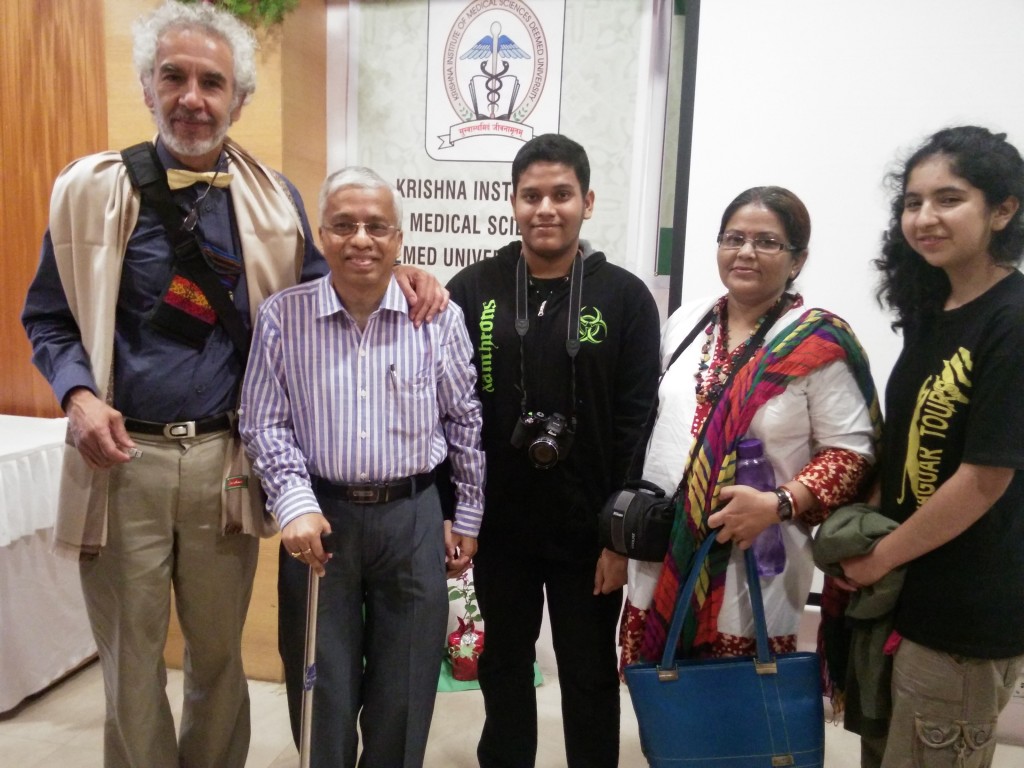
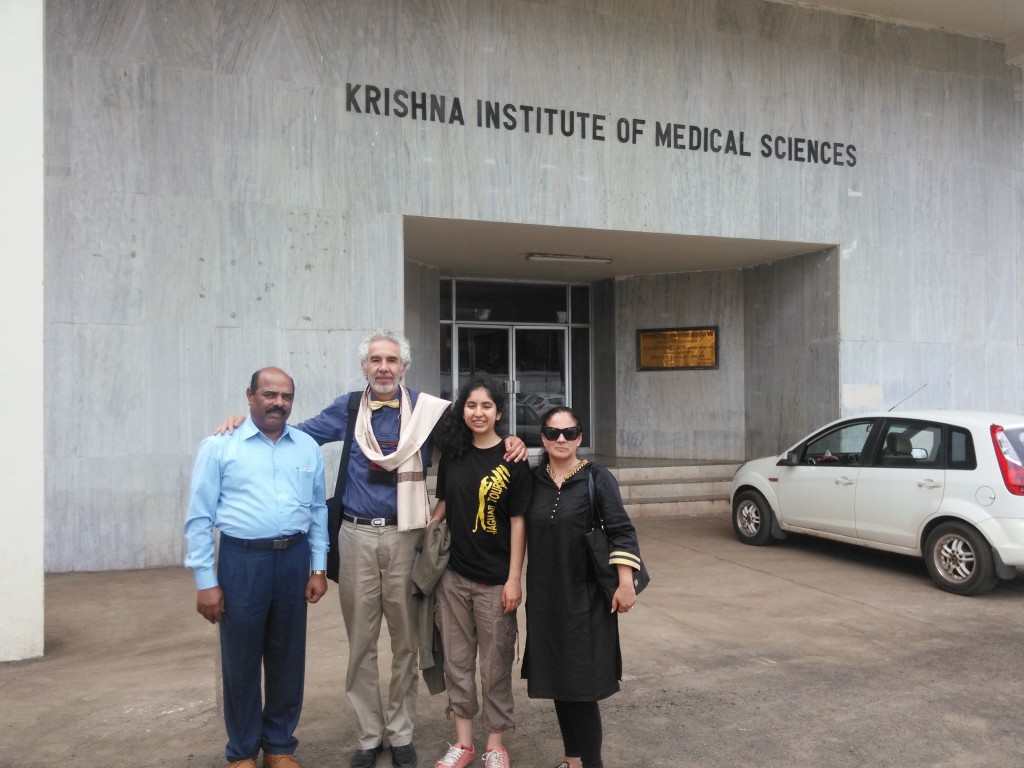

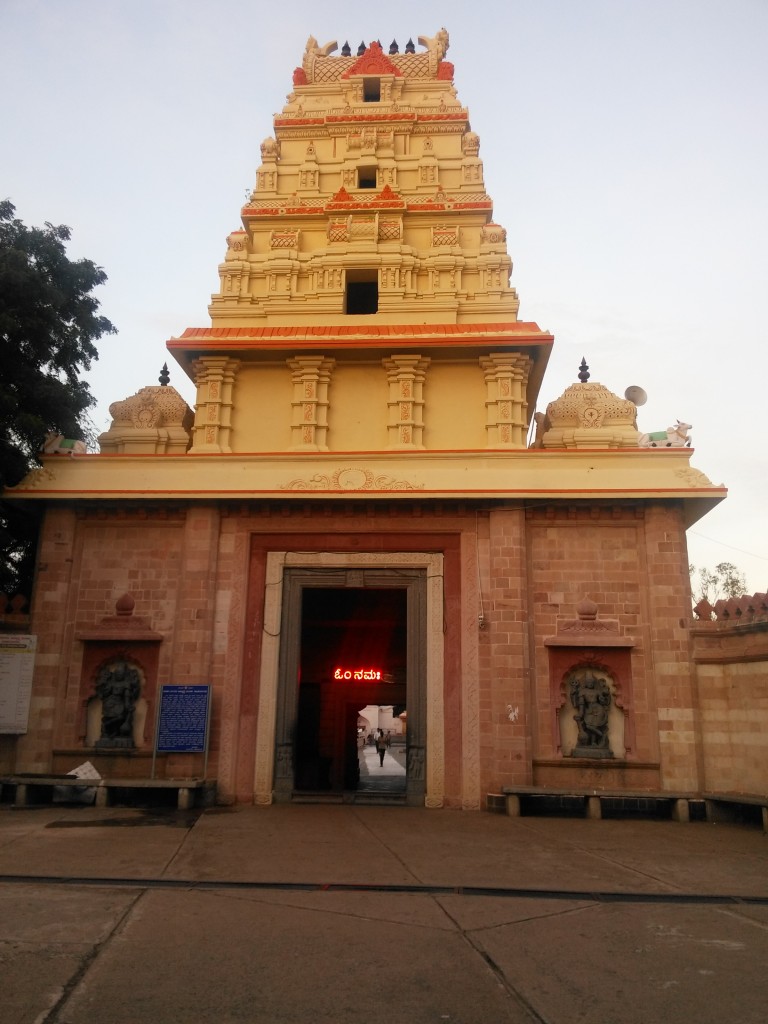
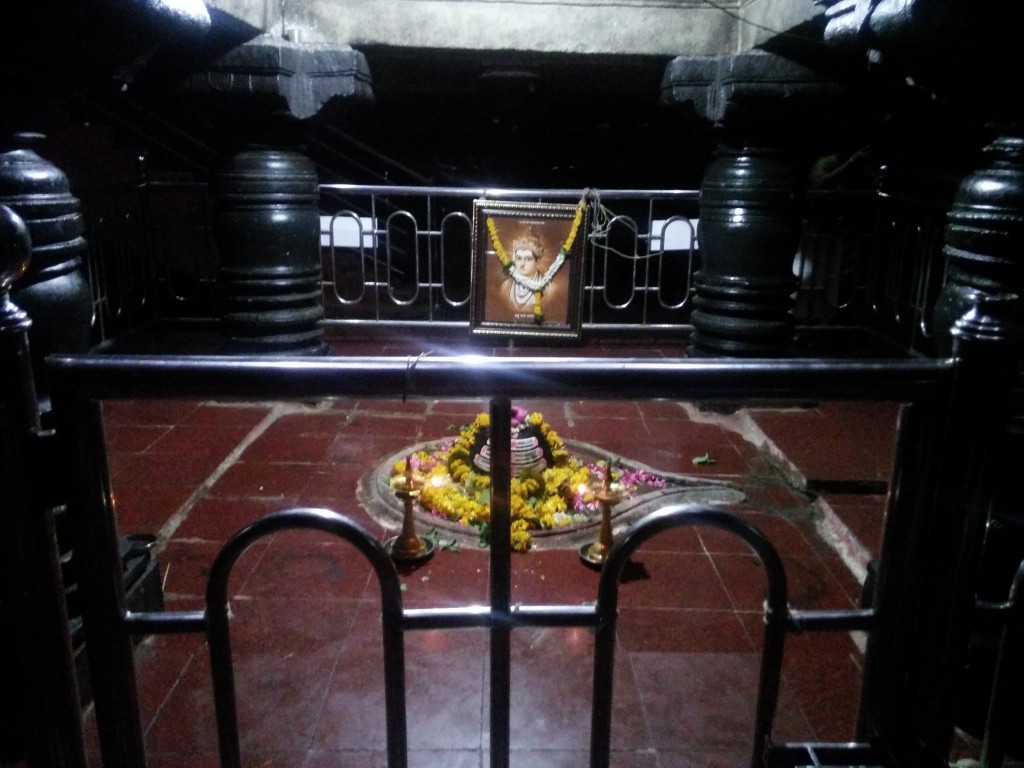
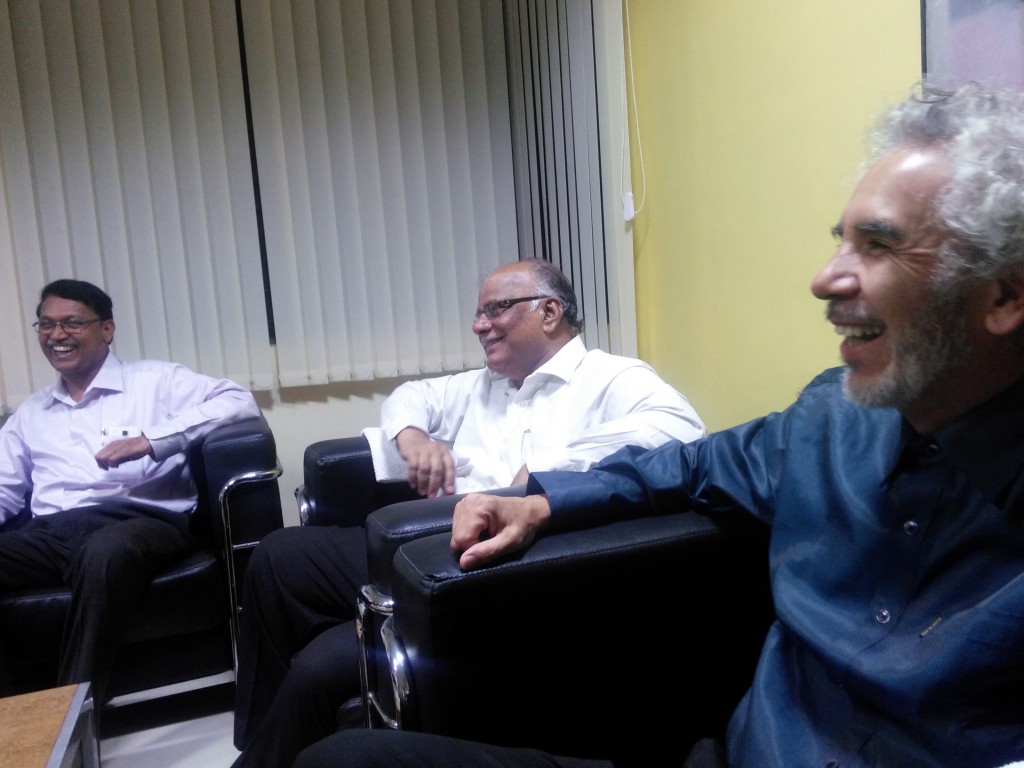
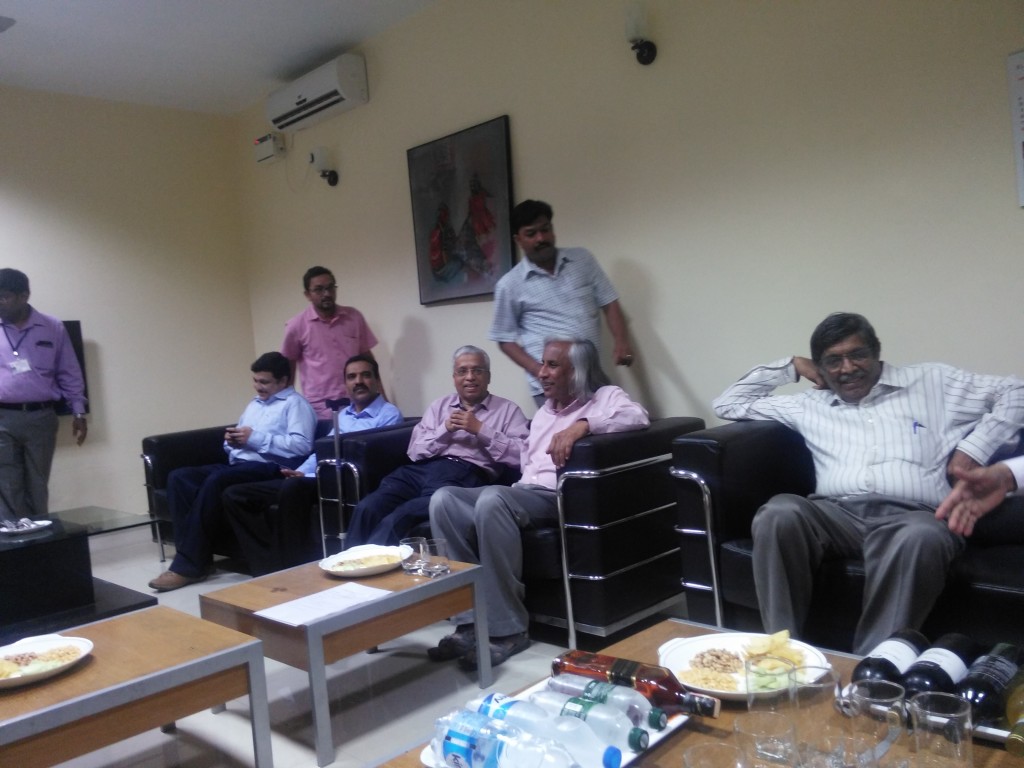
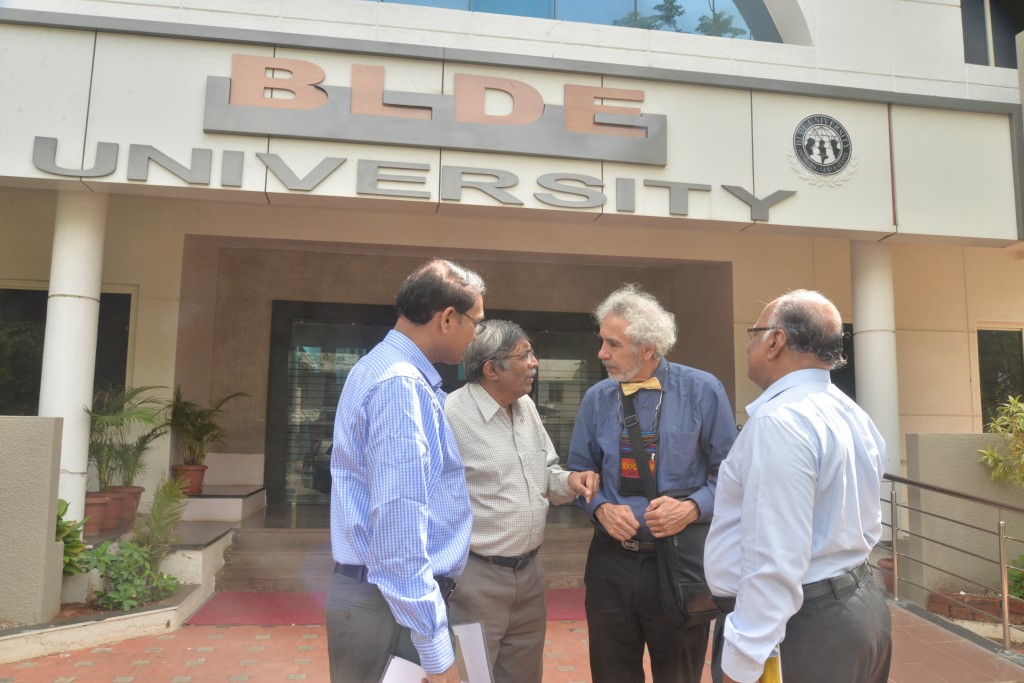
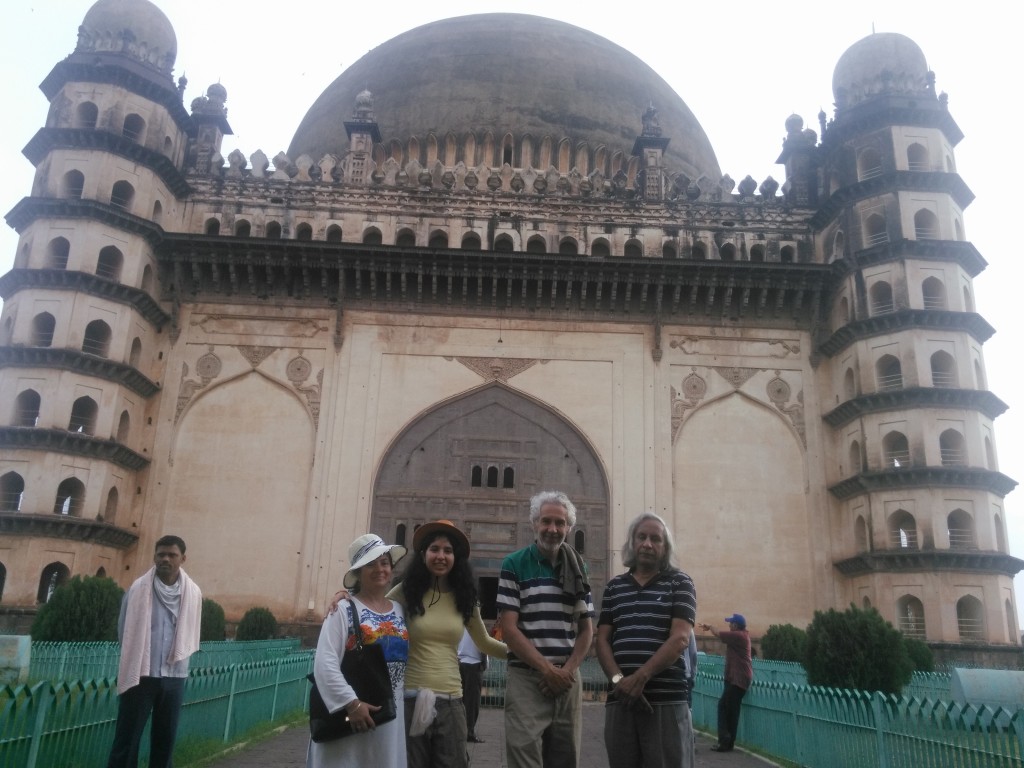
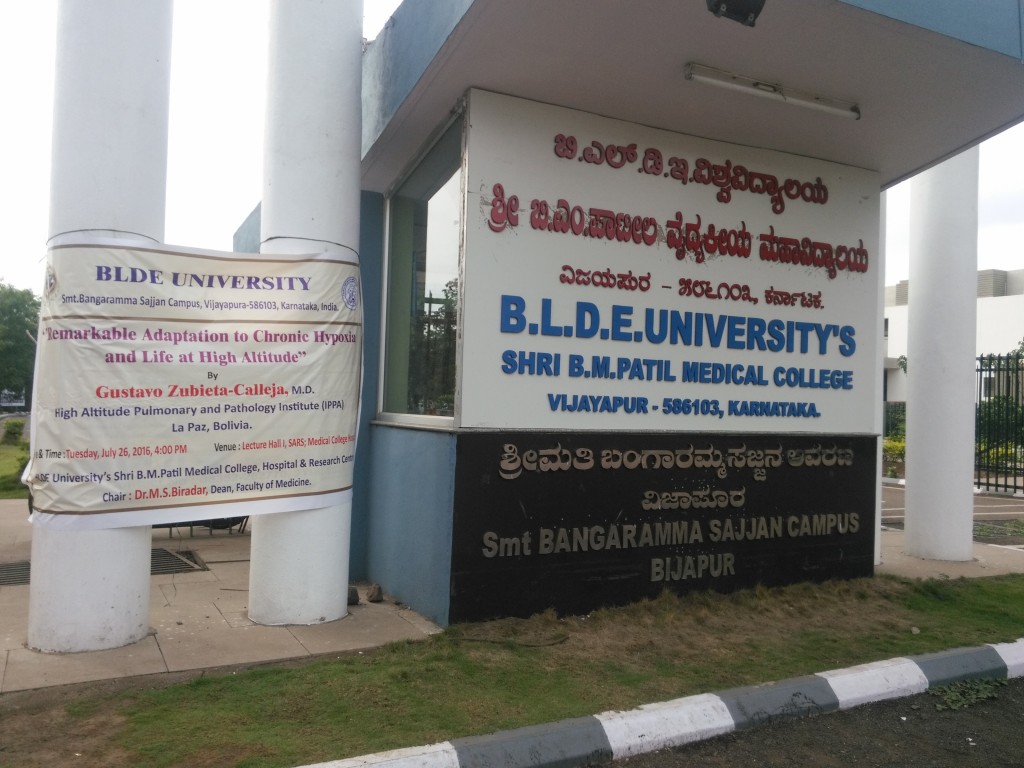
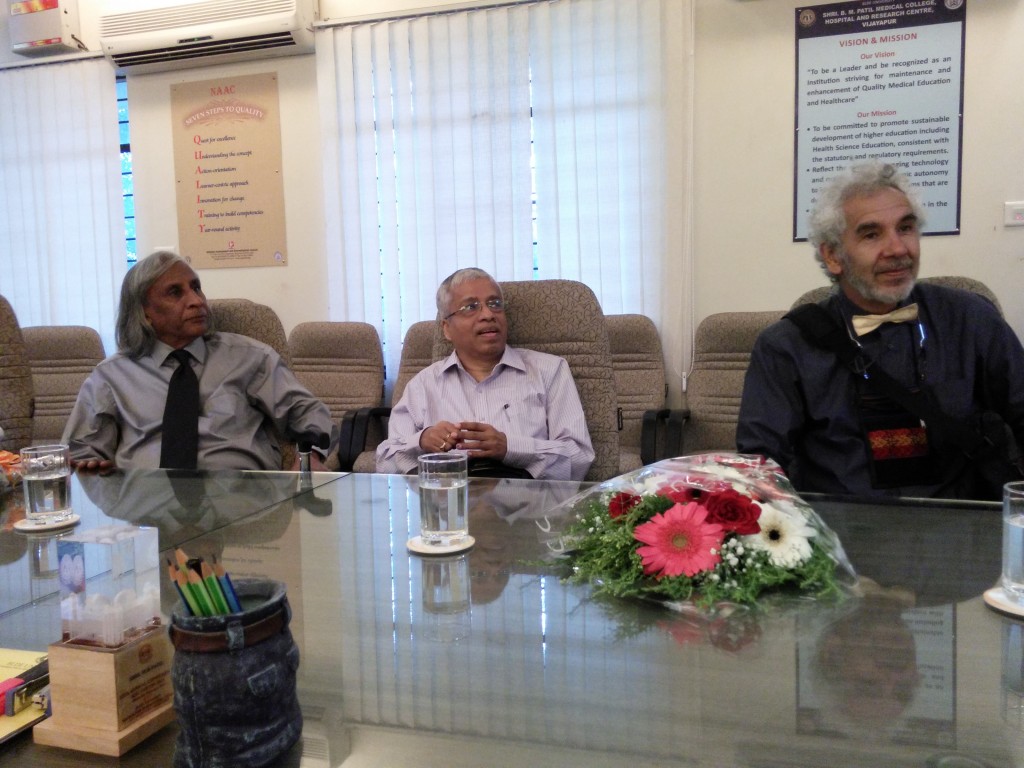
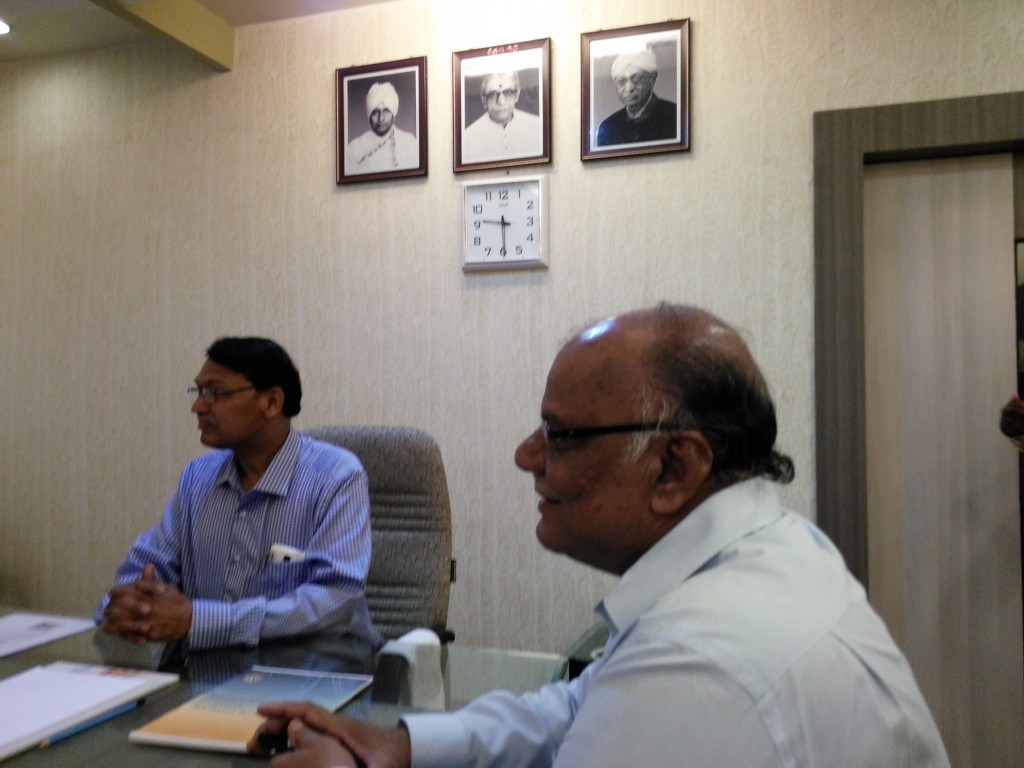
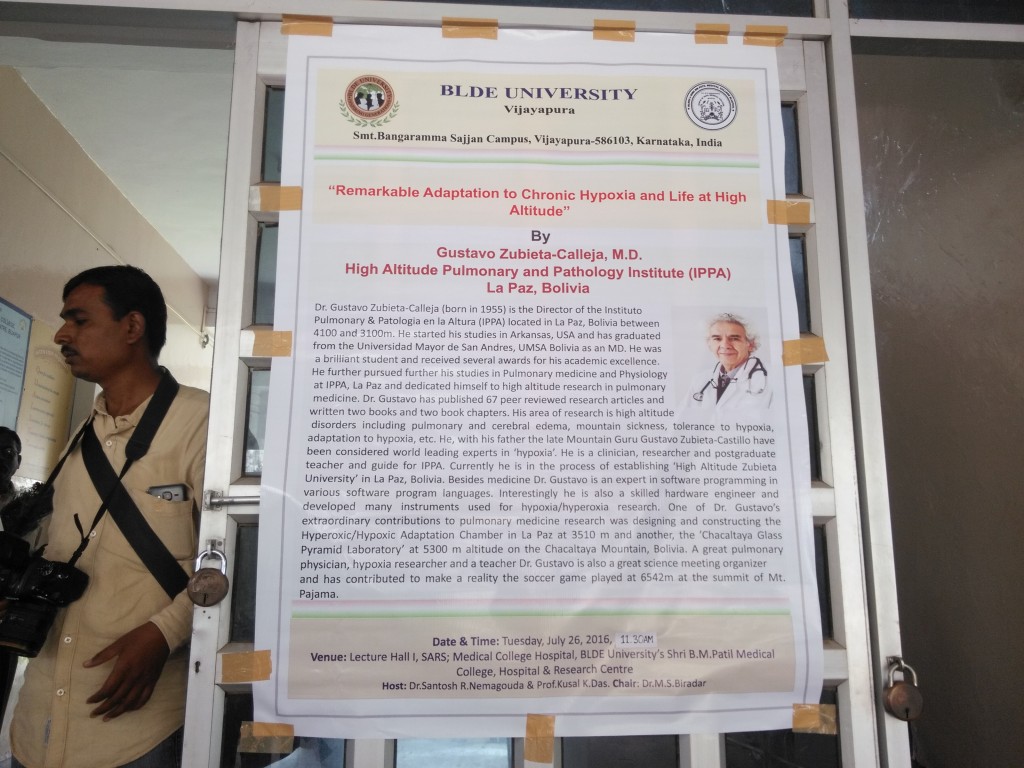
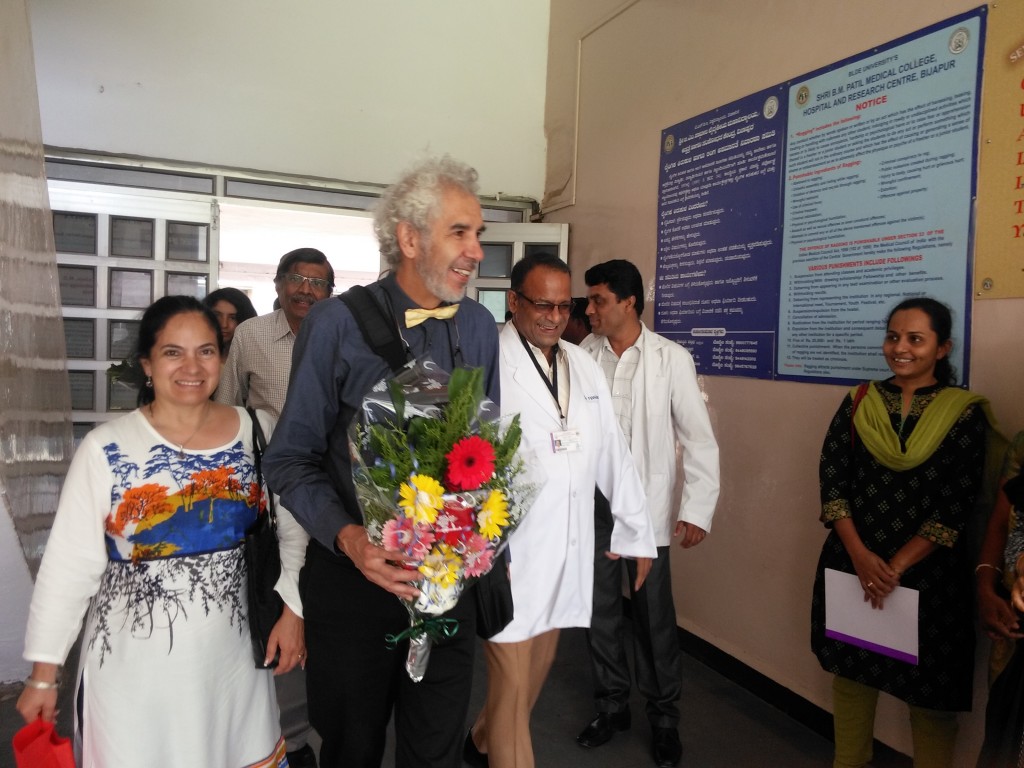
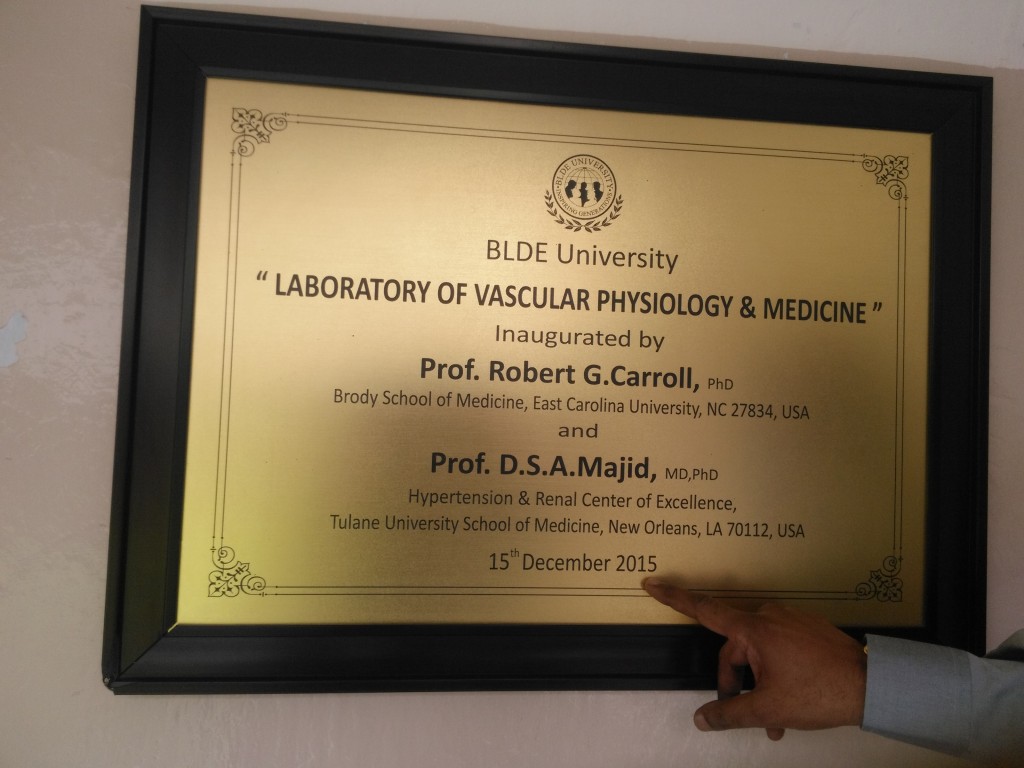
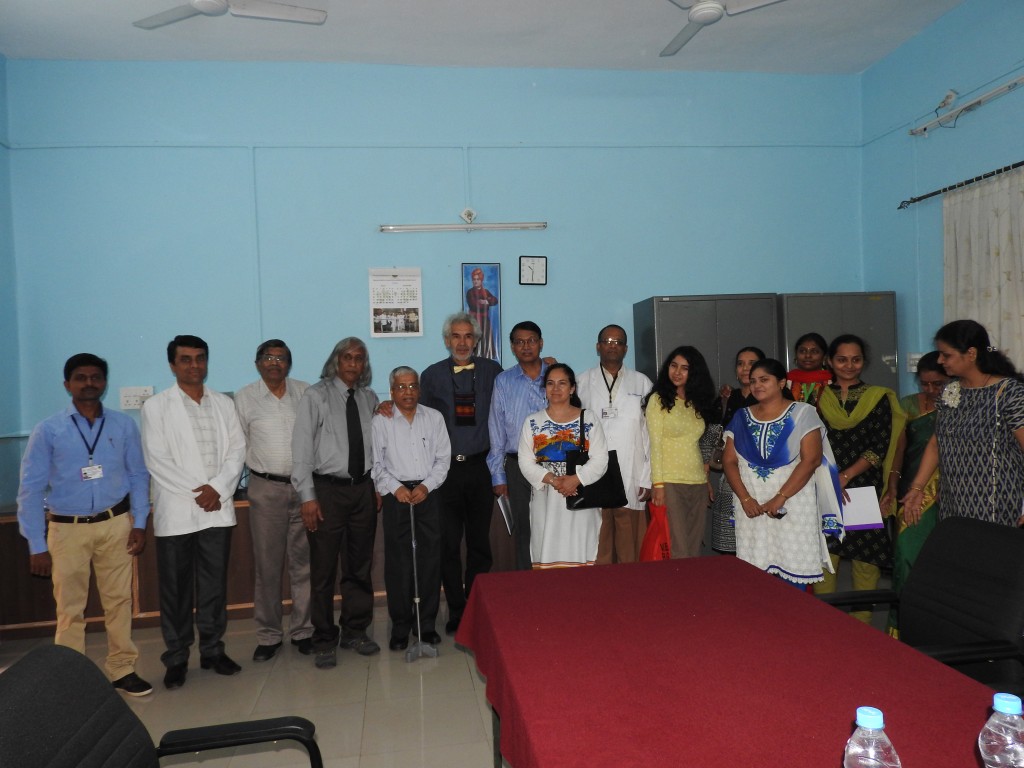
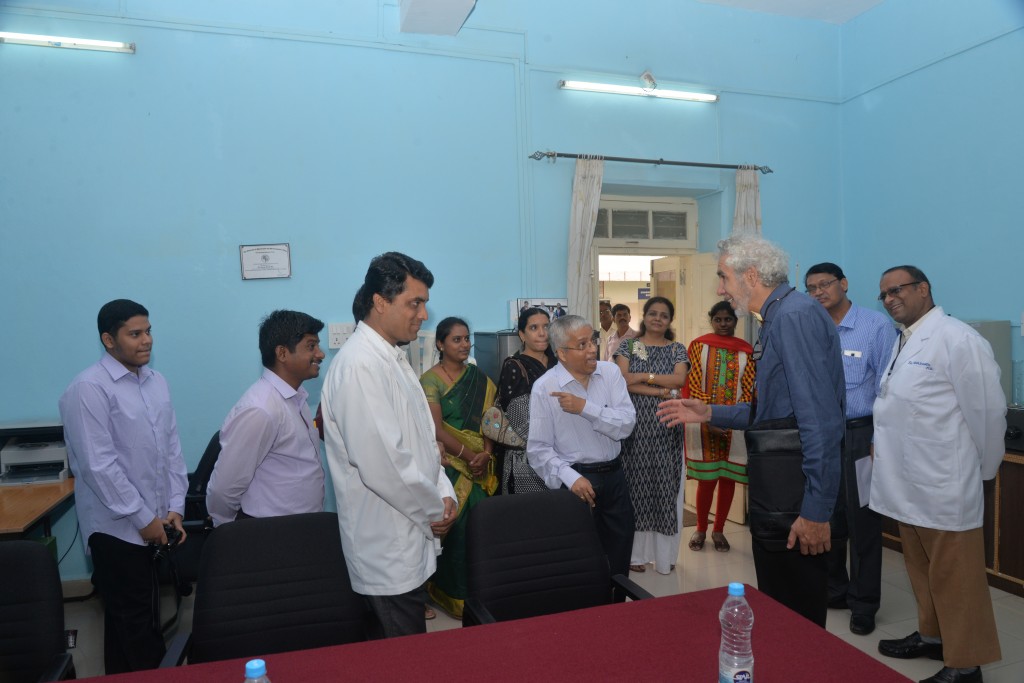
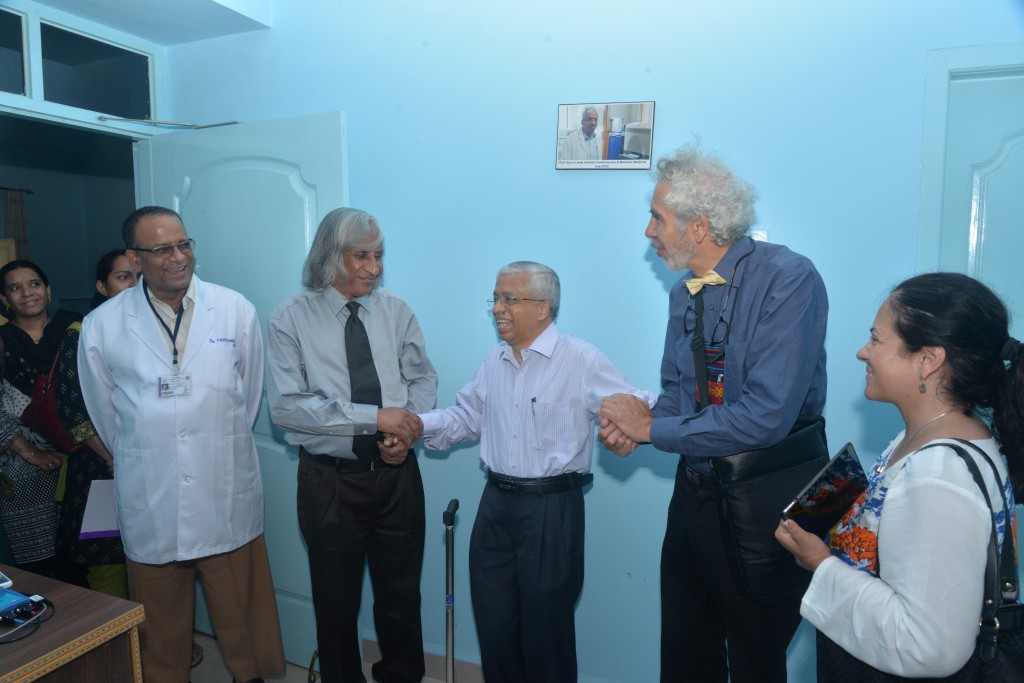
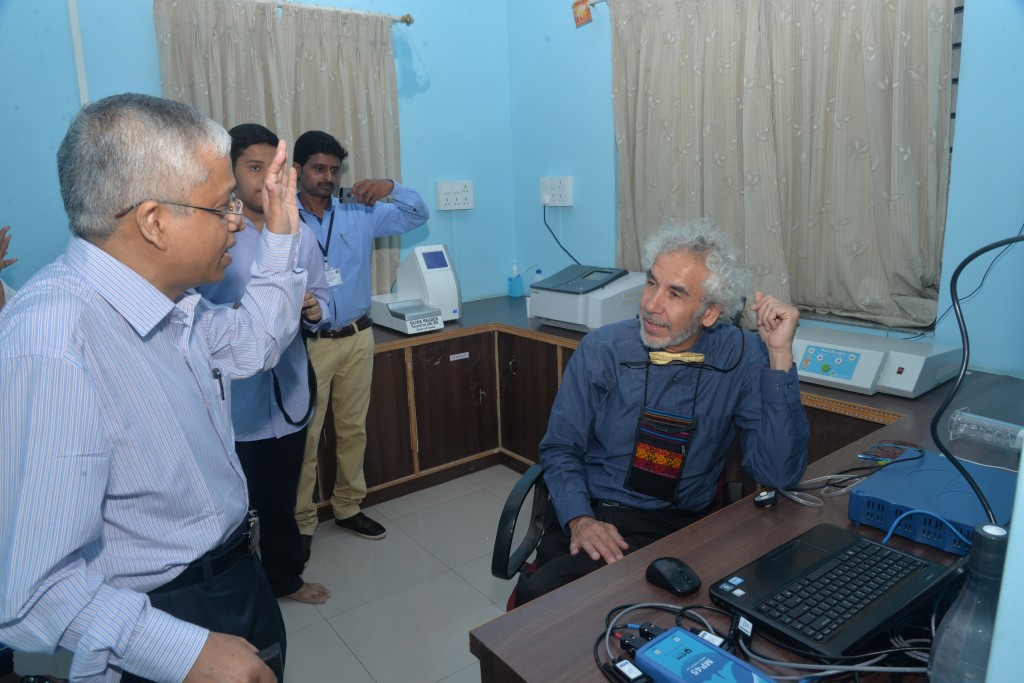
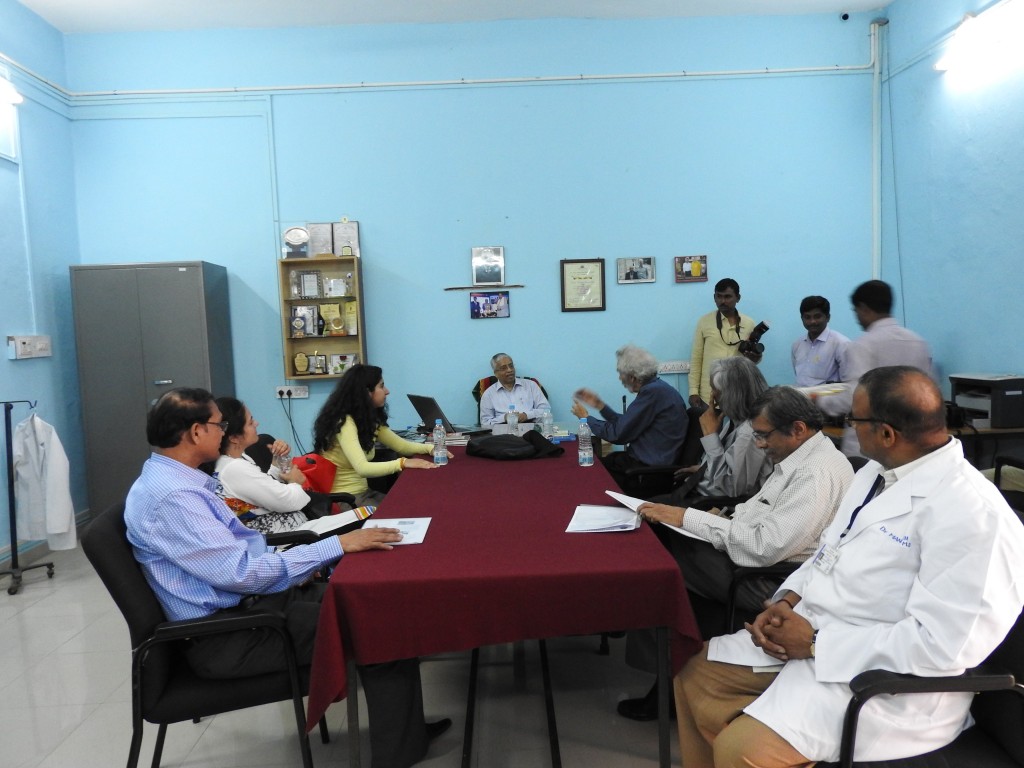
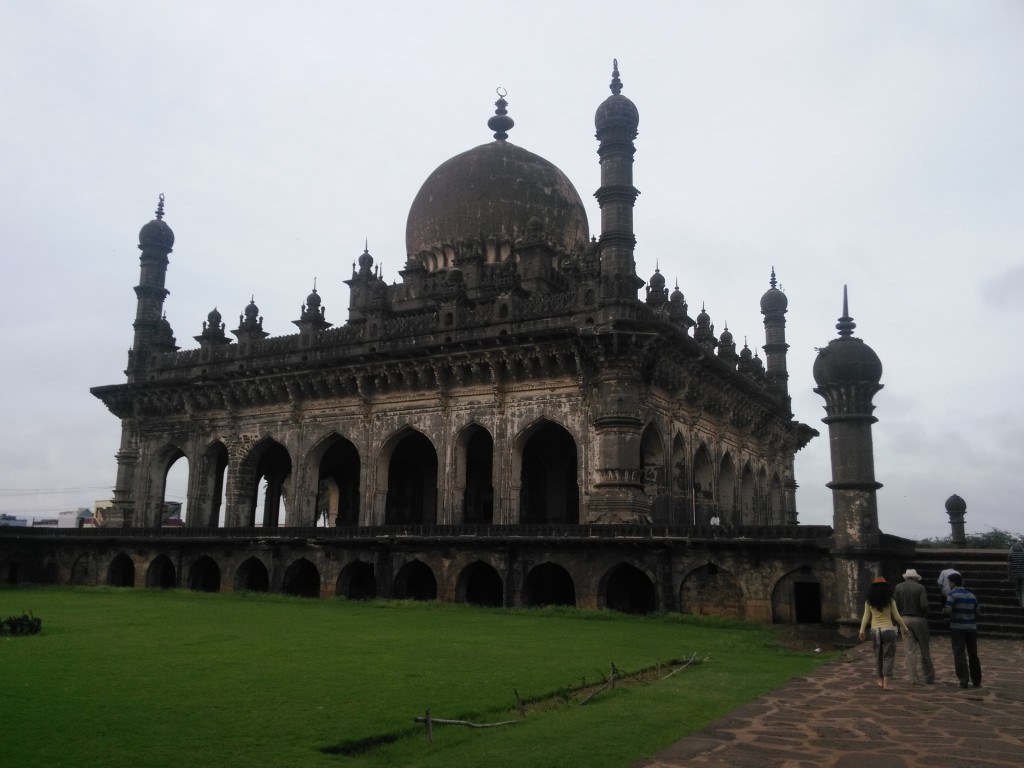
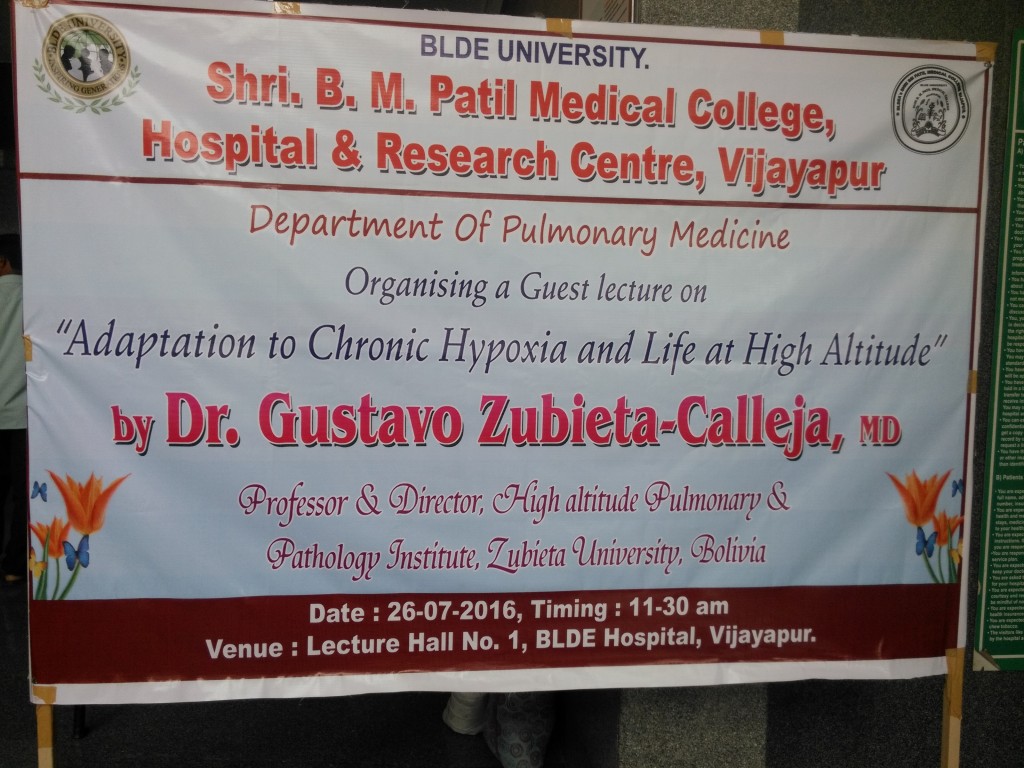
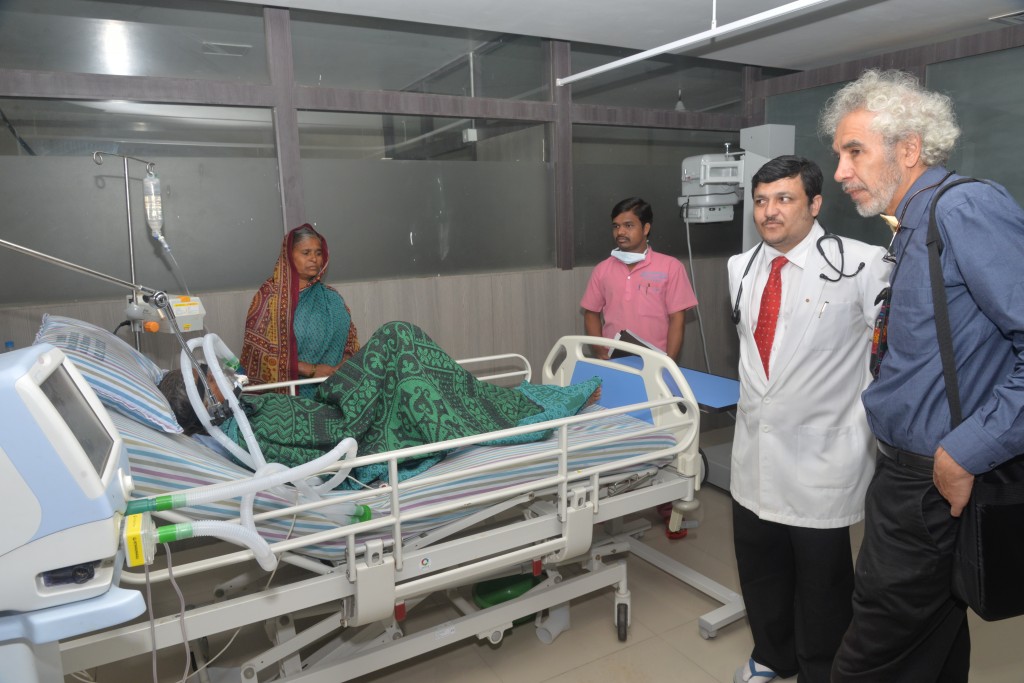
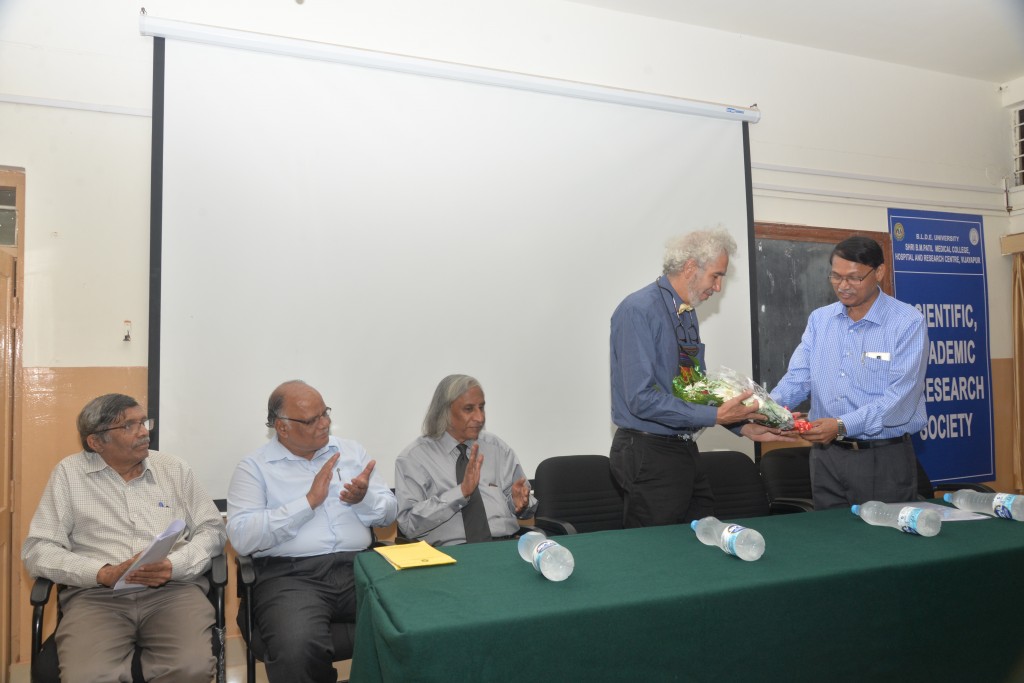
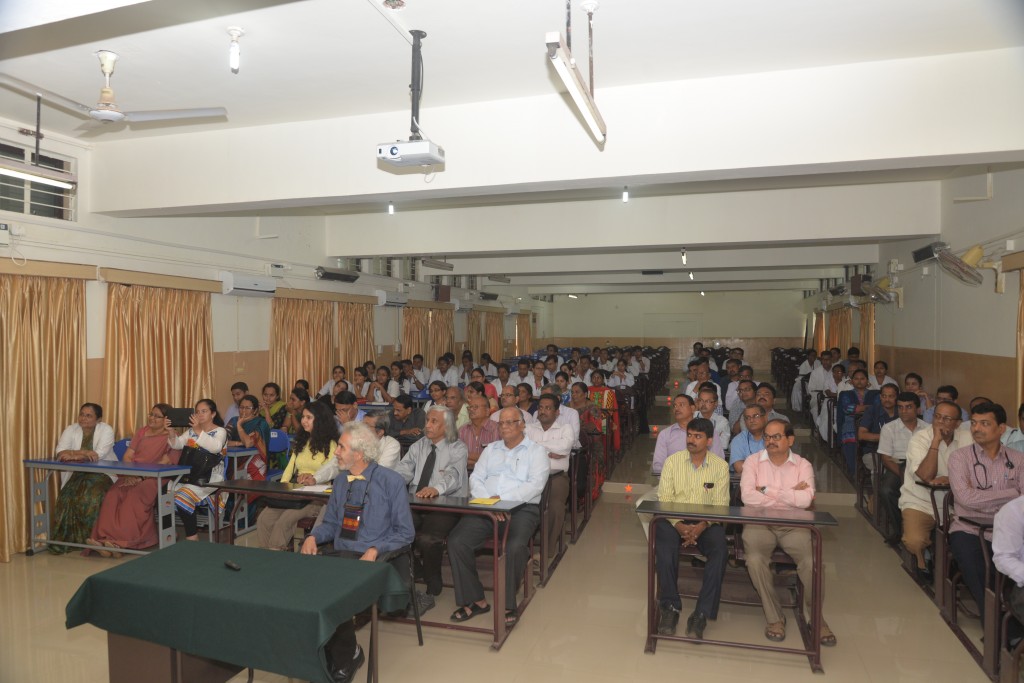
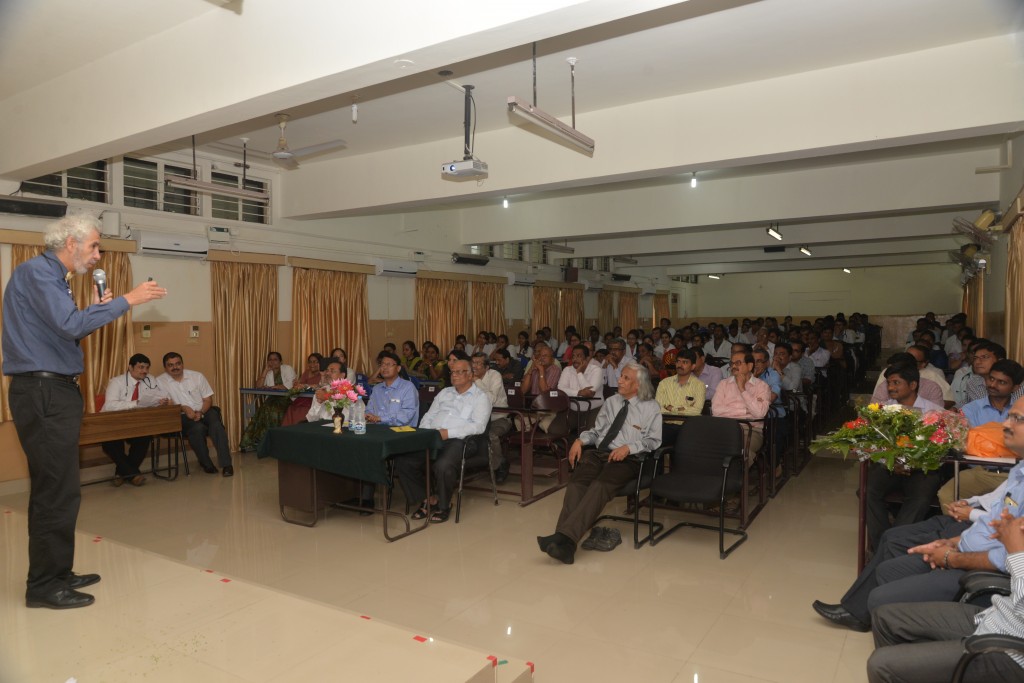
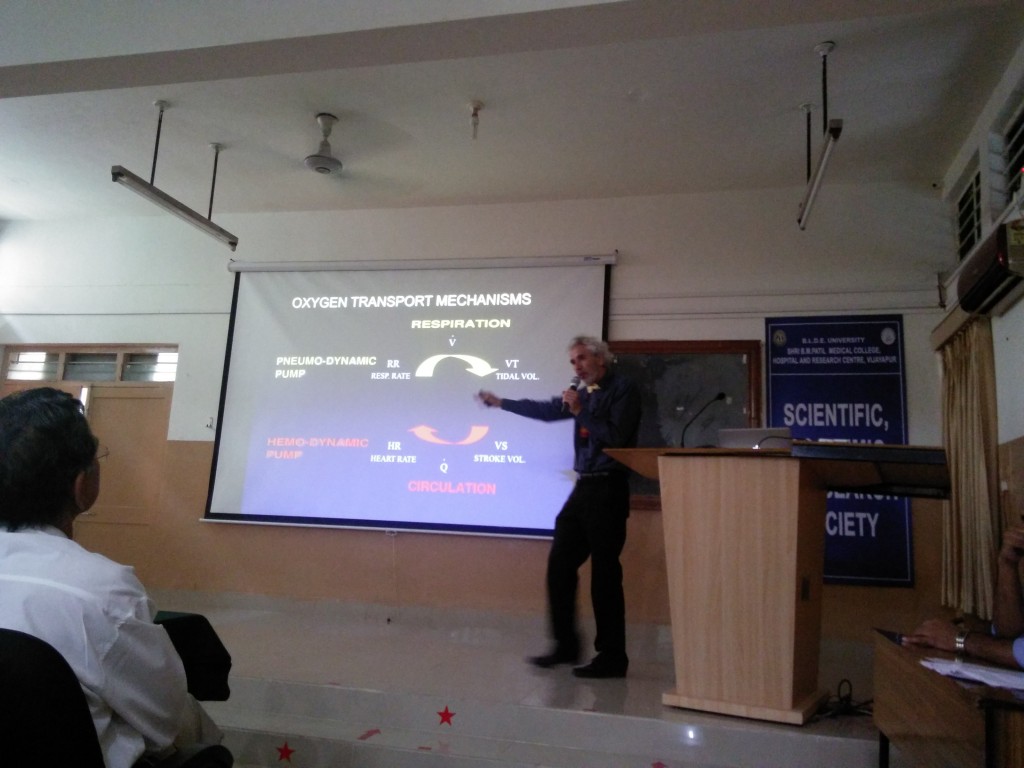
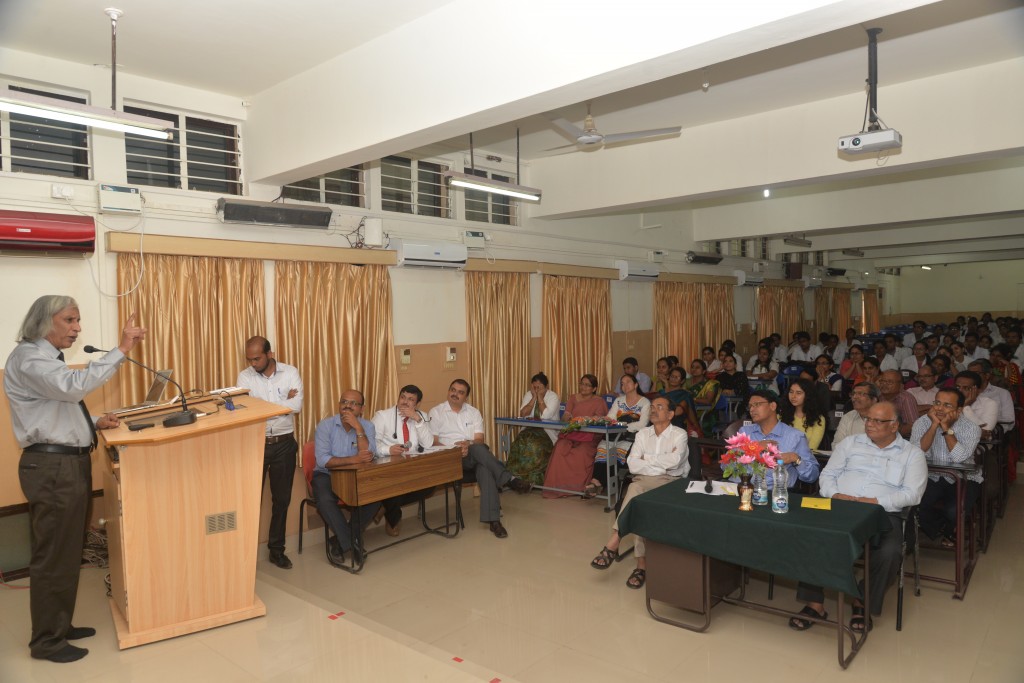
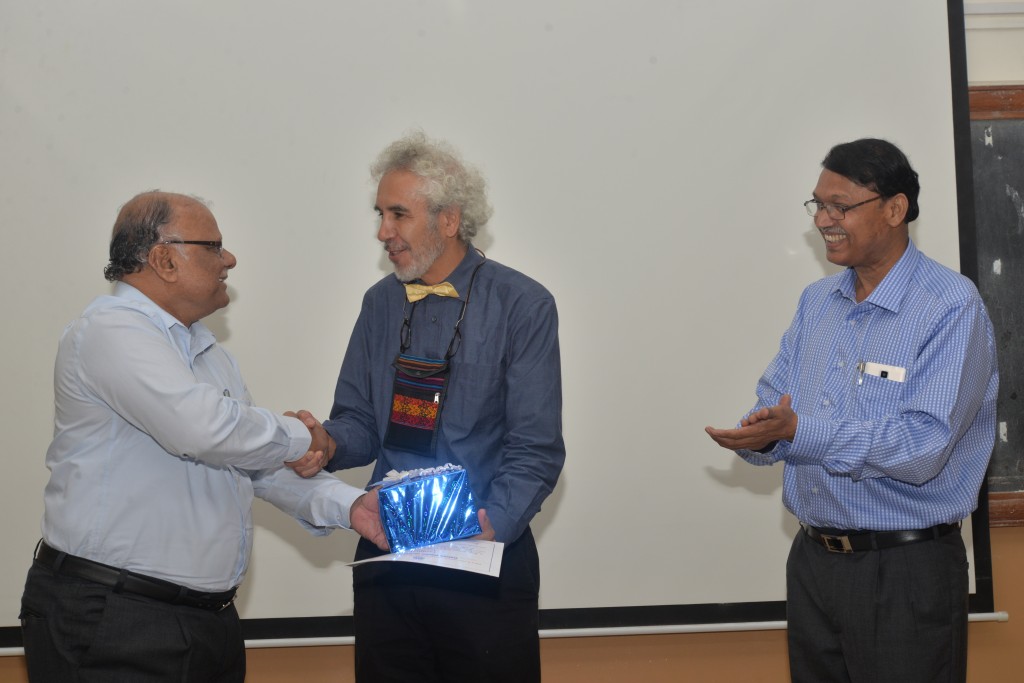

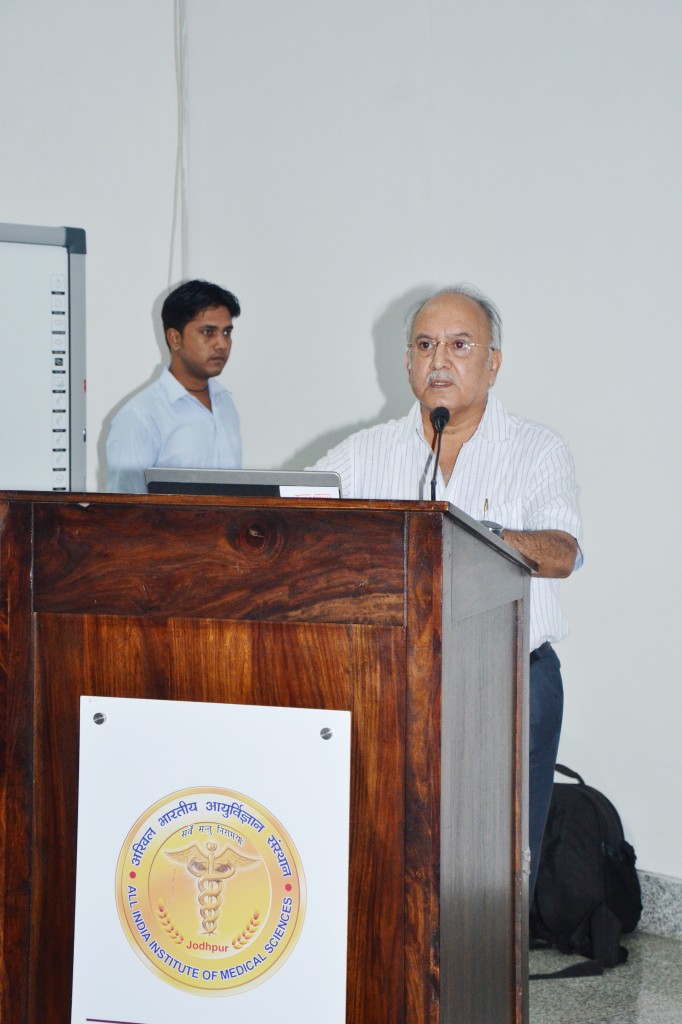
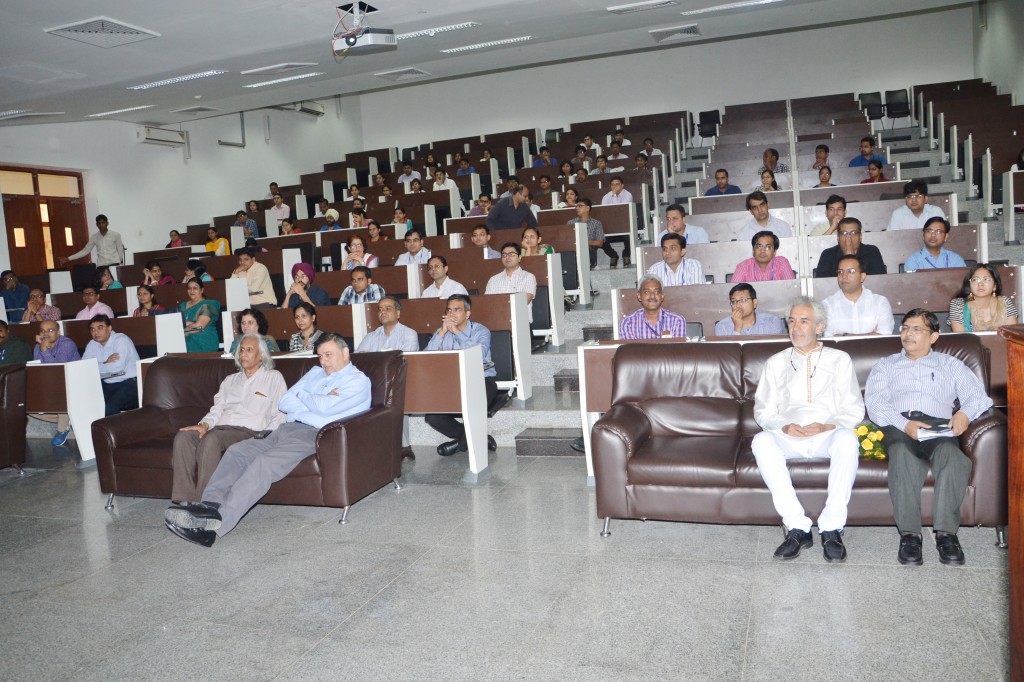
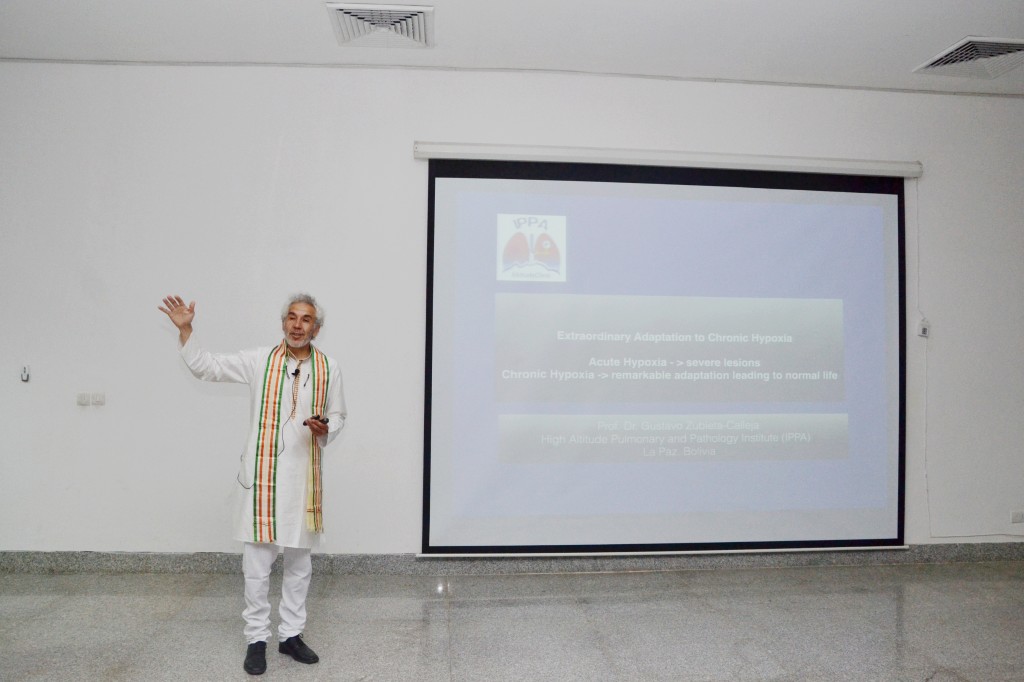
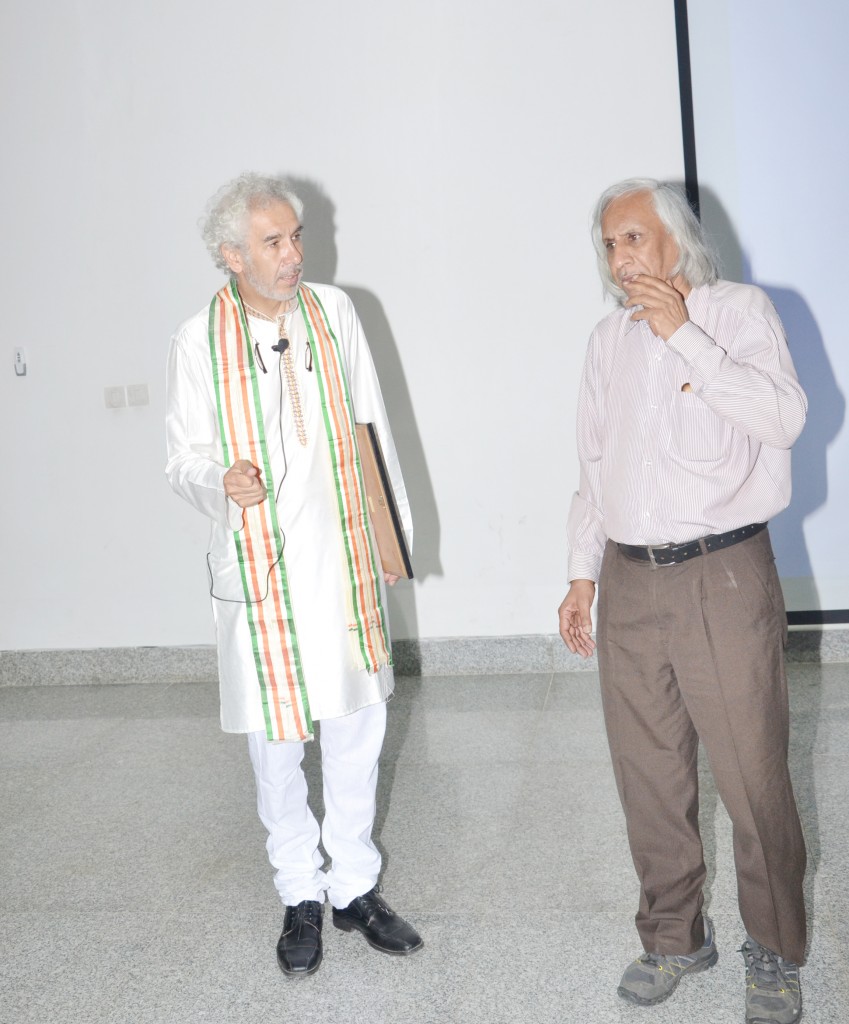
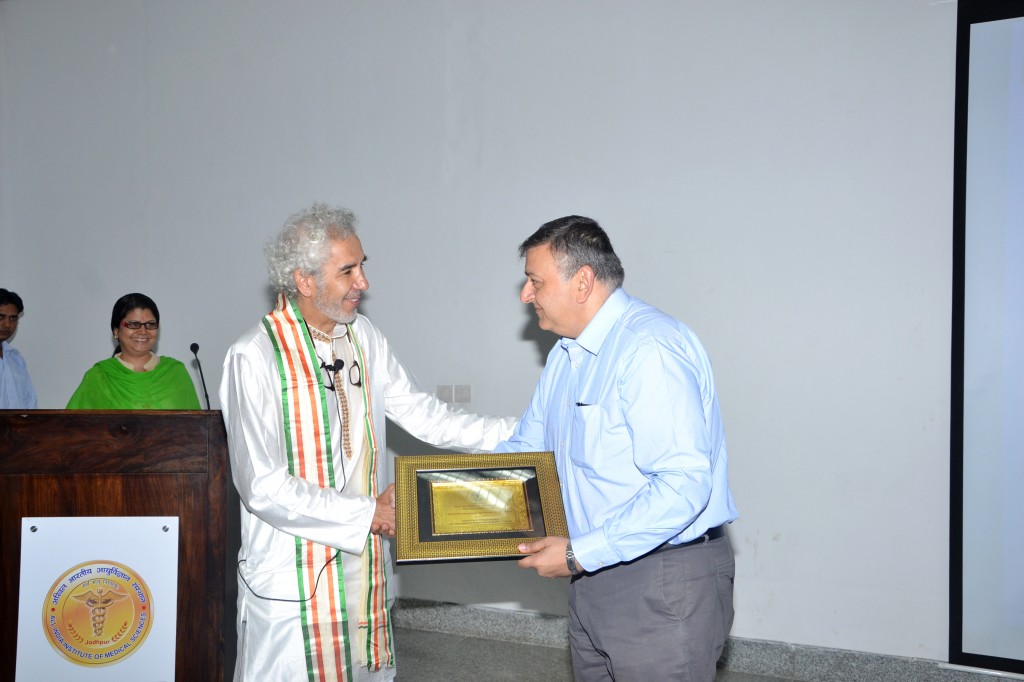
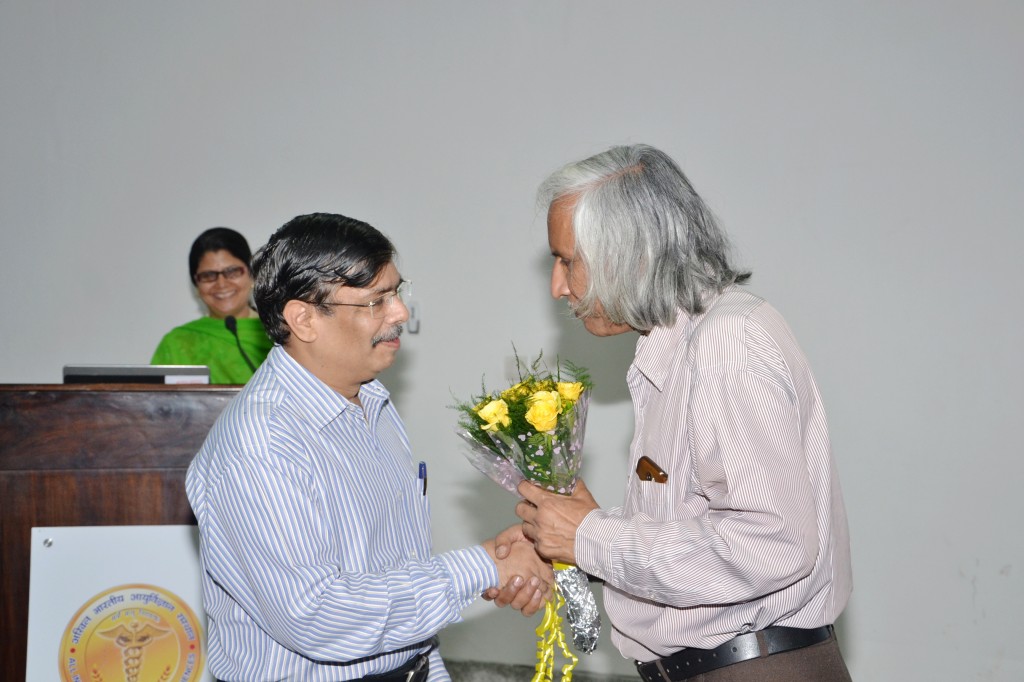
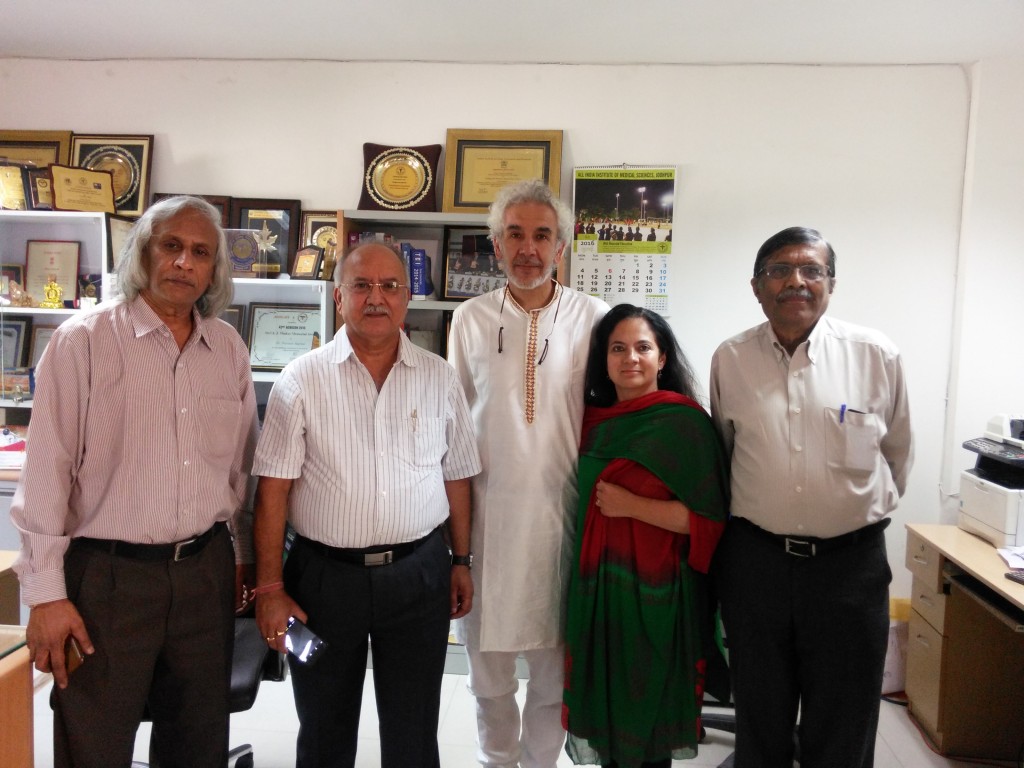
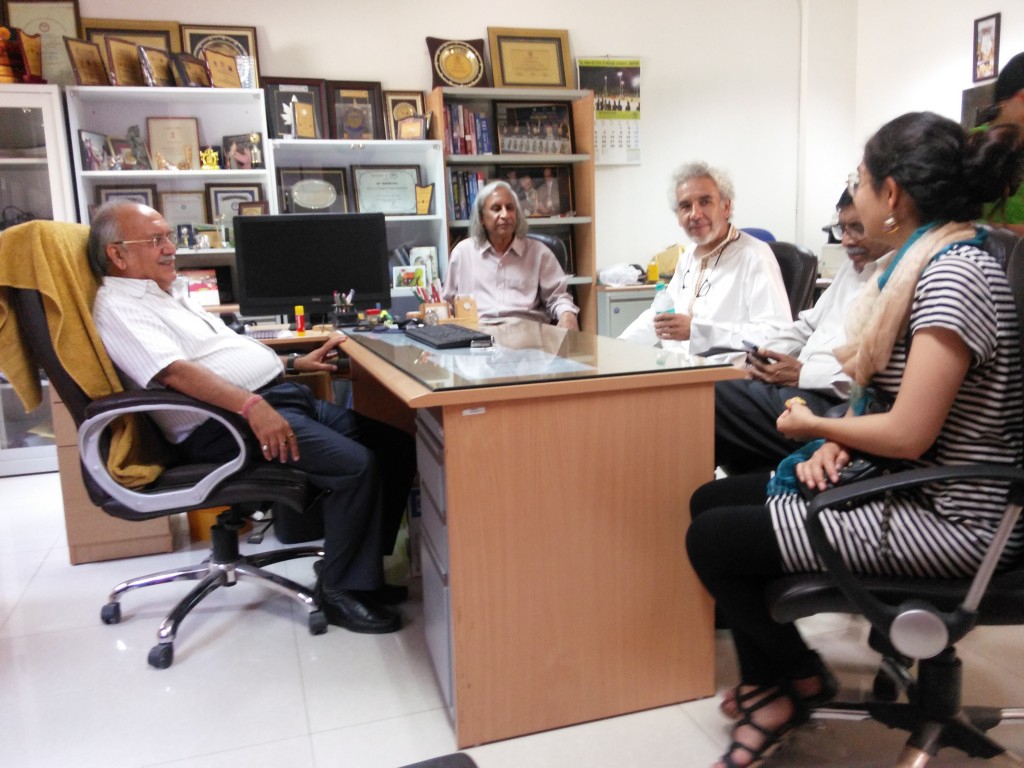
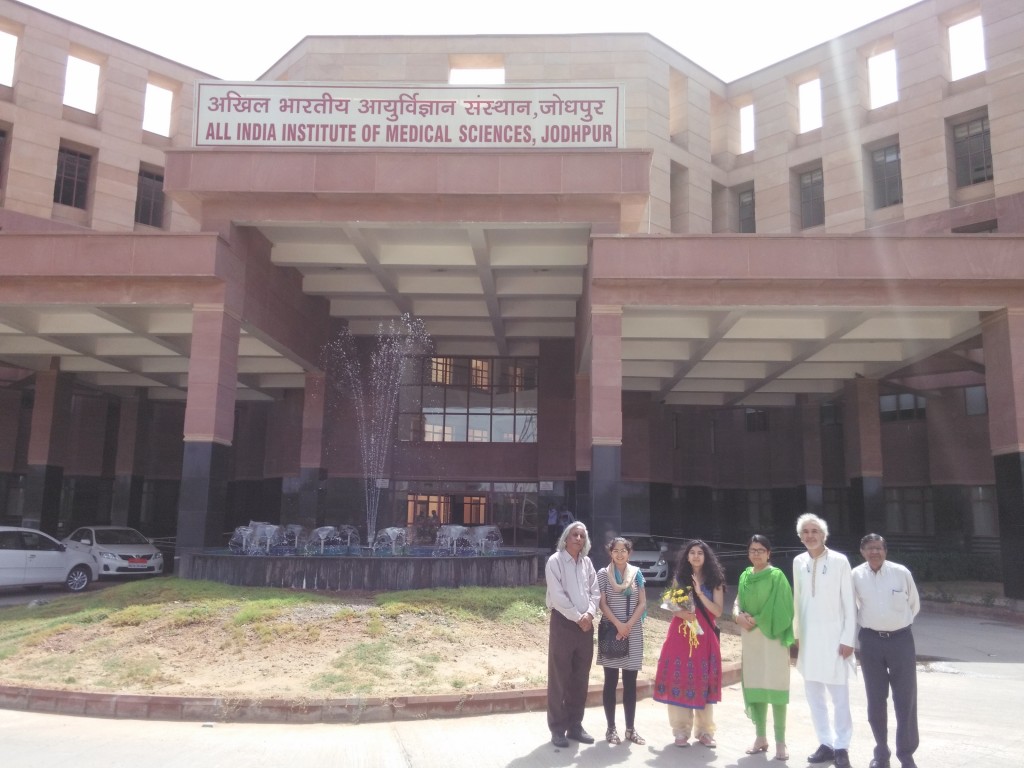
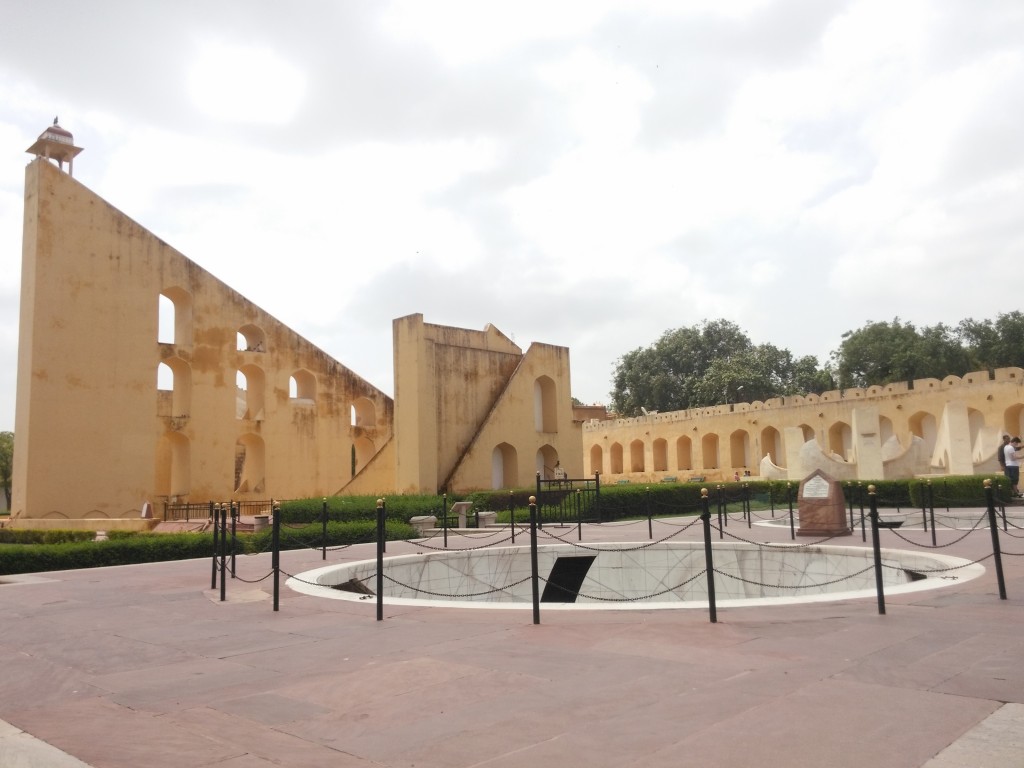
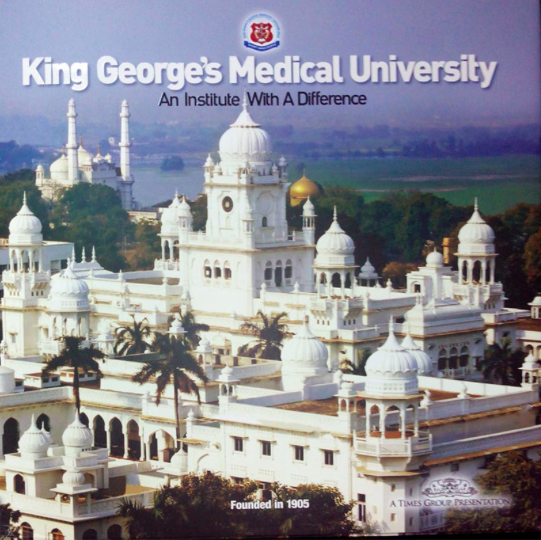

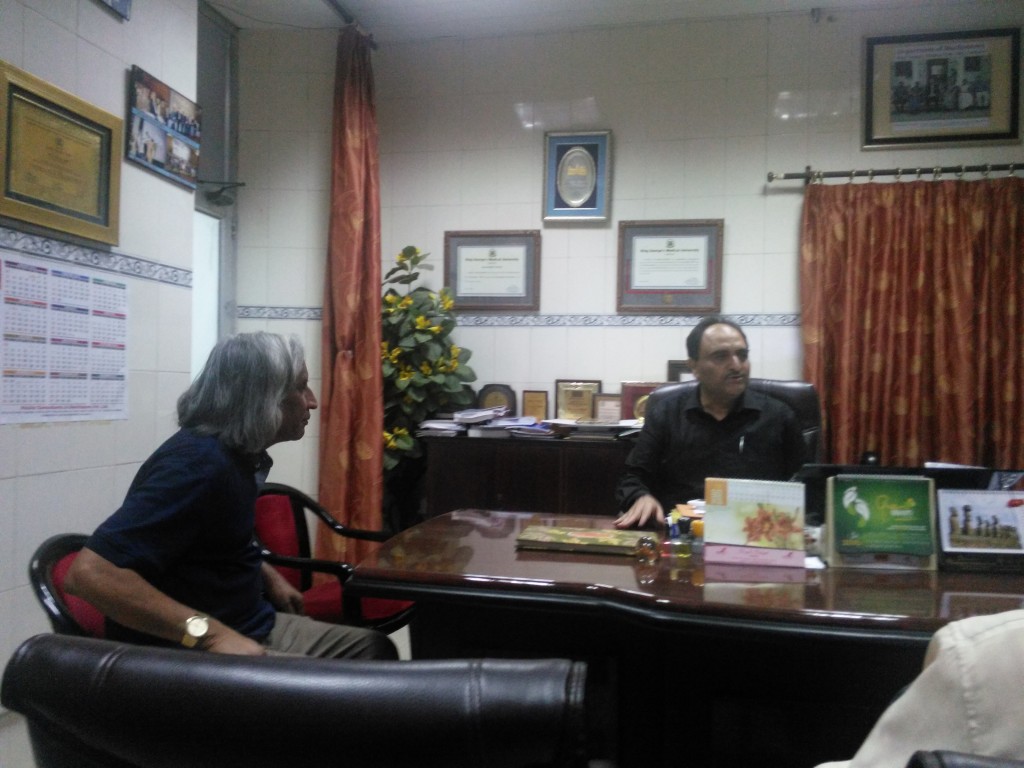
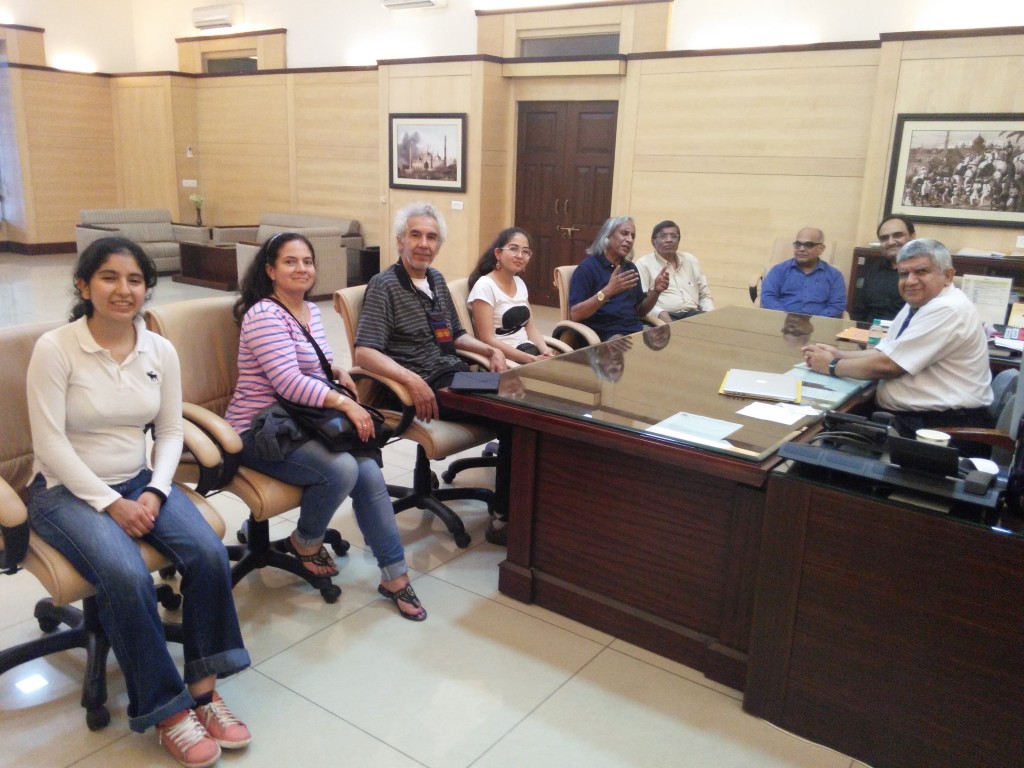
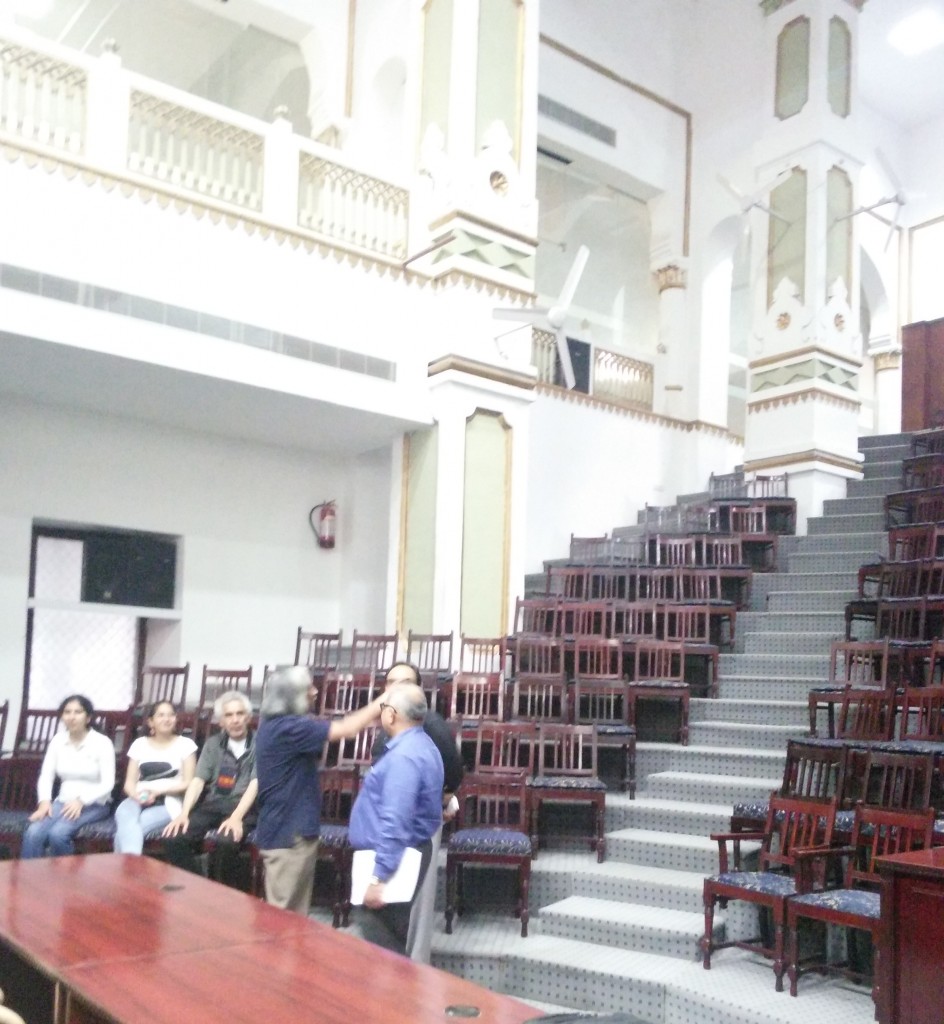
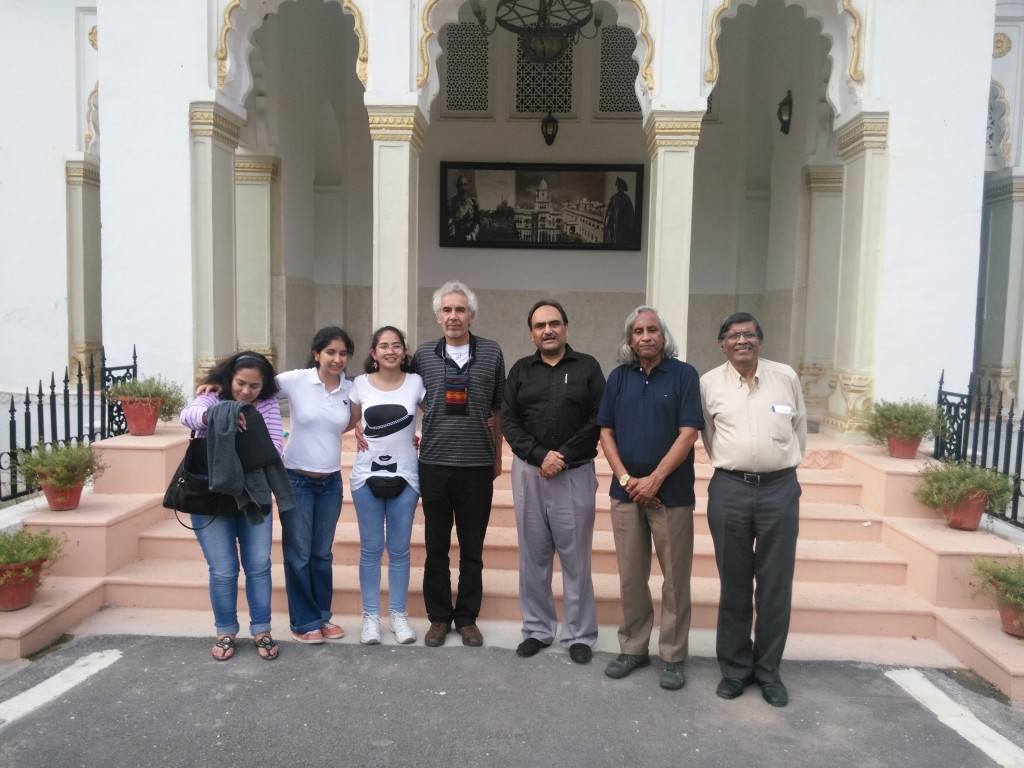
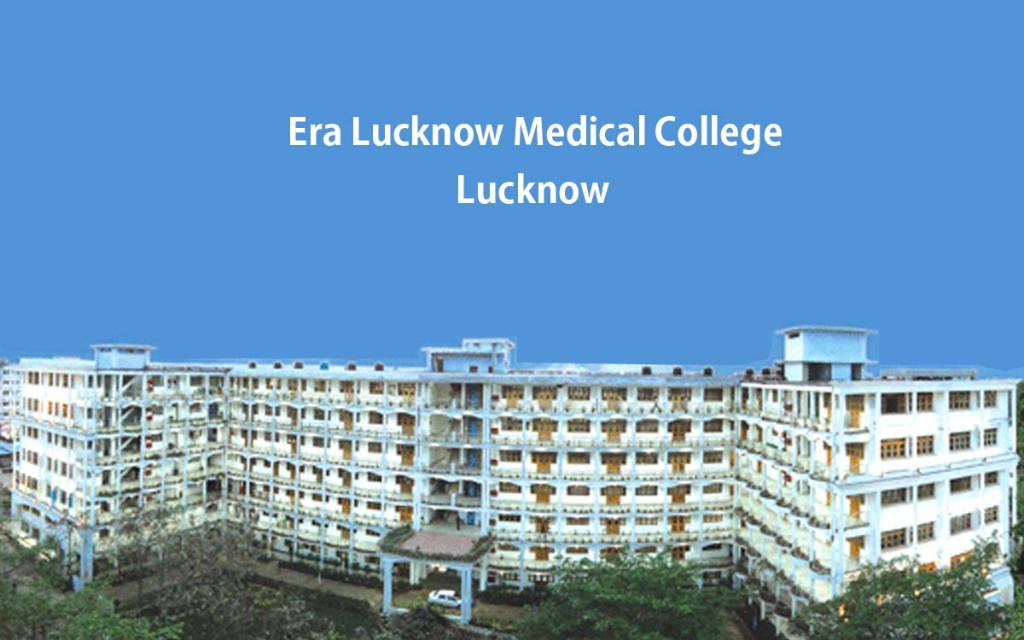
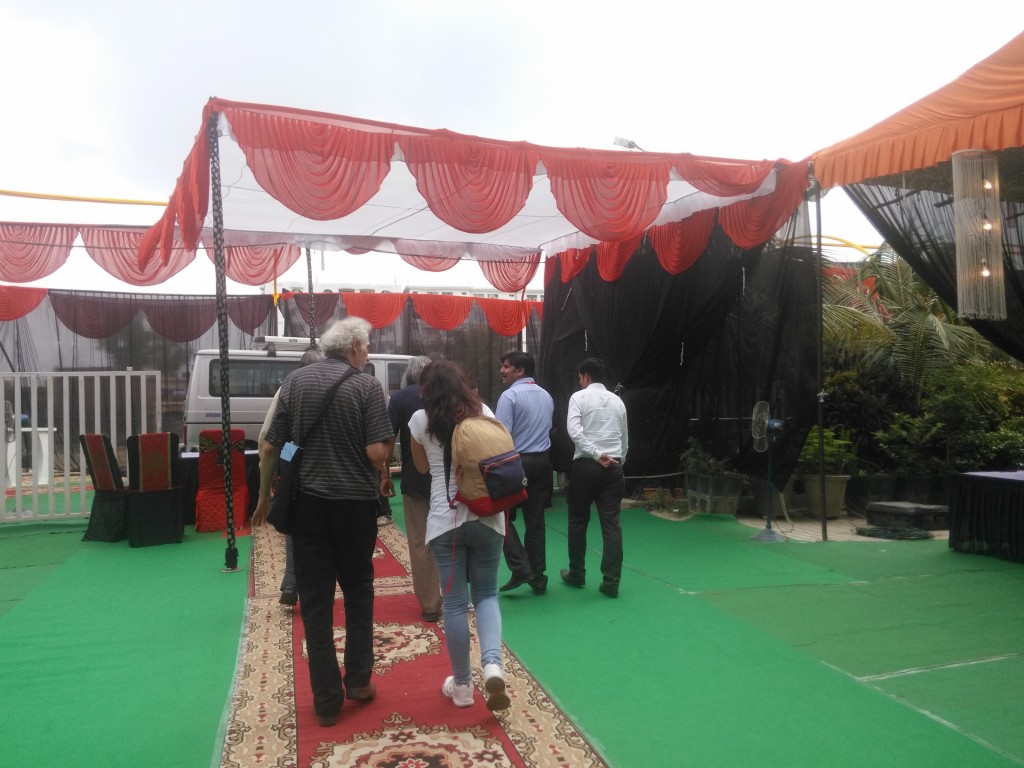
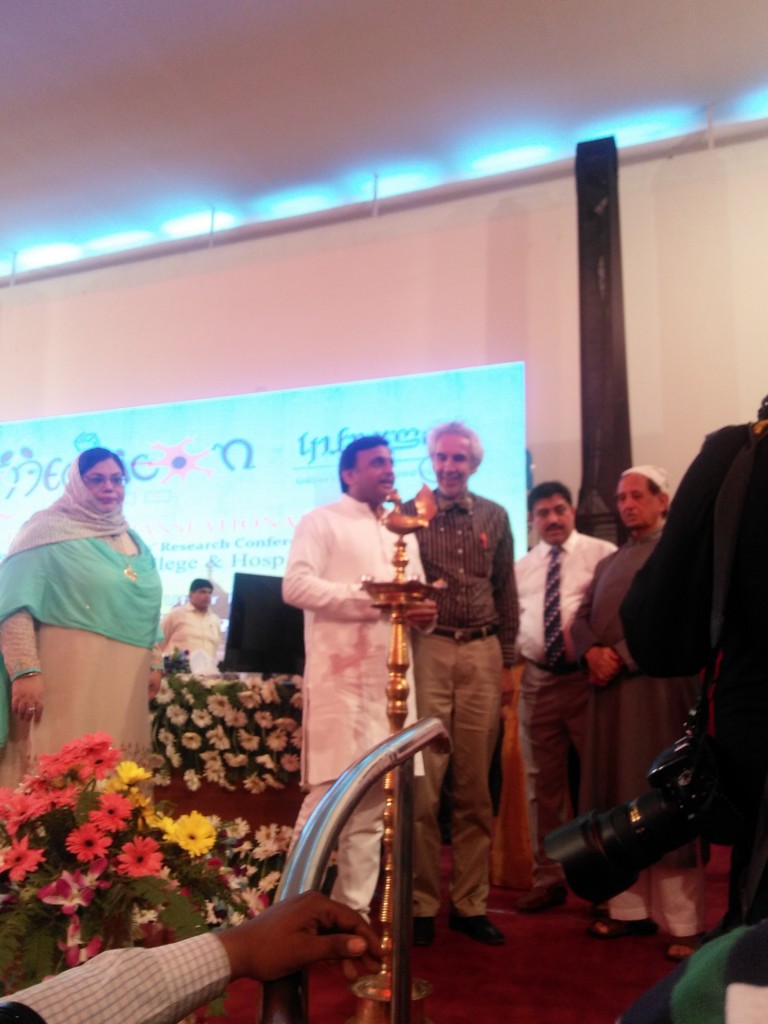
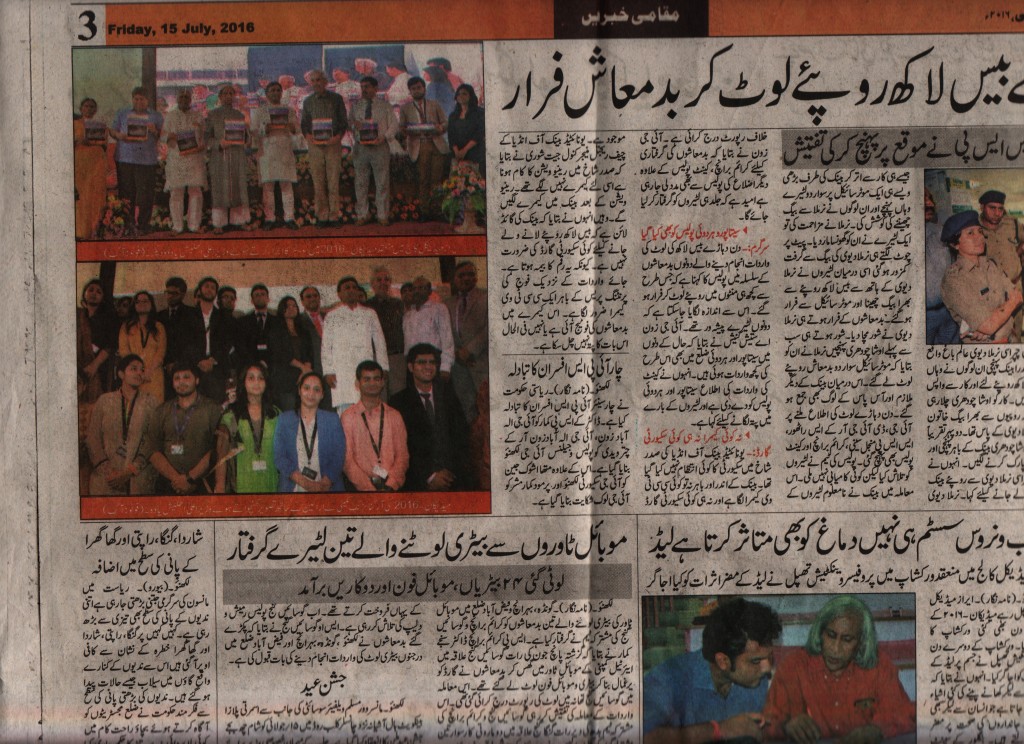
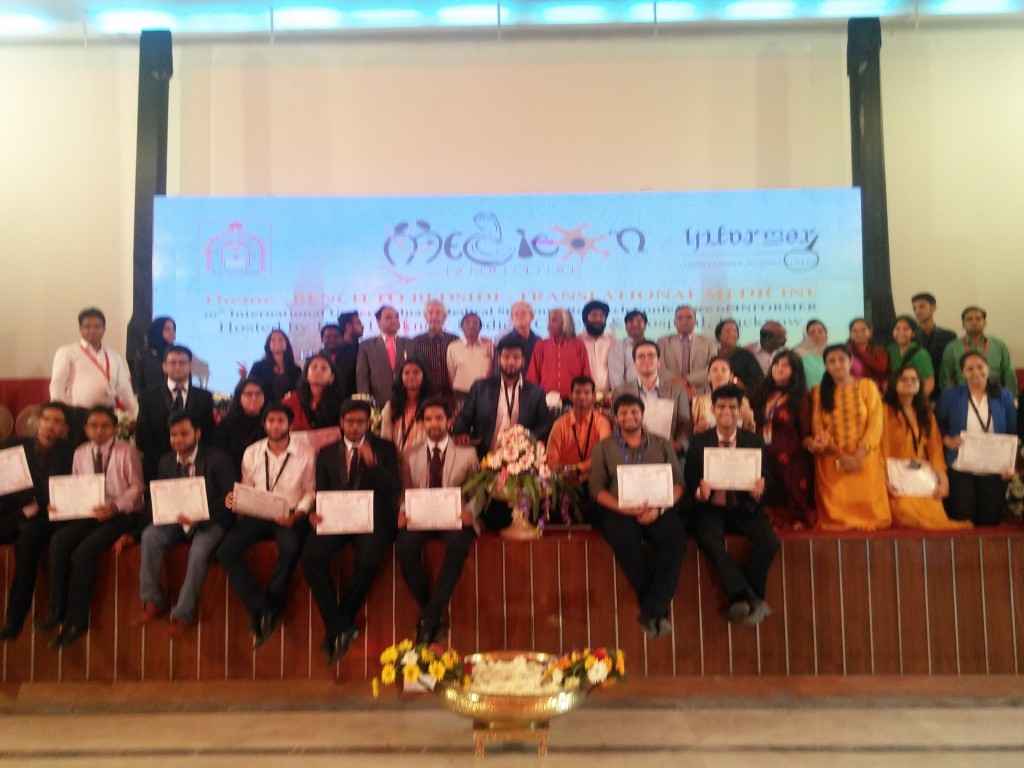
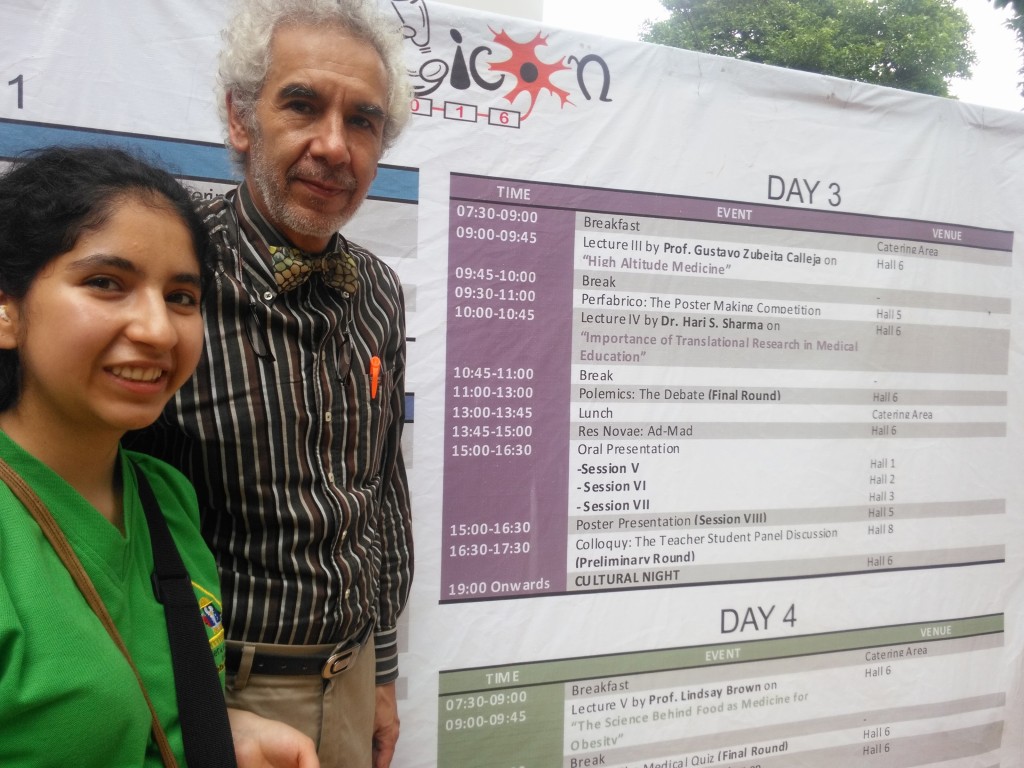
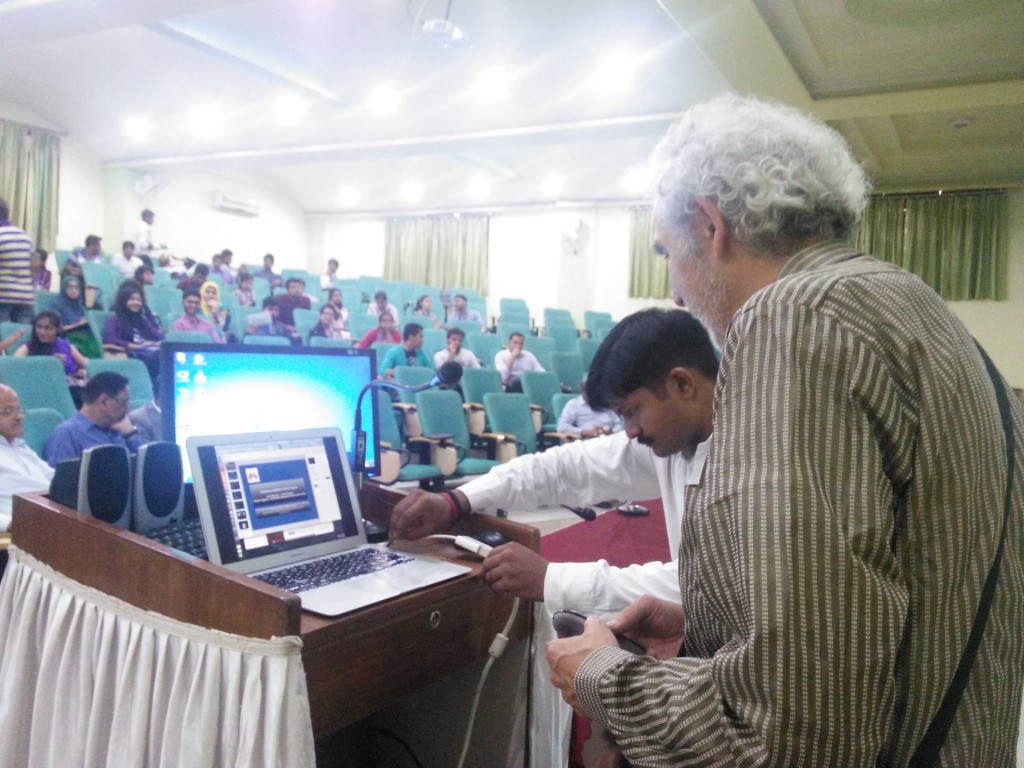
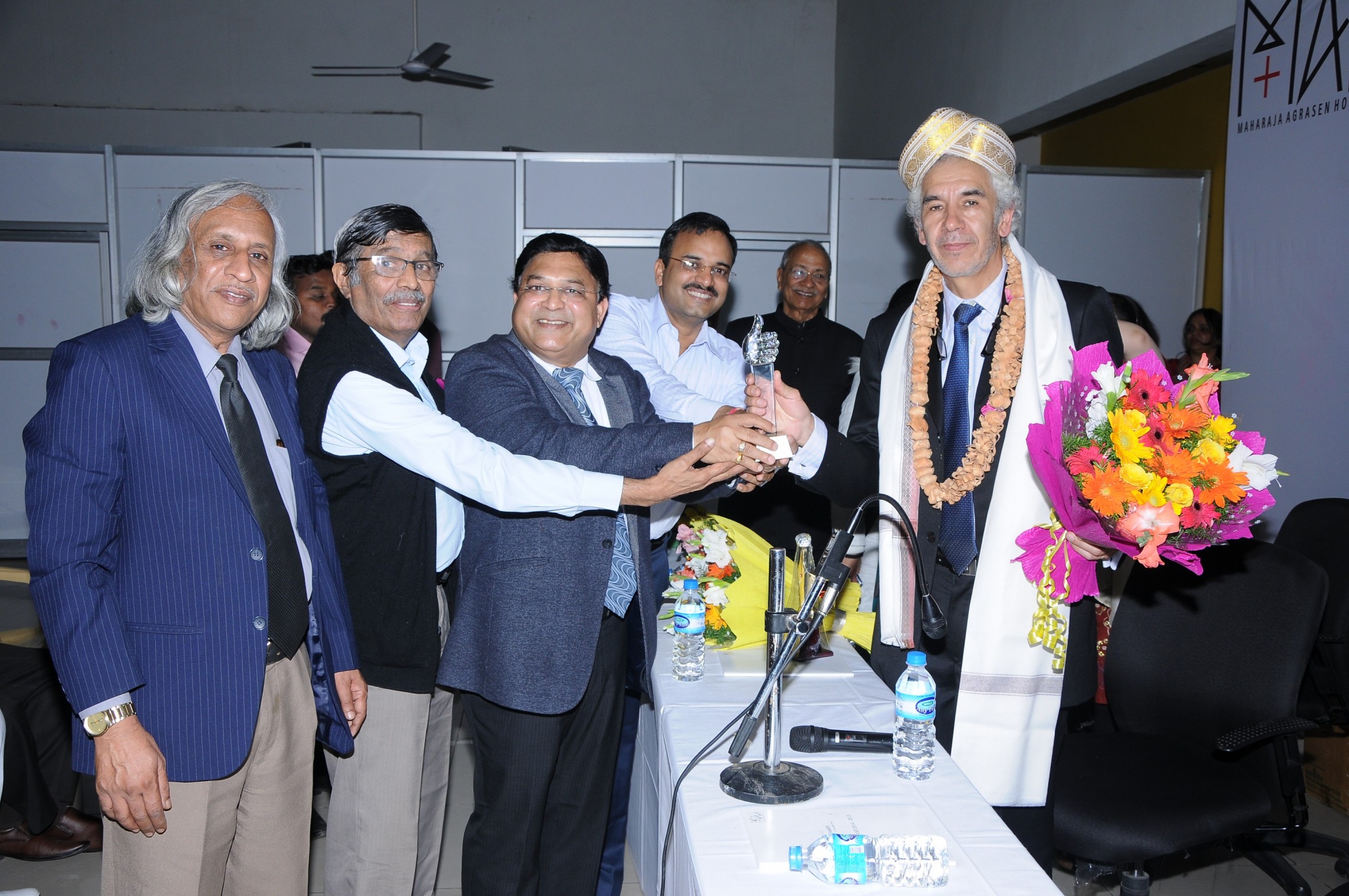
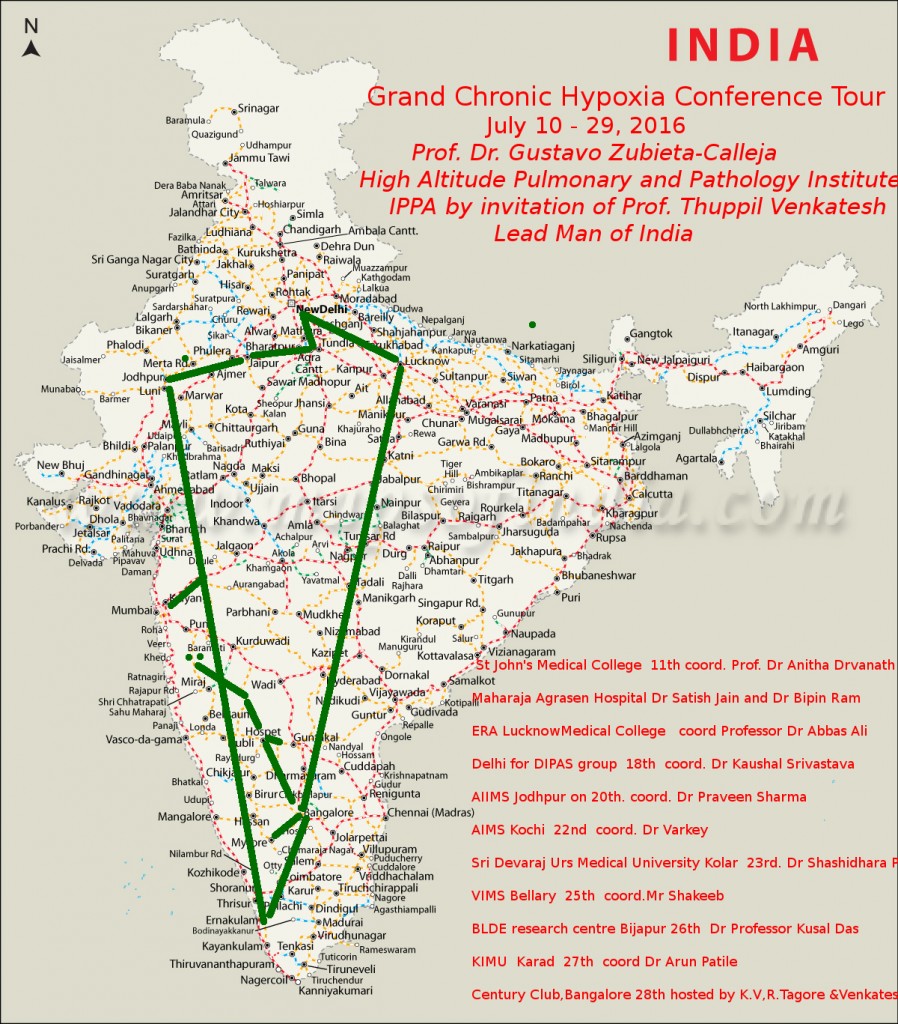
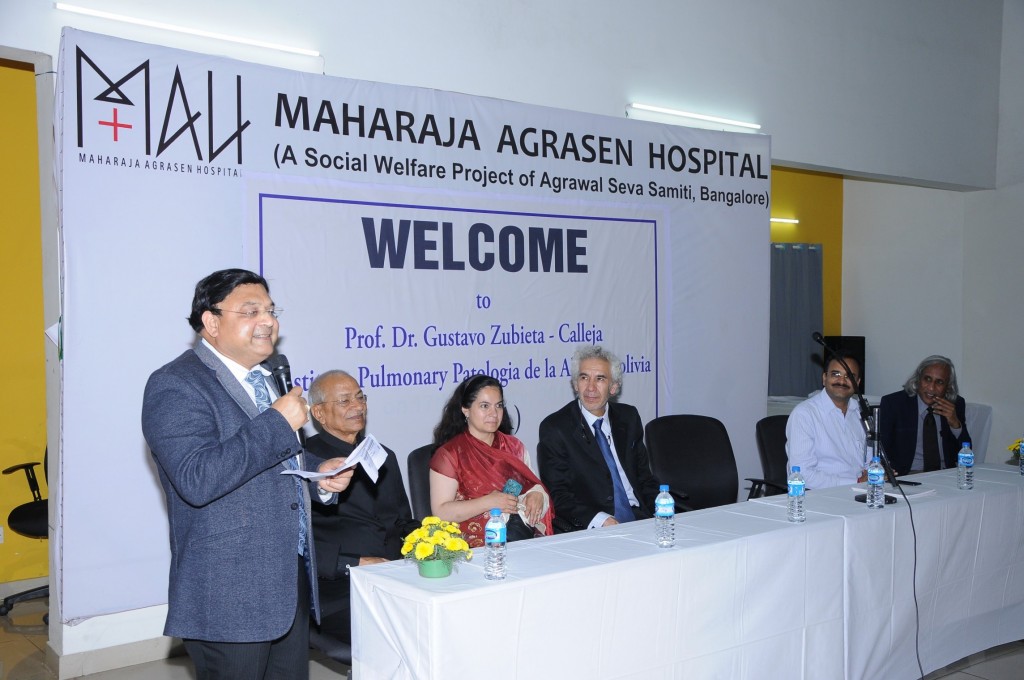
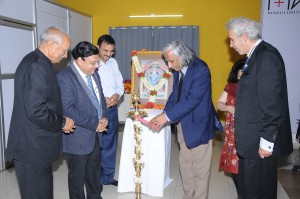
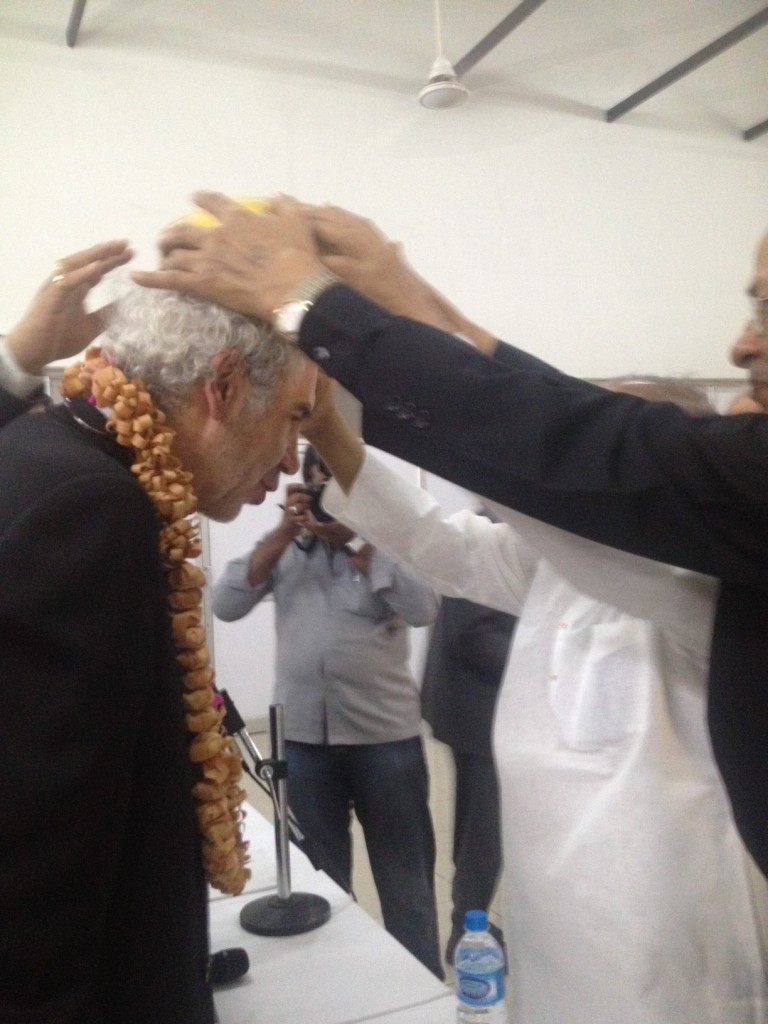
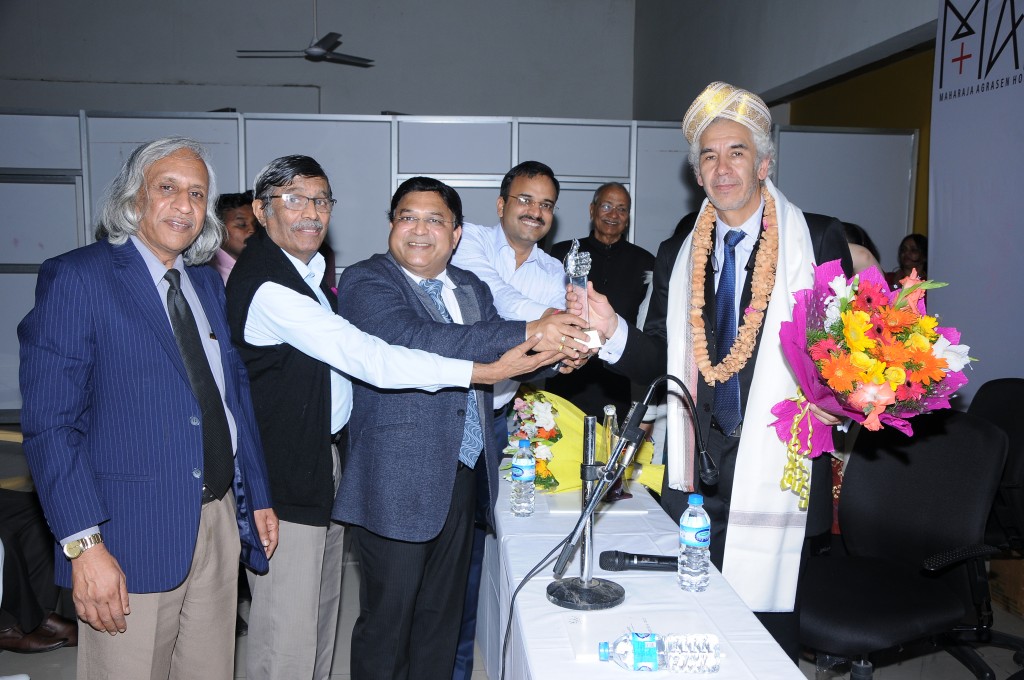
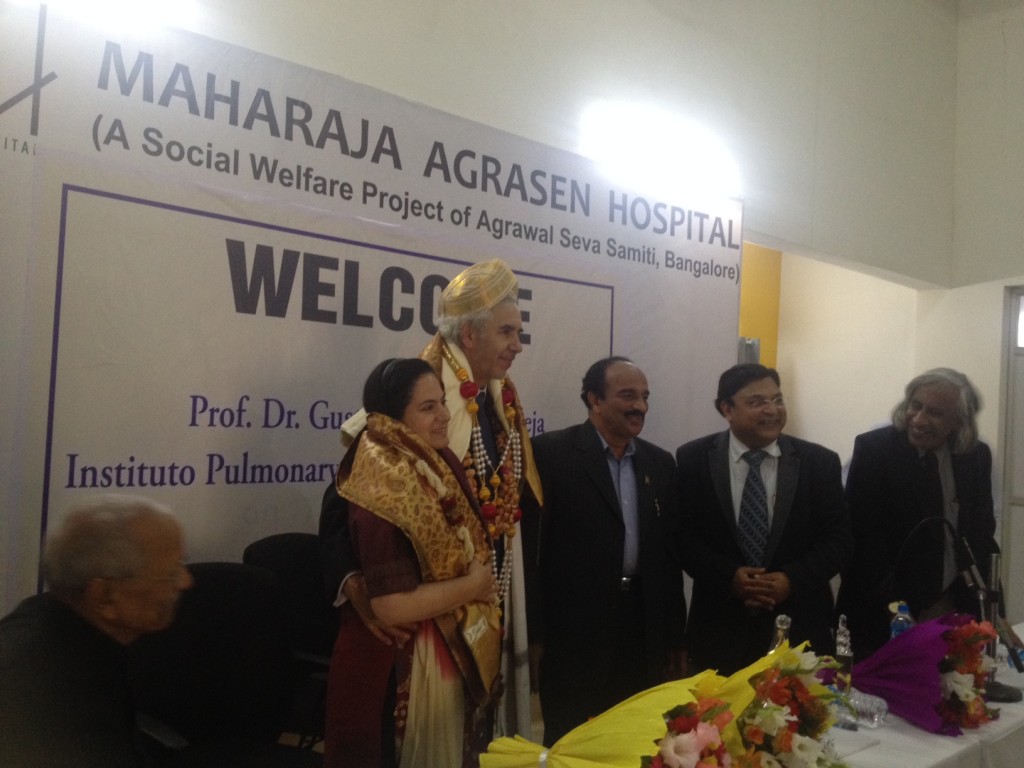
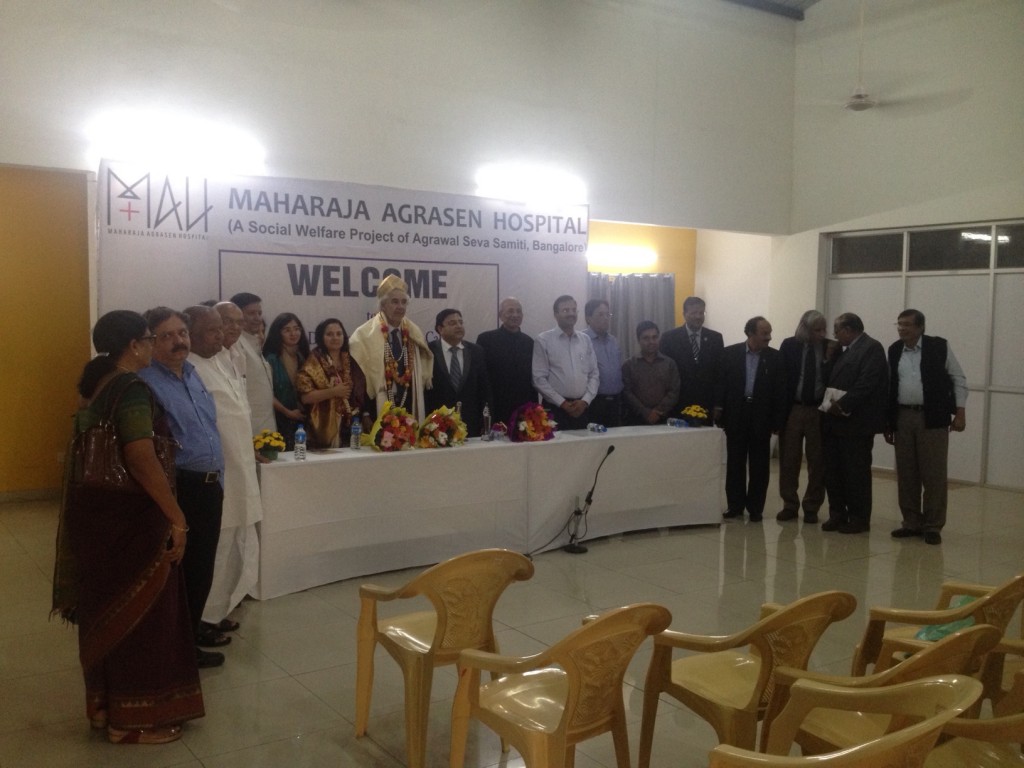
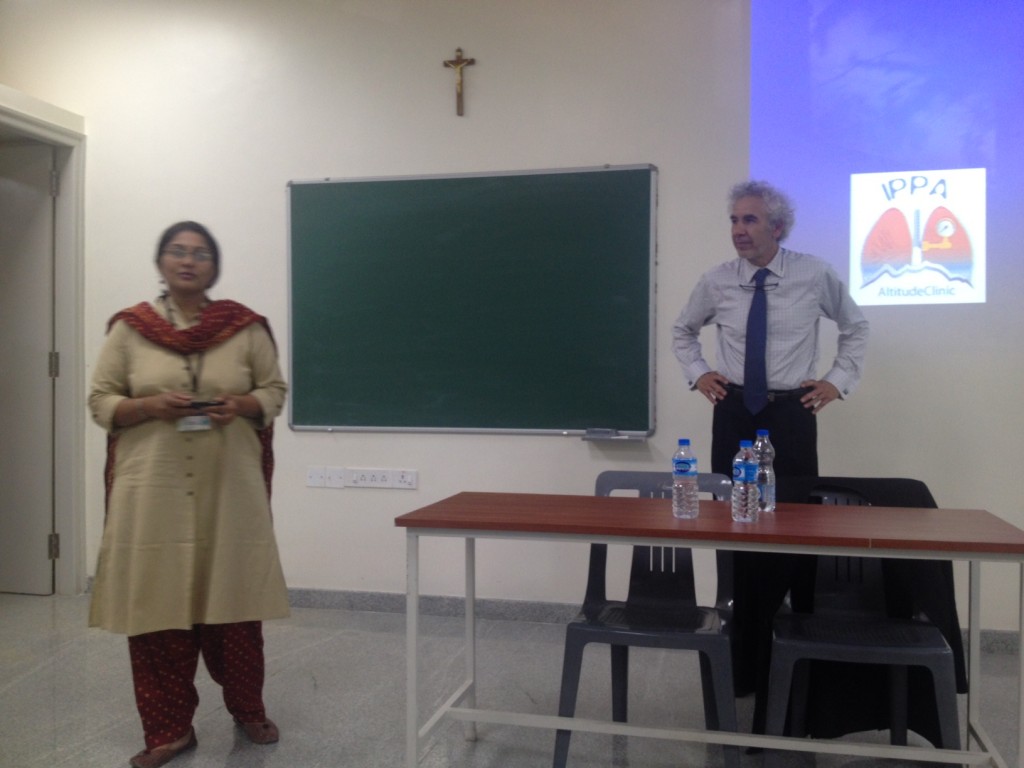
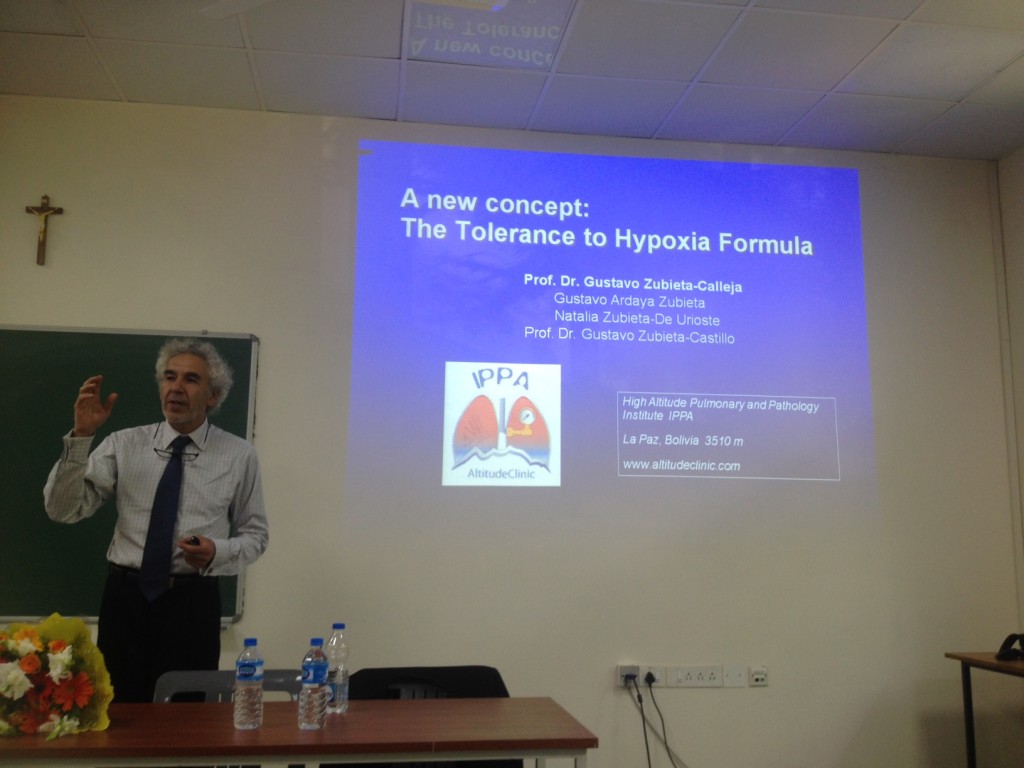
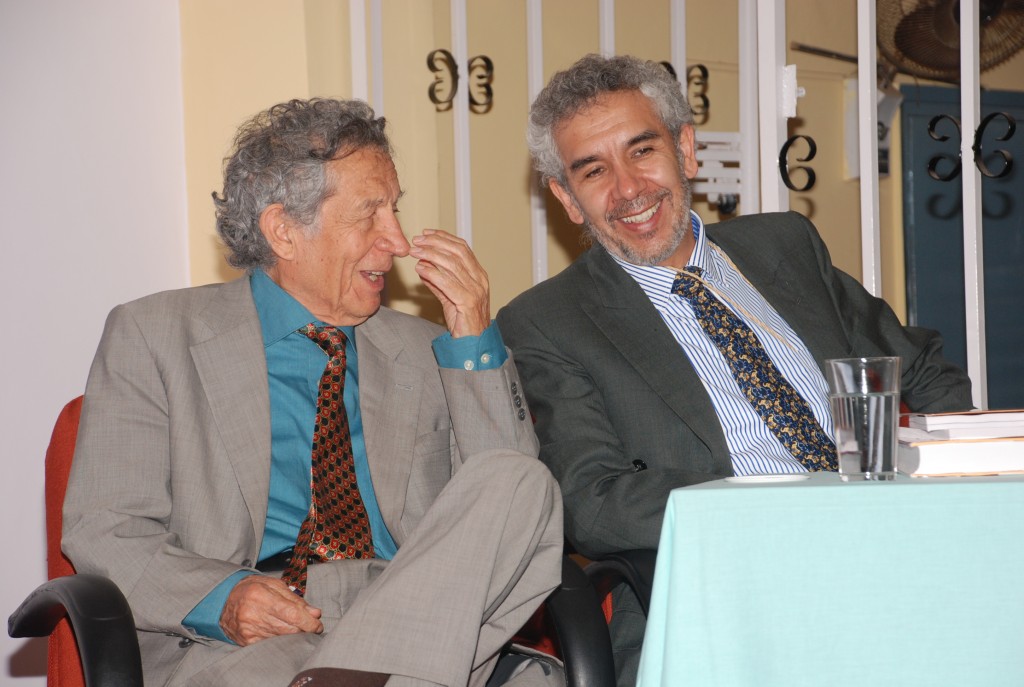
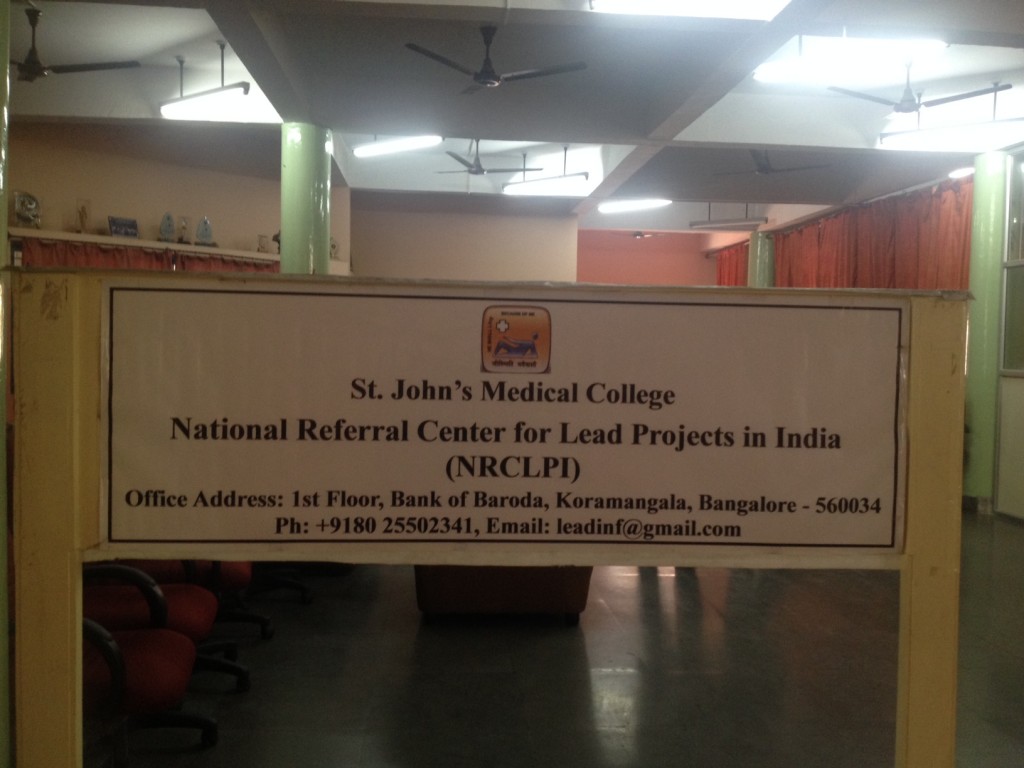
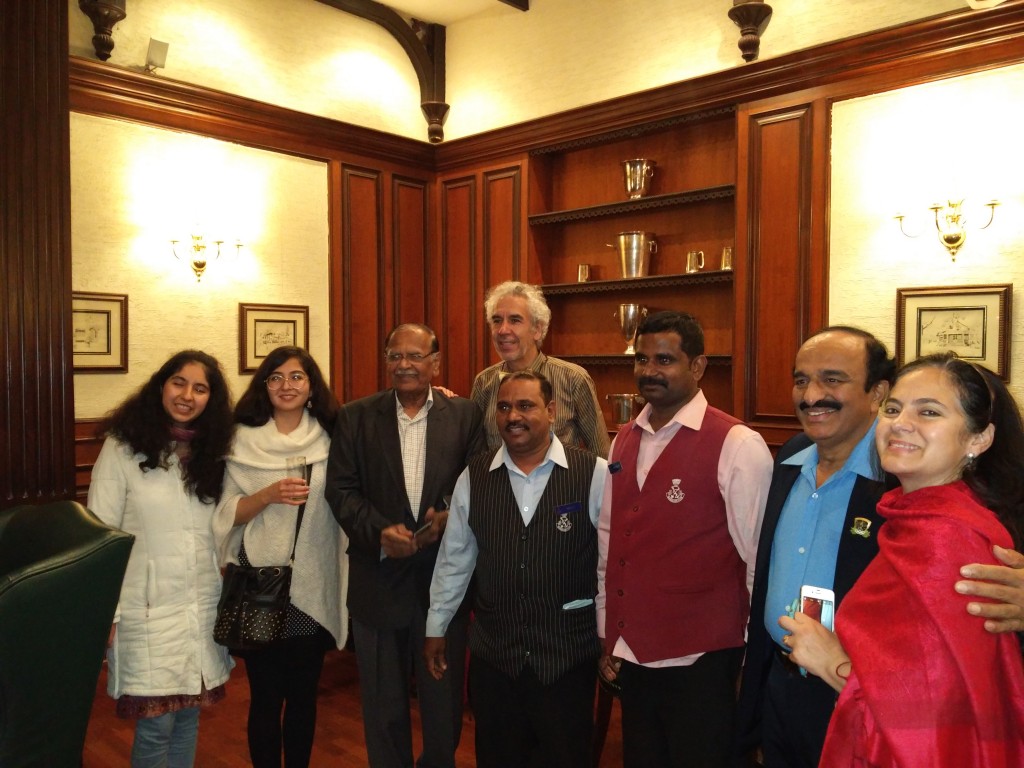
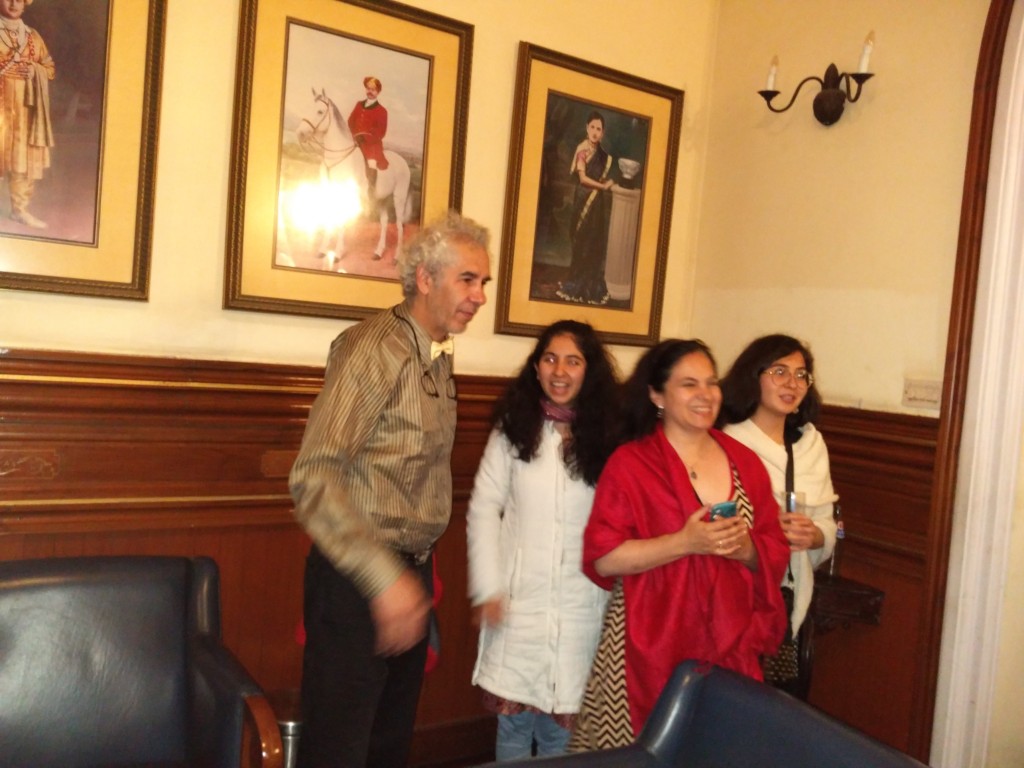
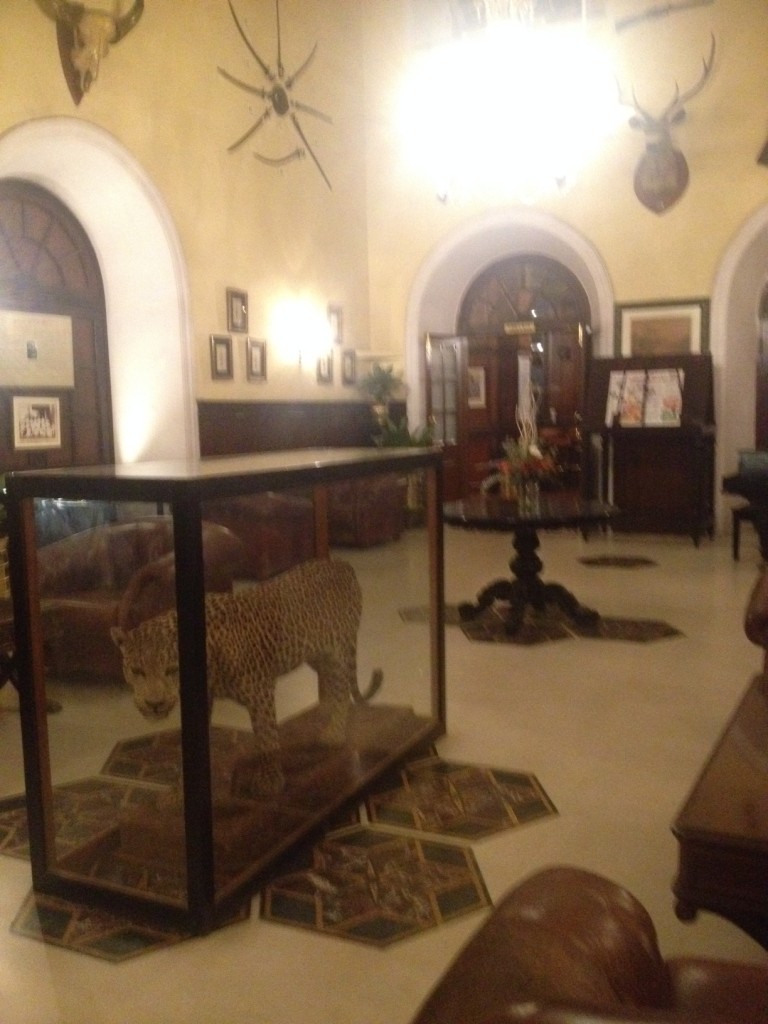
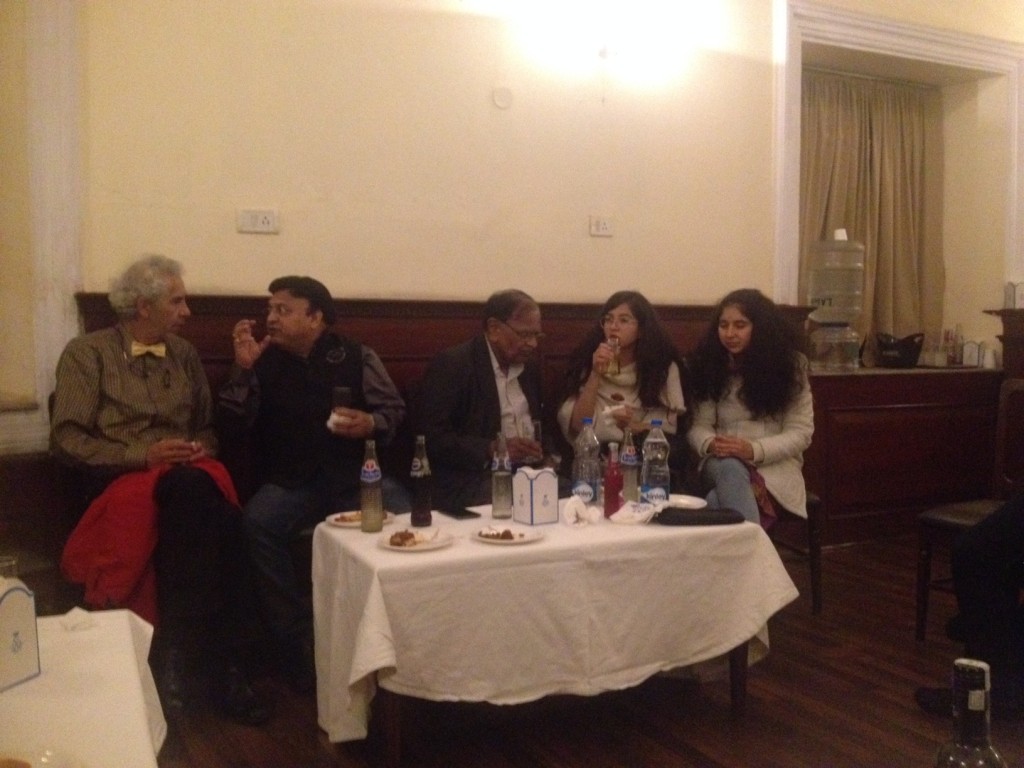
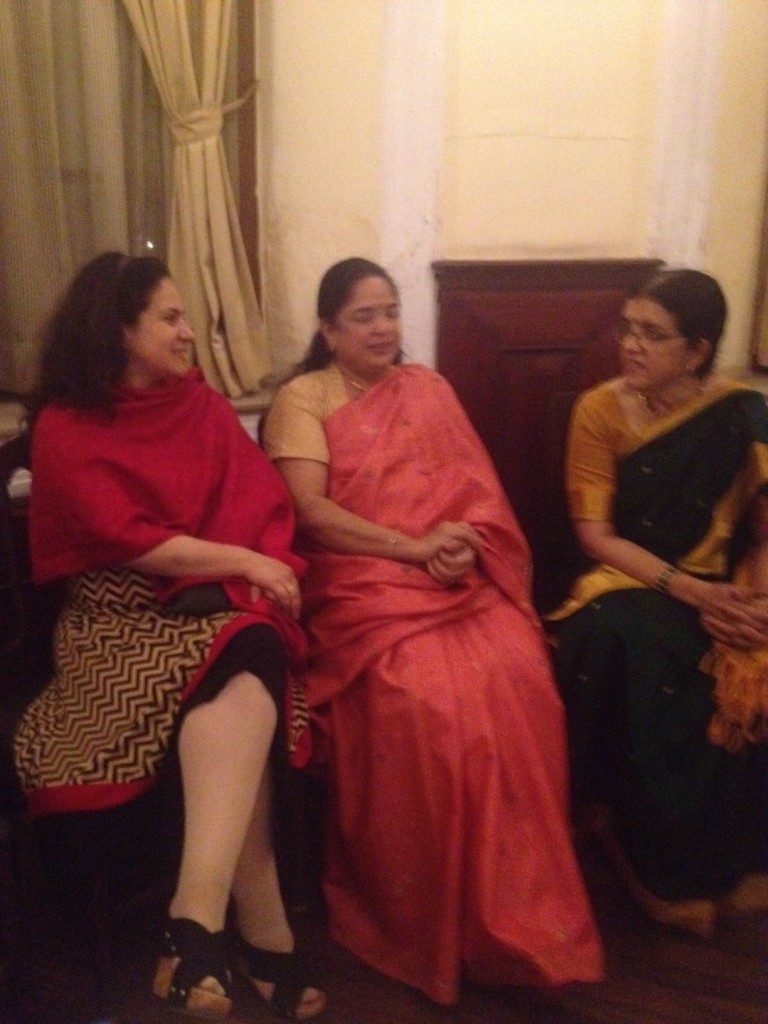
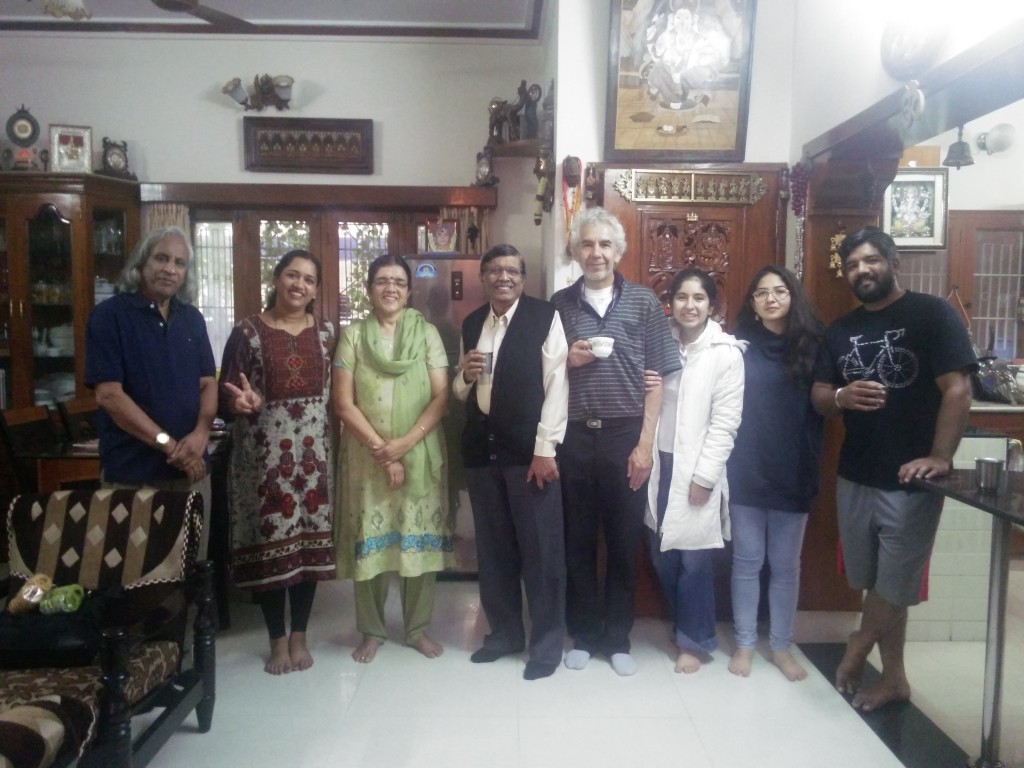
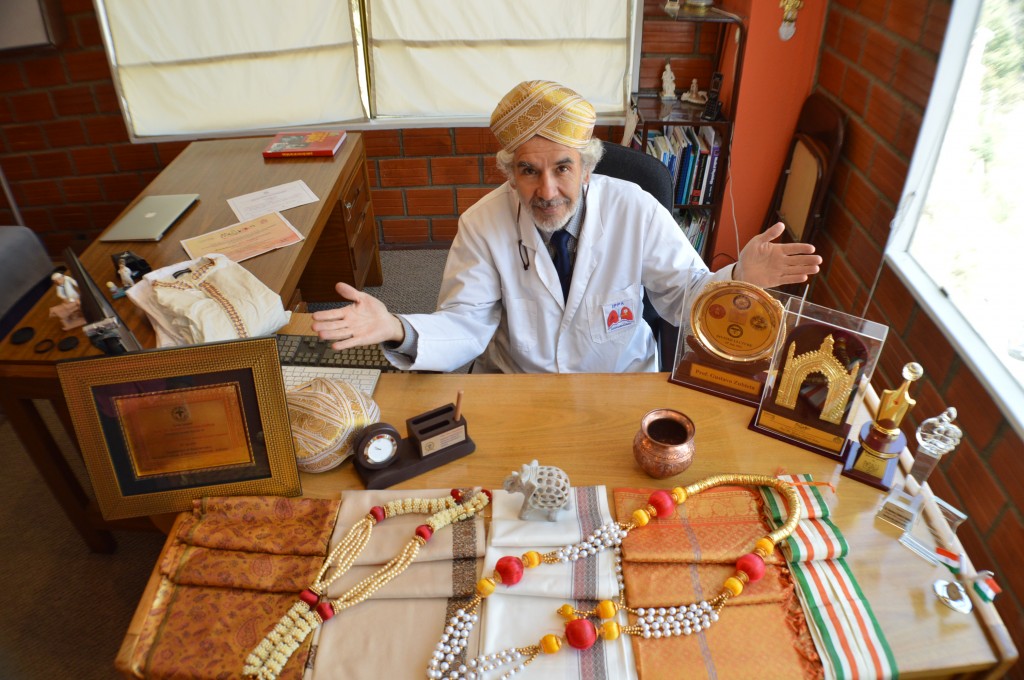
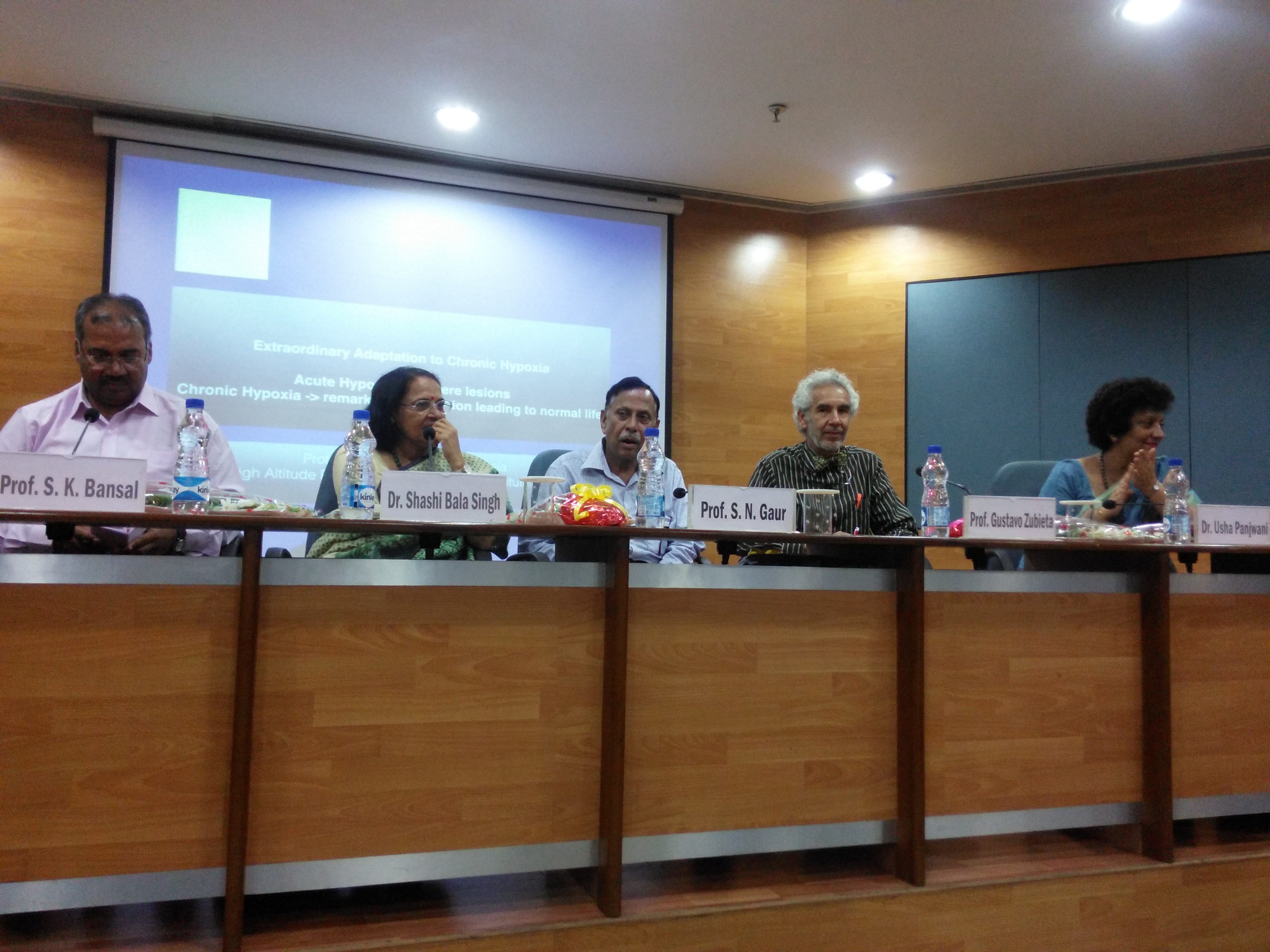
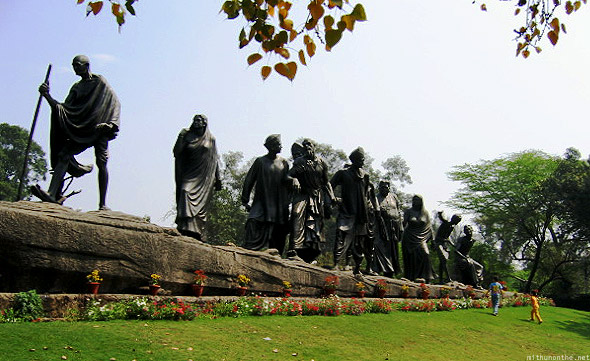
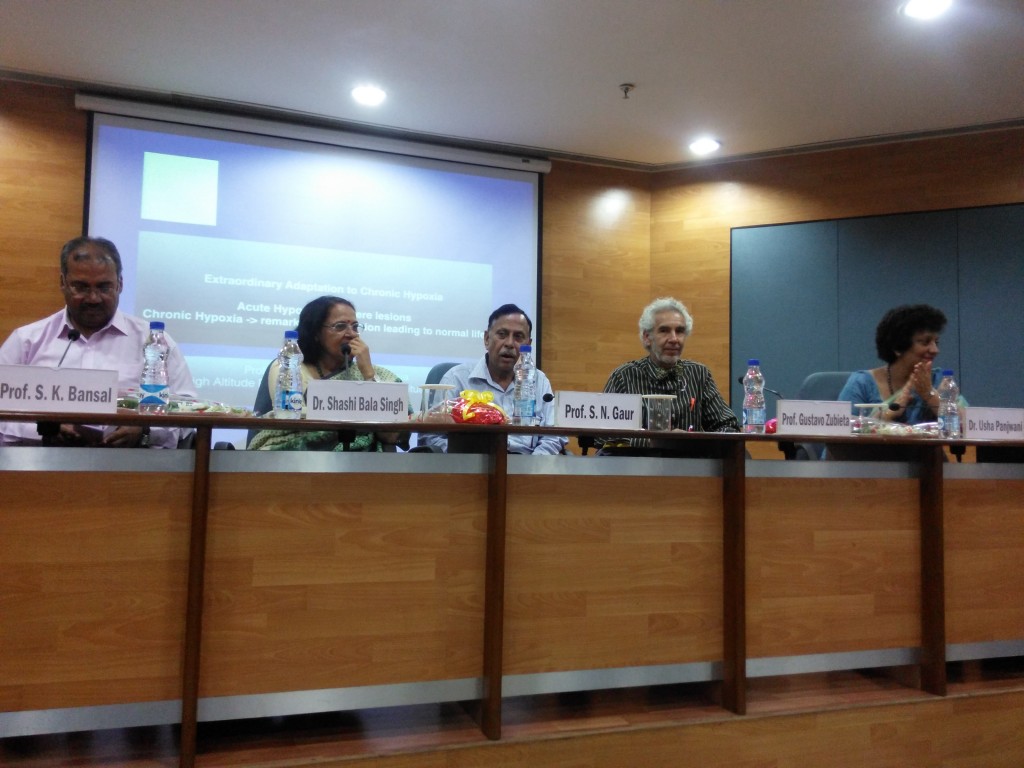
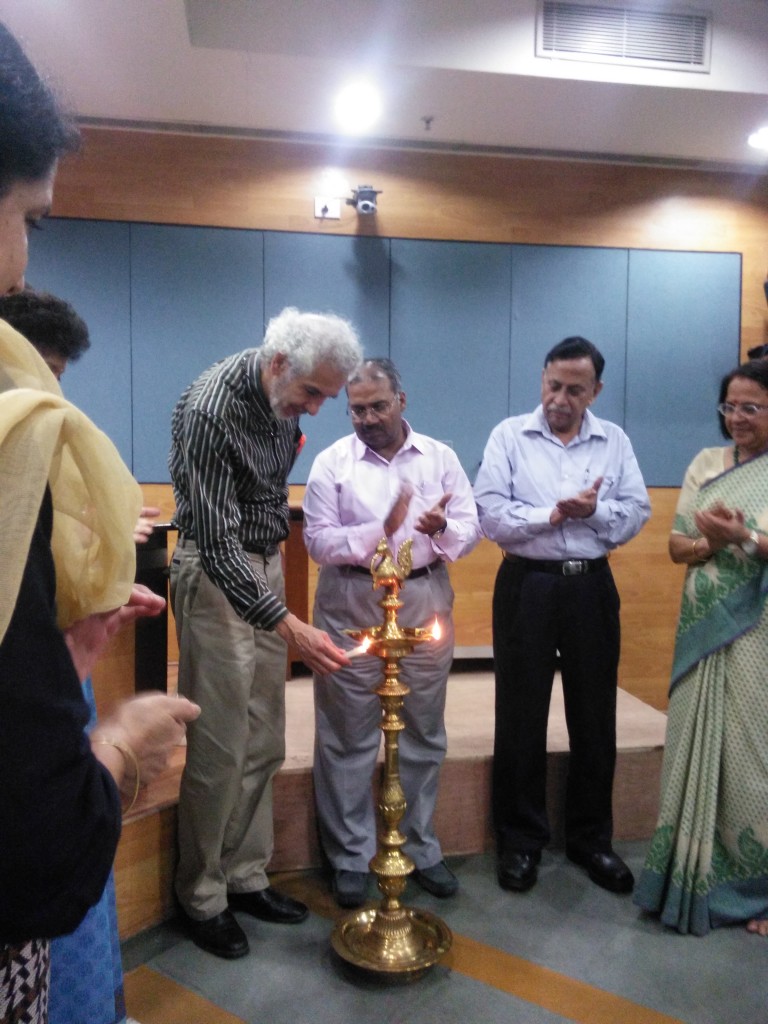
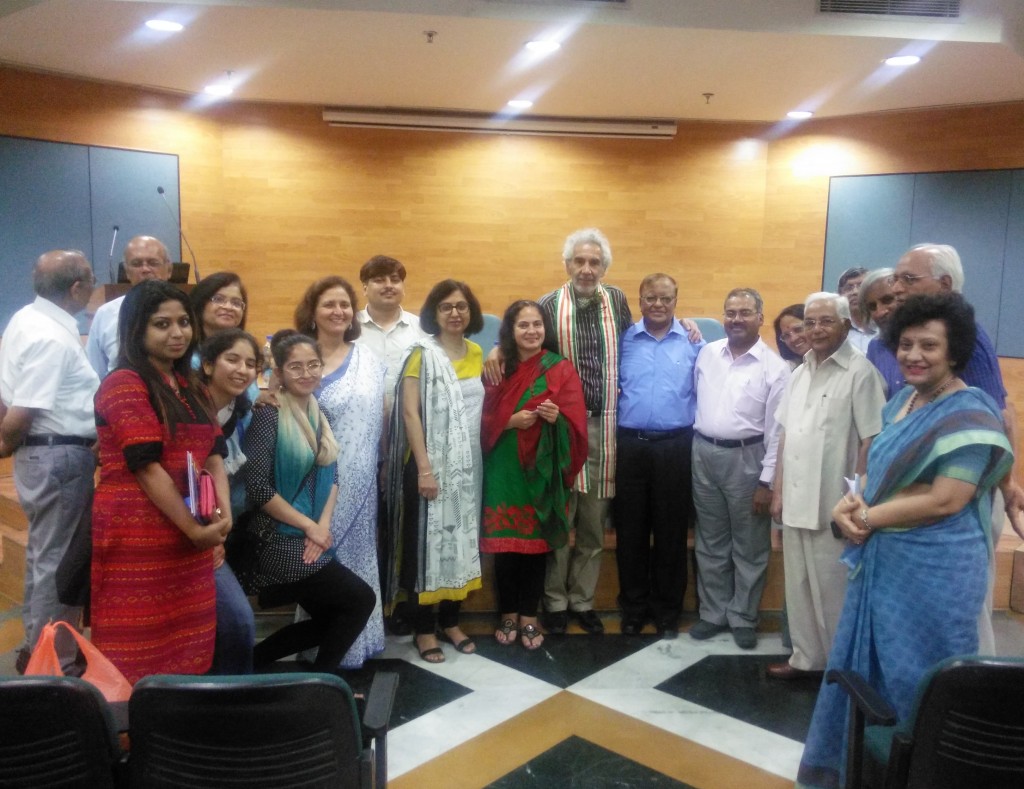
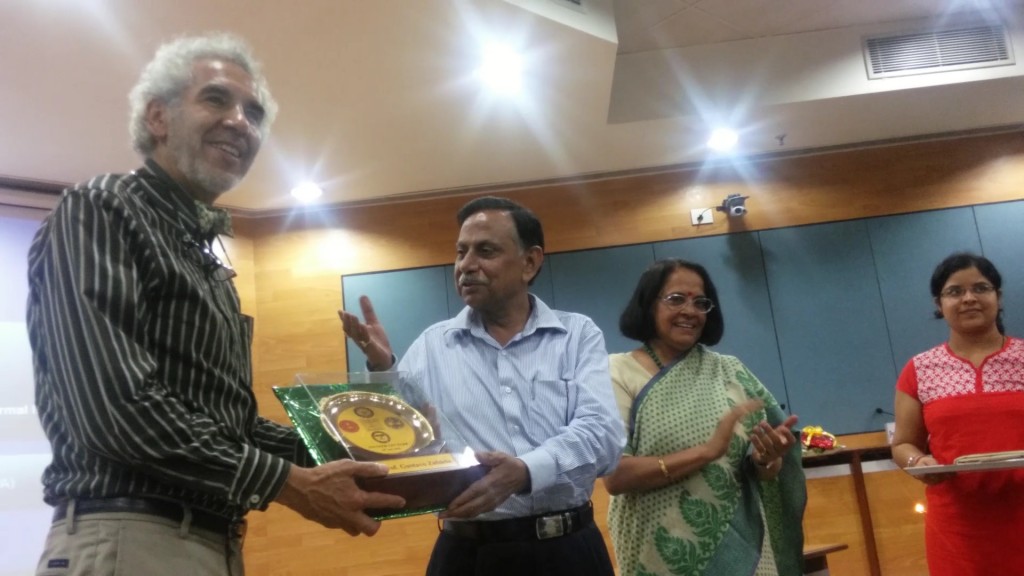
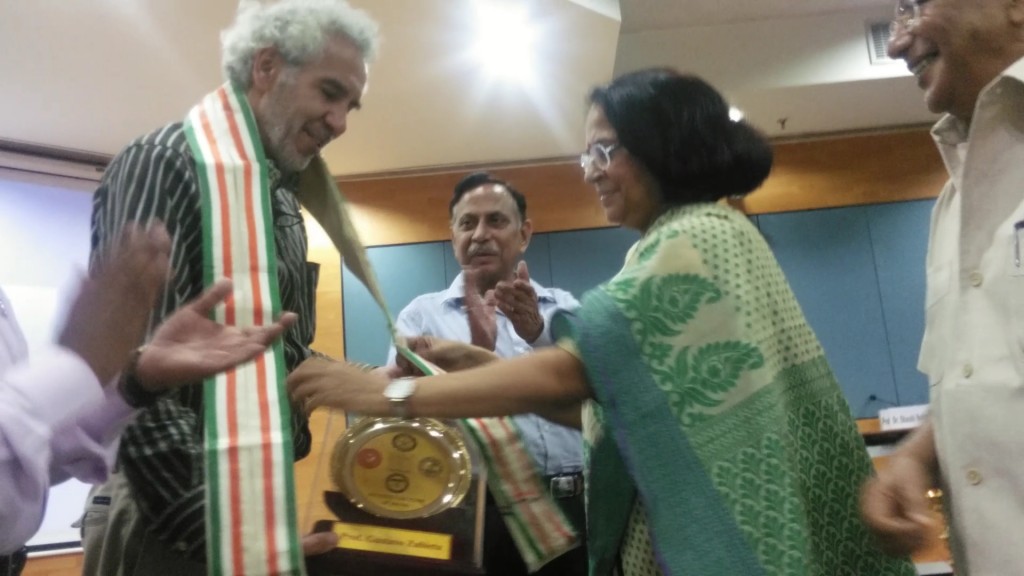
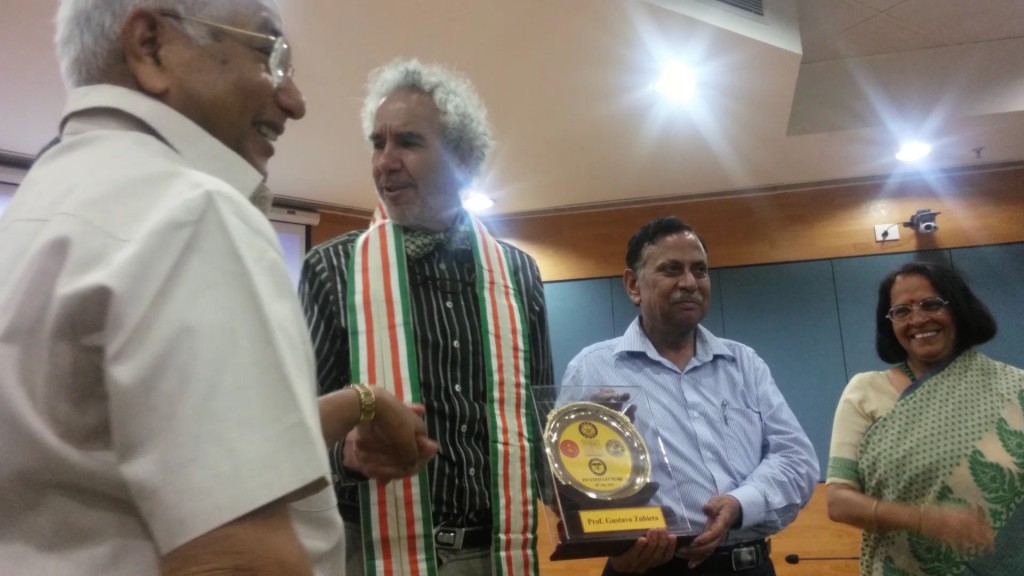
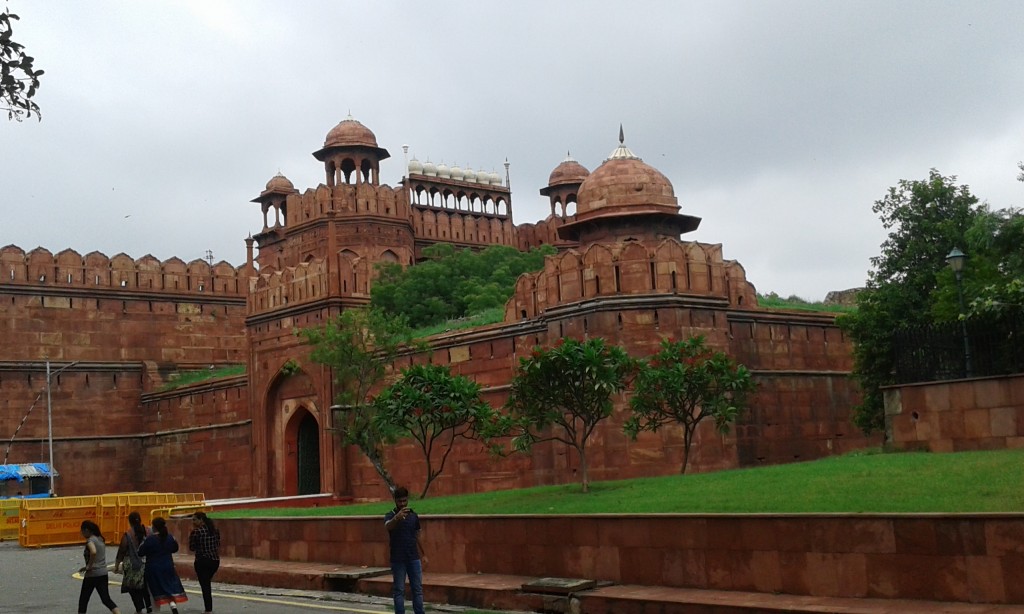
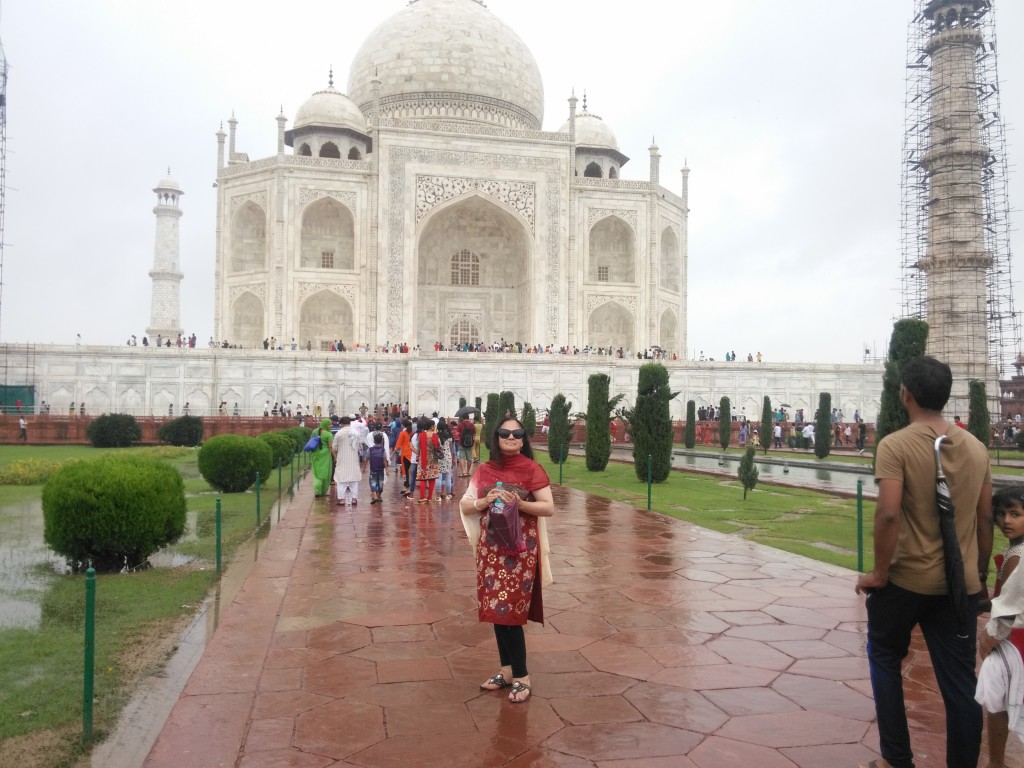
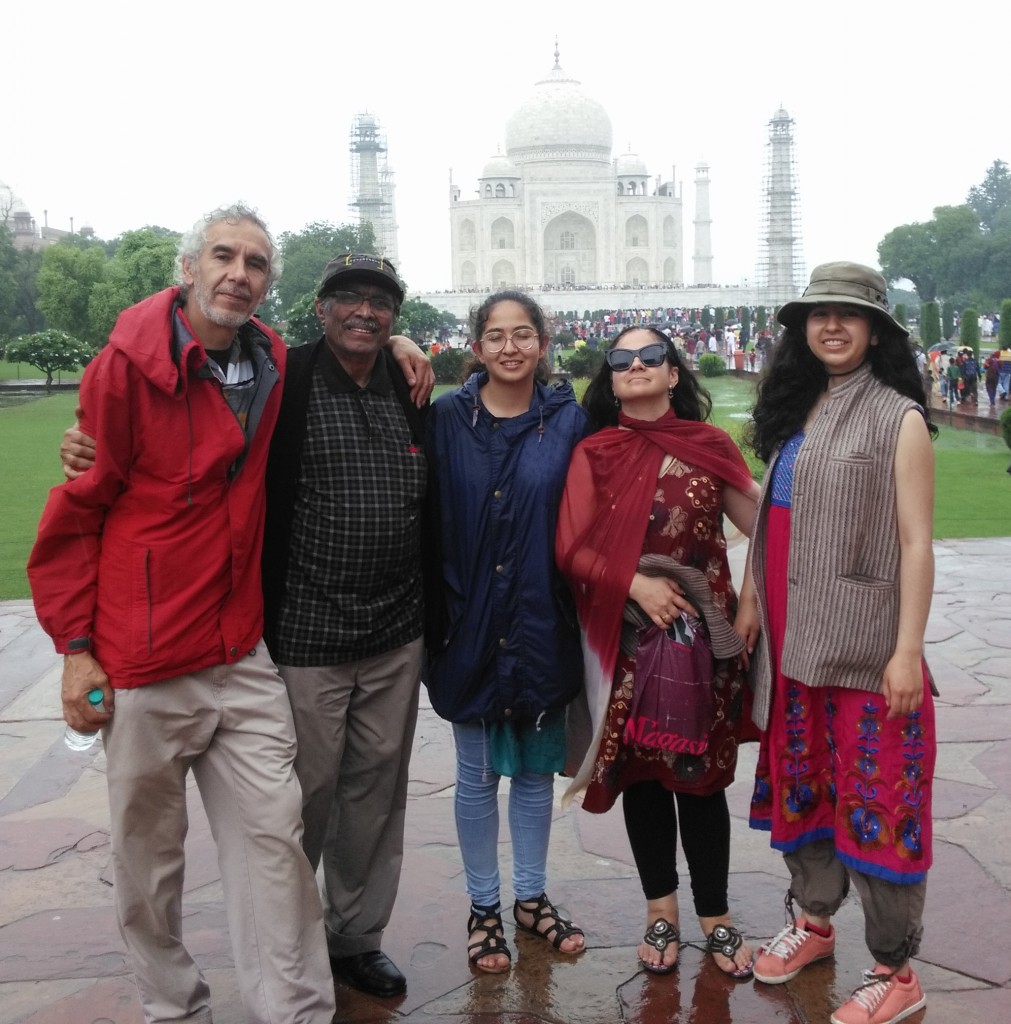
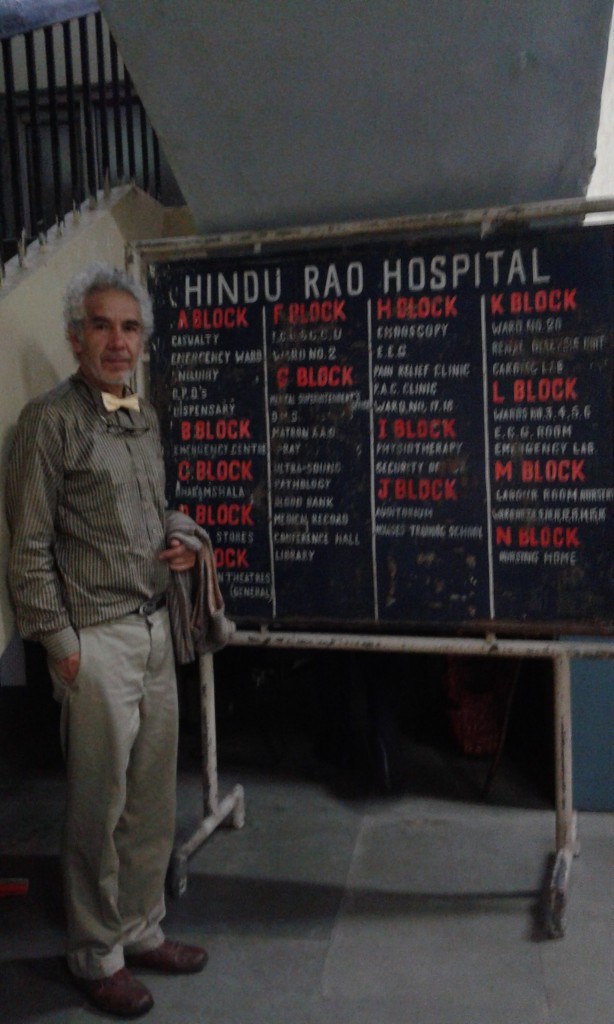
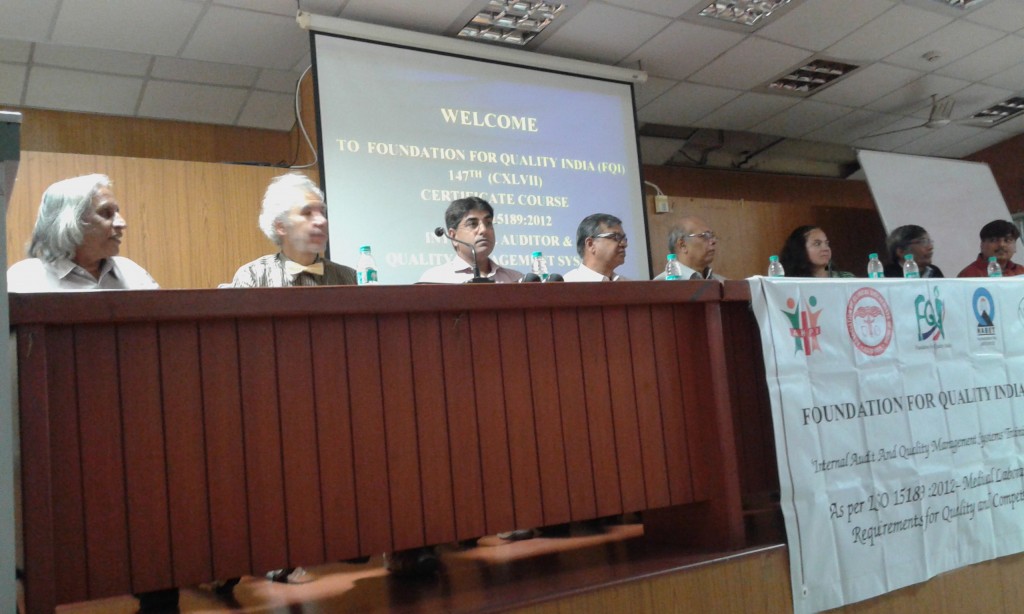
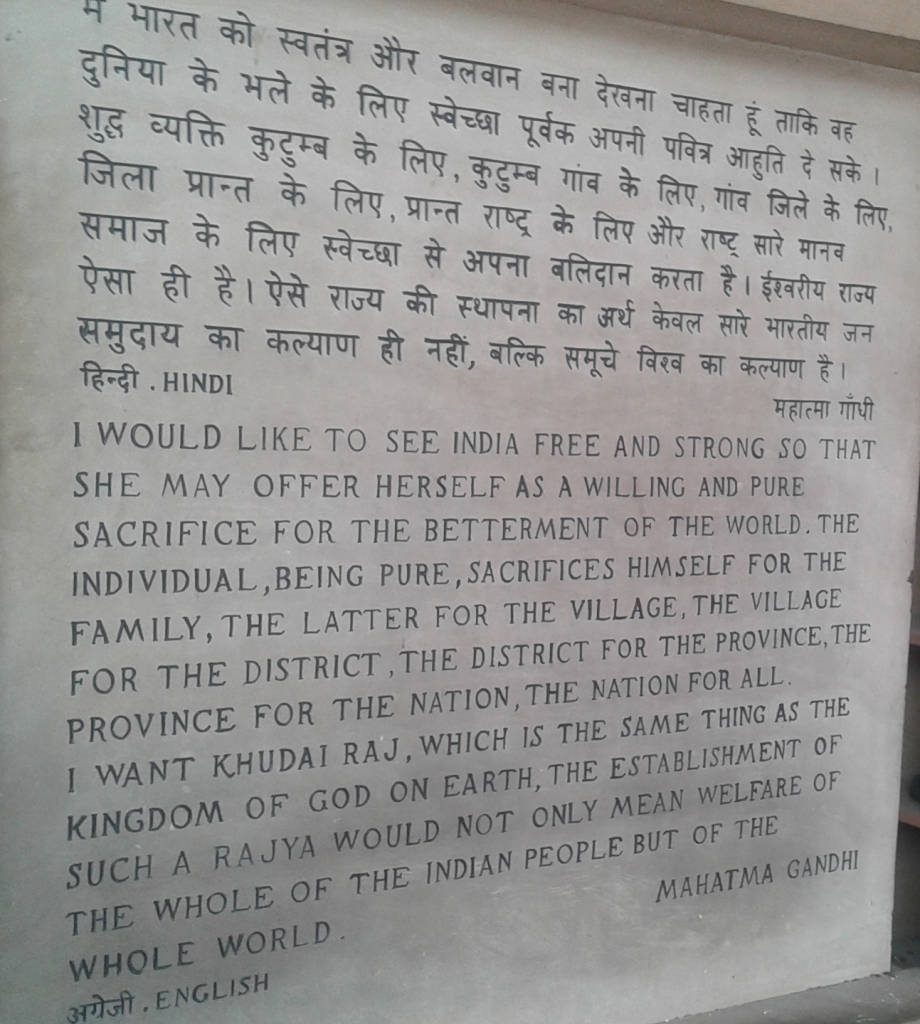
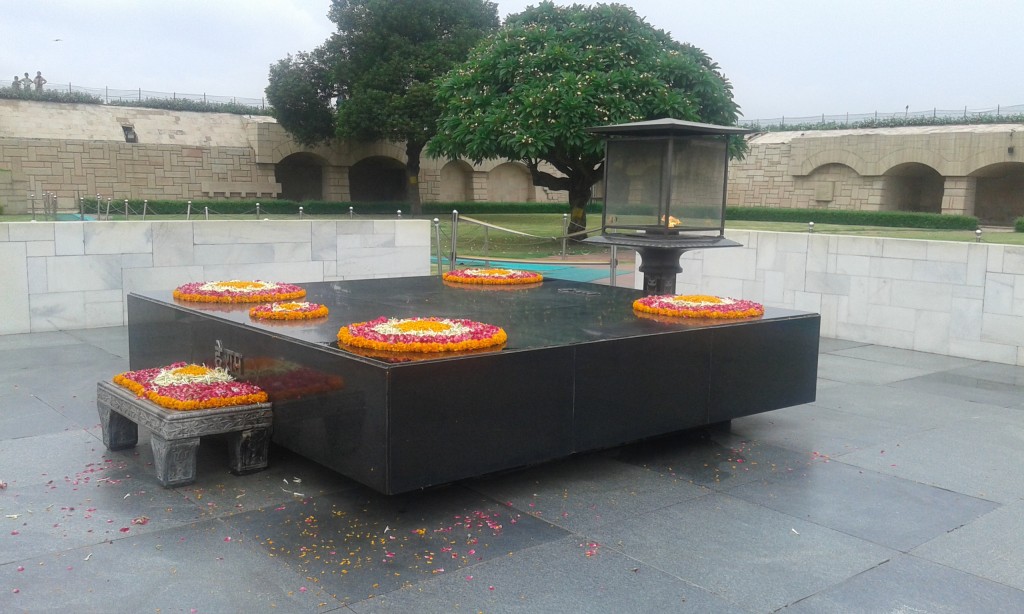



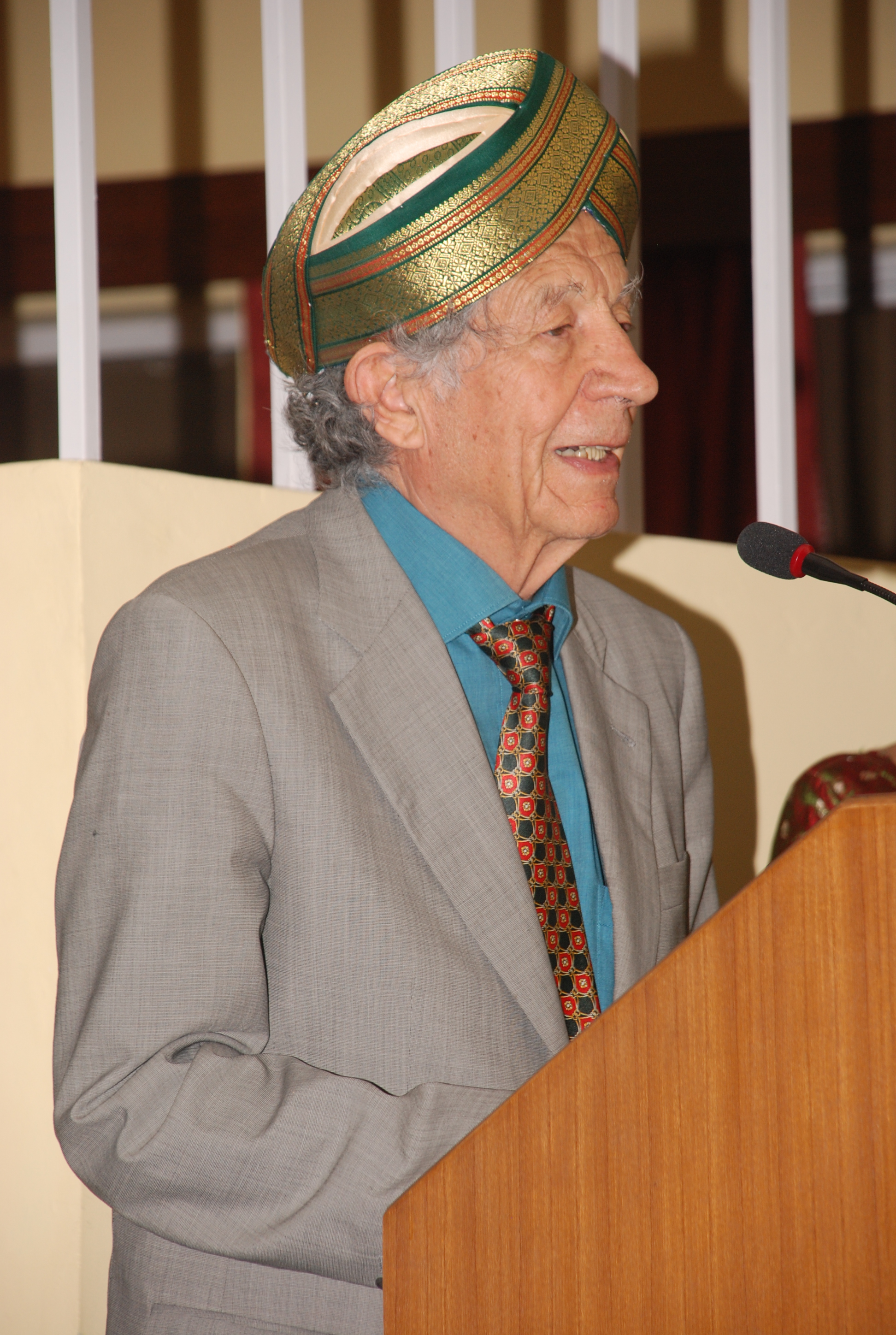
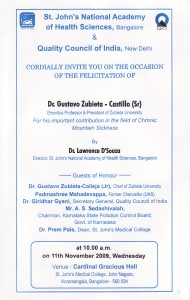 Upon returning to Bangalore Prof. Zubieta-Castillo (Sr.) and Prof. Zubieta-Calleja (Jr.) were invited to give a talk at the St. John’s Medical College (see the invitation on the left). Much to their surprise, Prof. Thuppil Venkatesh leaded in the presentation and introduced the Director of the St John’s National Academy of Health Sciences Dr. Lawrence D’Souza, along with very distinguished personalities of Bangalore.
Upon returning to Bangalore Prof. Zubieta-Castillo (Sr.) and Prof. Zubieta-Calleja (Jr.) were invited to give a talk at the St. John’s Medical College (see the invitation on the left). Much to their surprise, Prof. Thuppil Venkatesh leaded in the presentation and introduced the Director of the St John’s National Academy of Health Sciences Dr. Lawrence D’Souza, along with very distinguished personalities of Bangalore.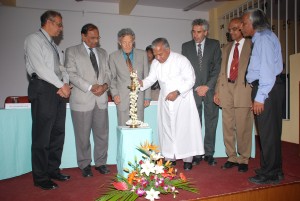
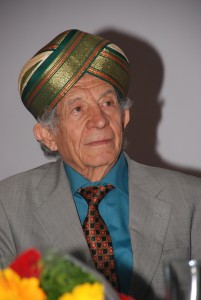
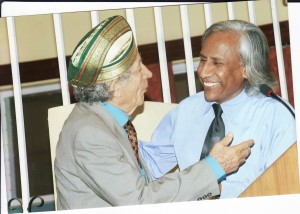 With Prof. Thuppil Venkatesh, Principal Advisor Quality Council of India (QCI) &
With Prof. Thuppil Venkatesh, Principal Advisor Quality Council of India (QCI) &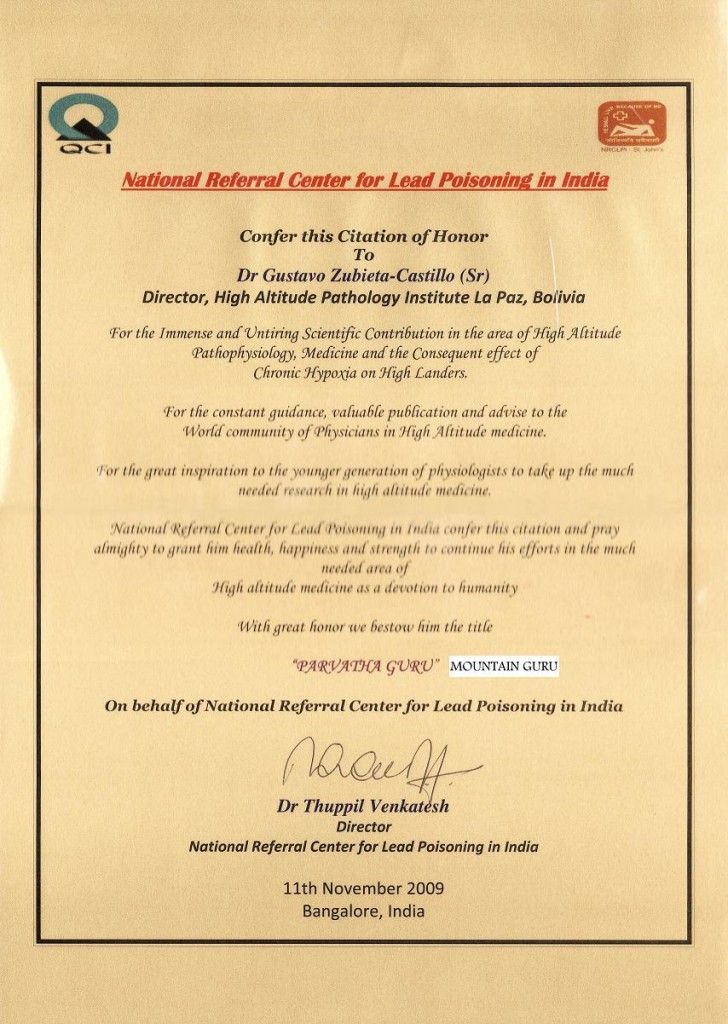
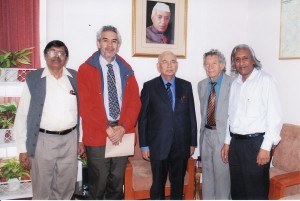 Shown here Shashidhara N, Gustavo Zubieta-Calleja (Jr), His excellency Governor of Karnataka H R Bhardwaj, Gustavo Zubieta-Castillo (Sr), Thuppil Venkatesh.
Shown here Shashidhara N, Gustavo Zubieta-Calleja (Jr), His excellency Governor of Karnataka H R Bhardwaj, Gustavo Zubieta-Castillo (Sr), Thuppil Venkatesh.